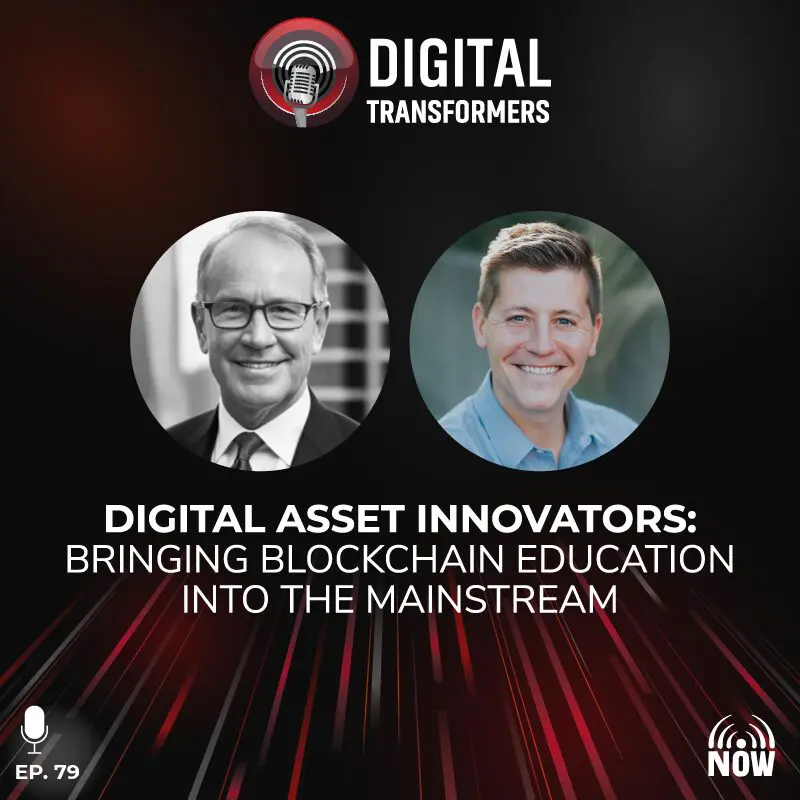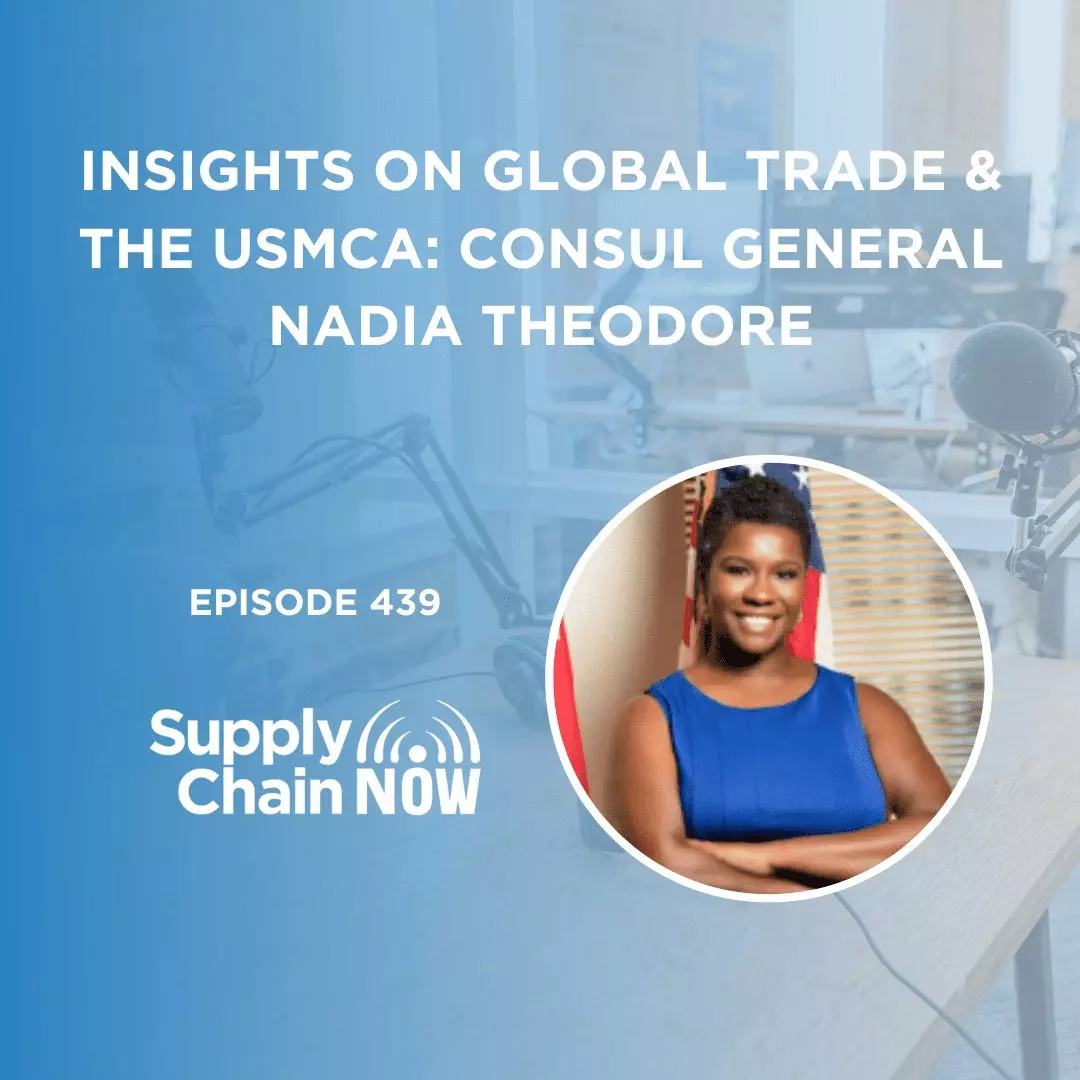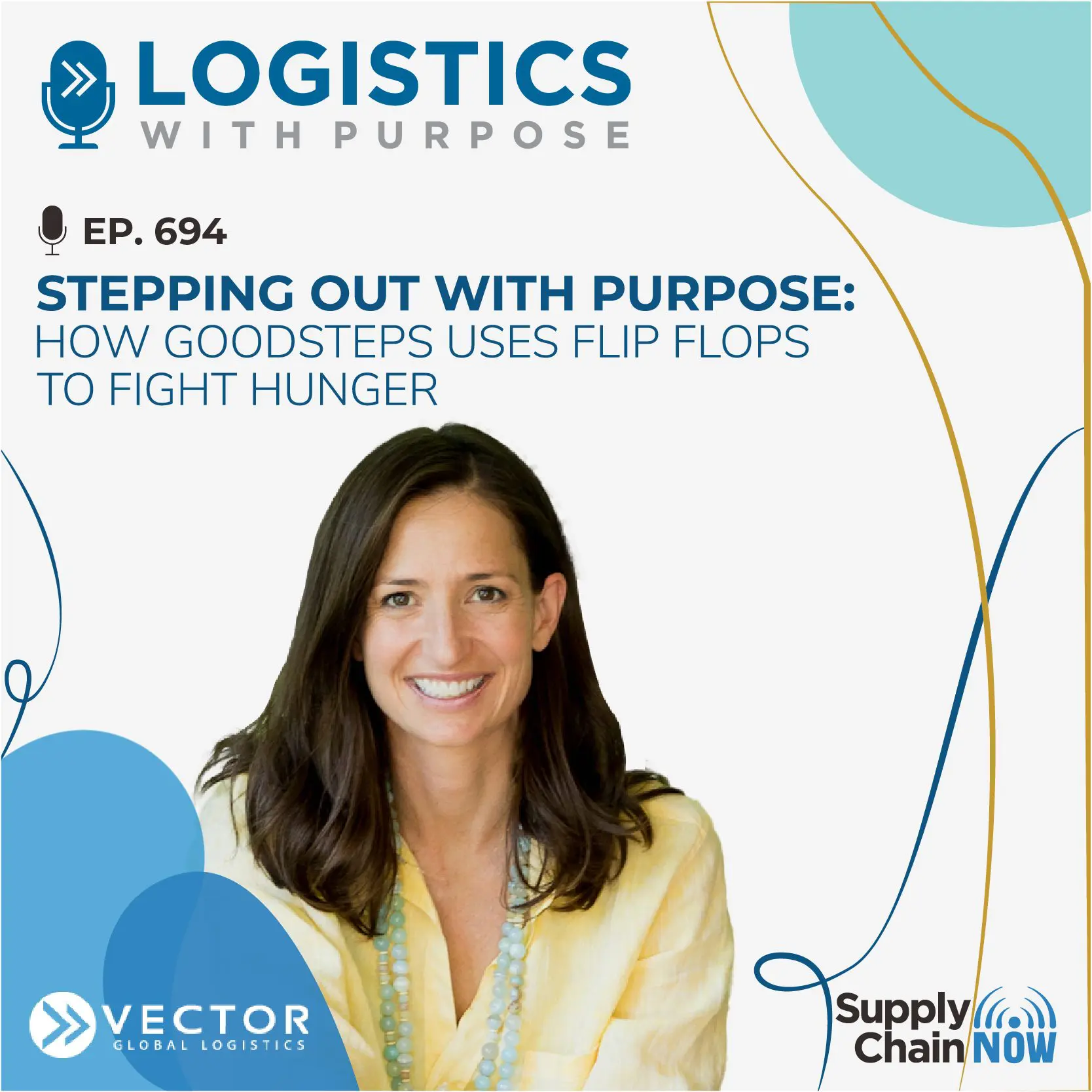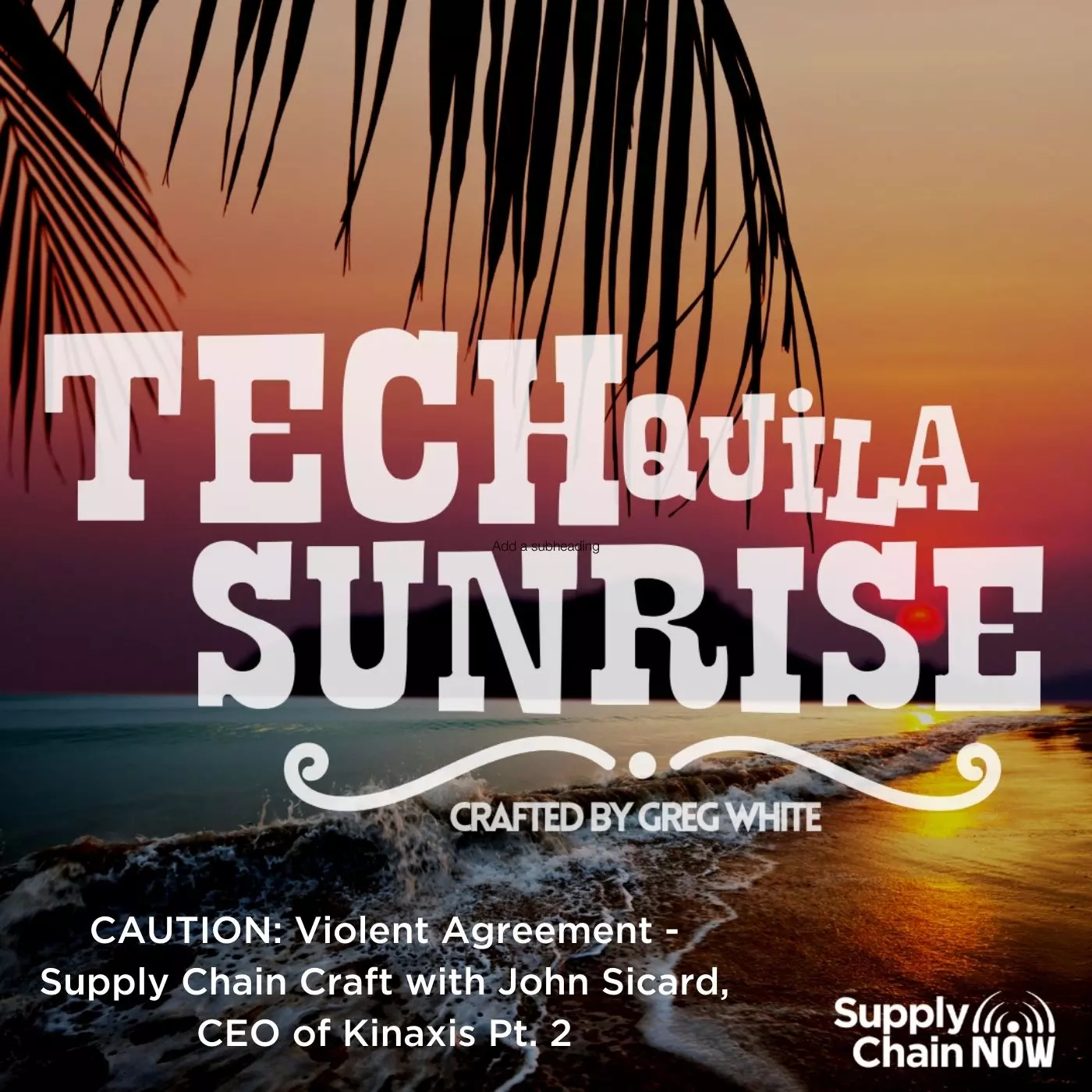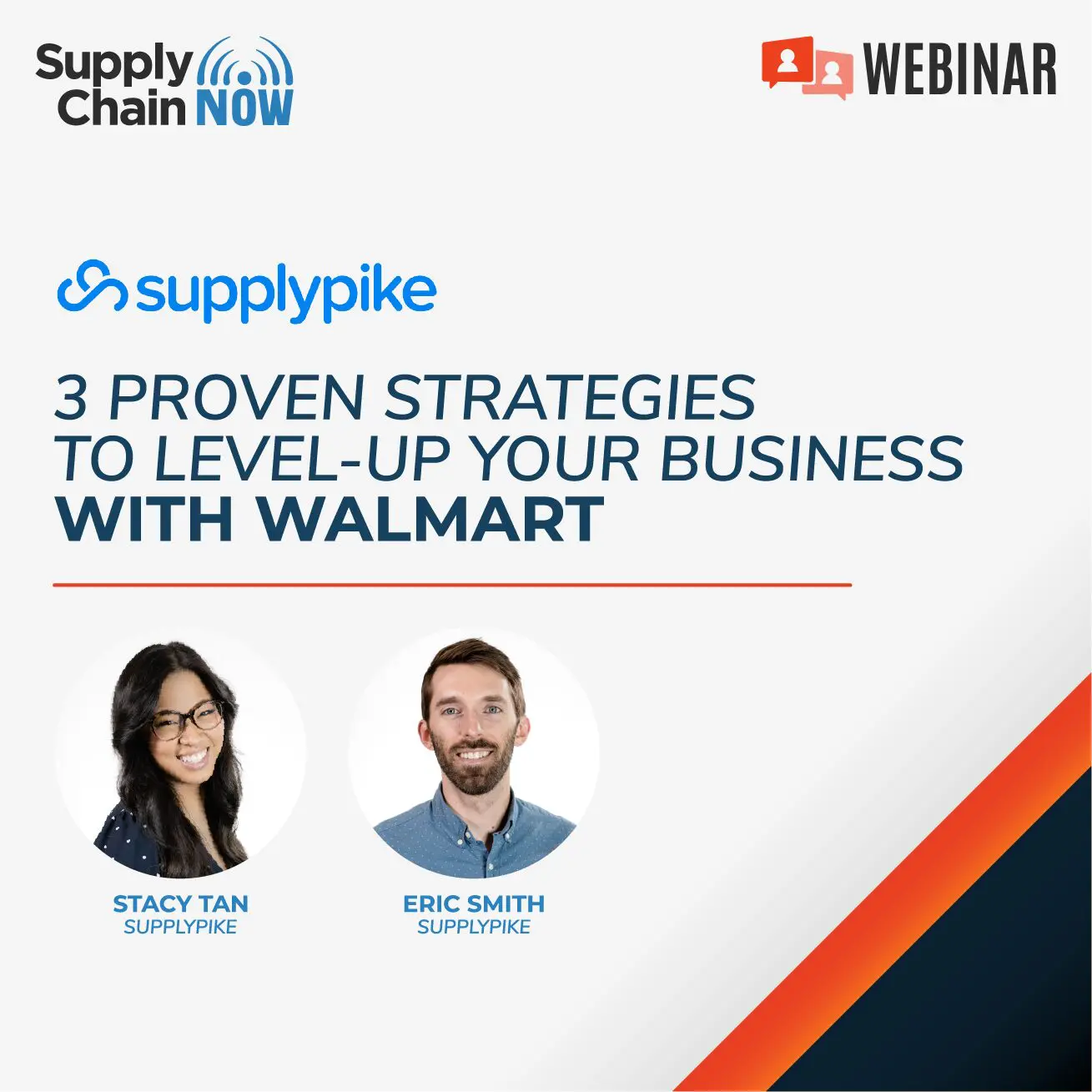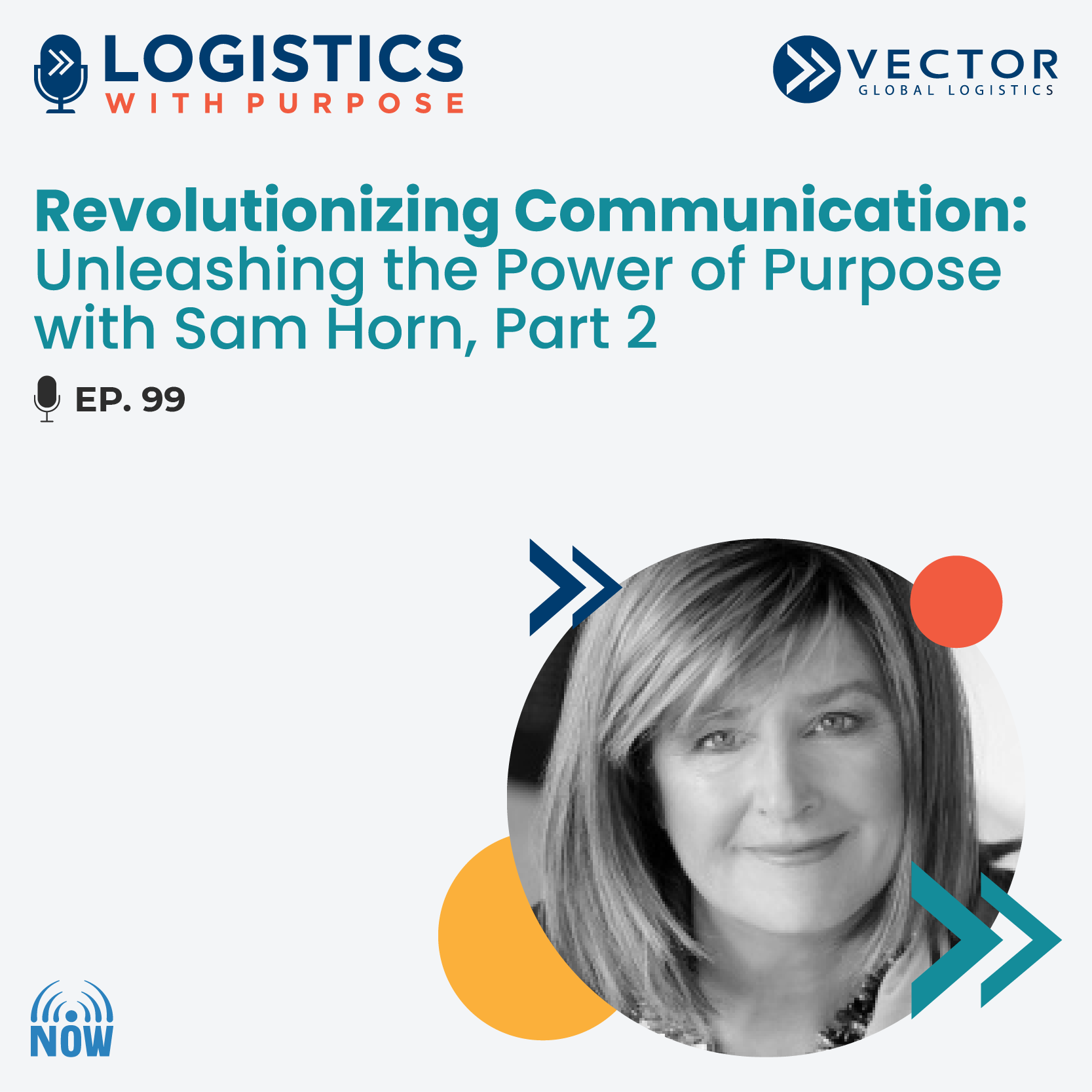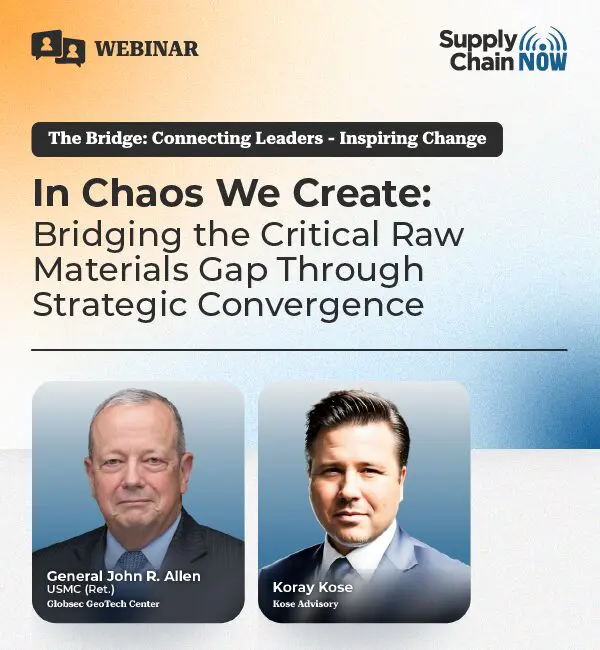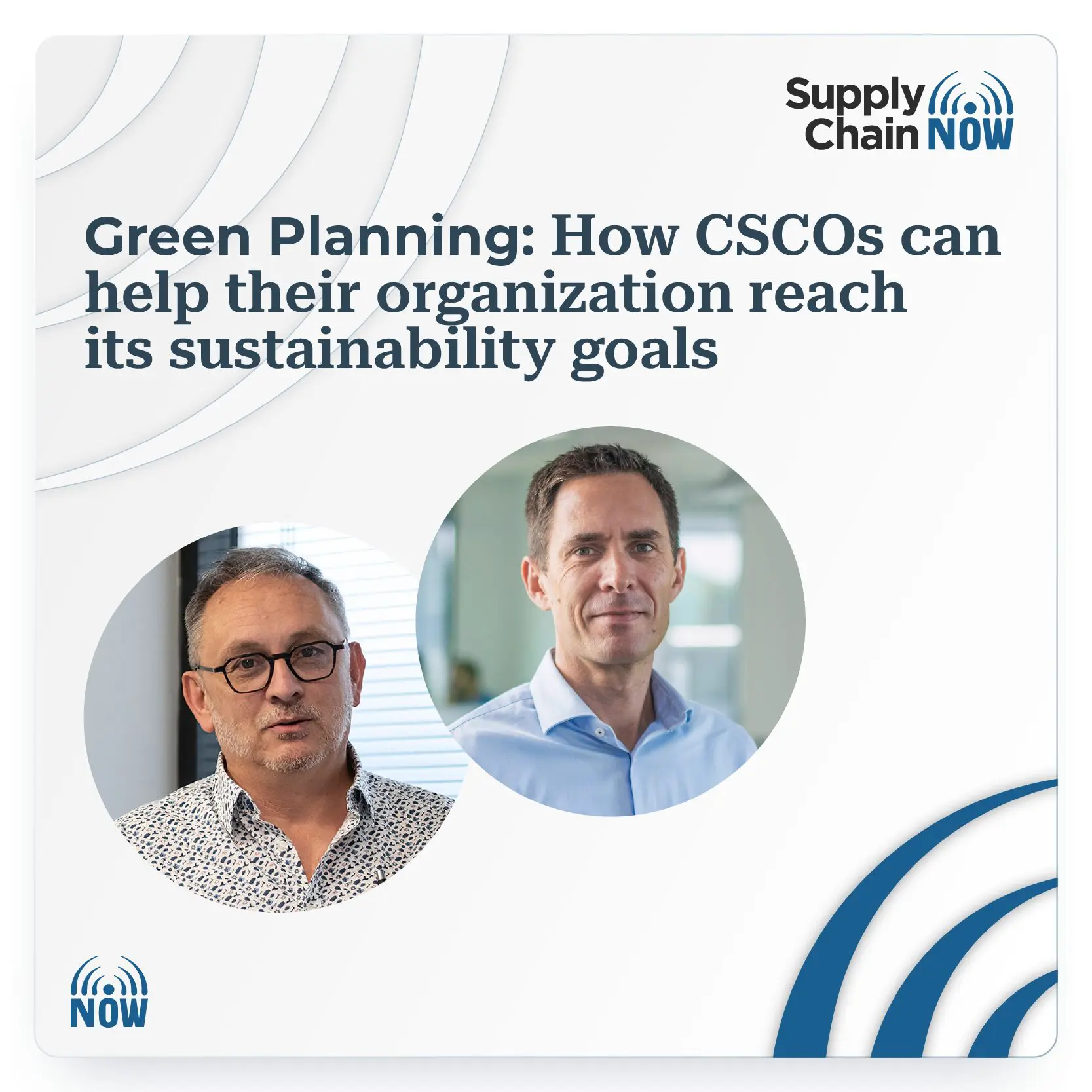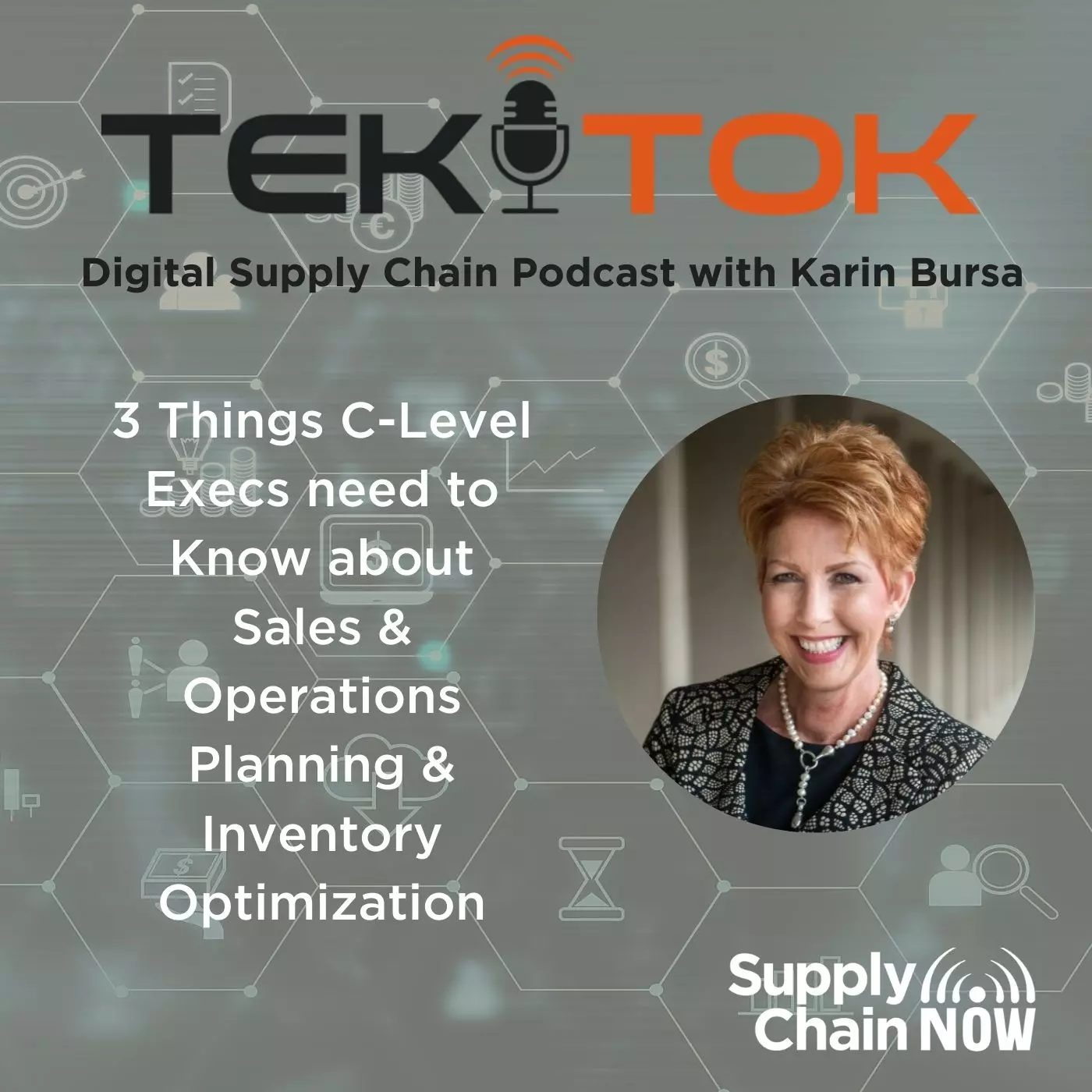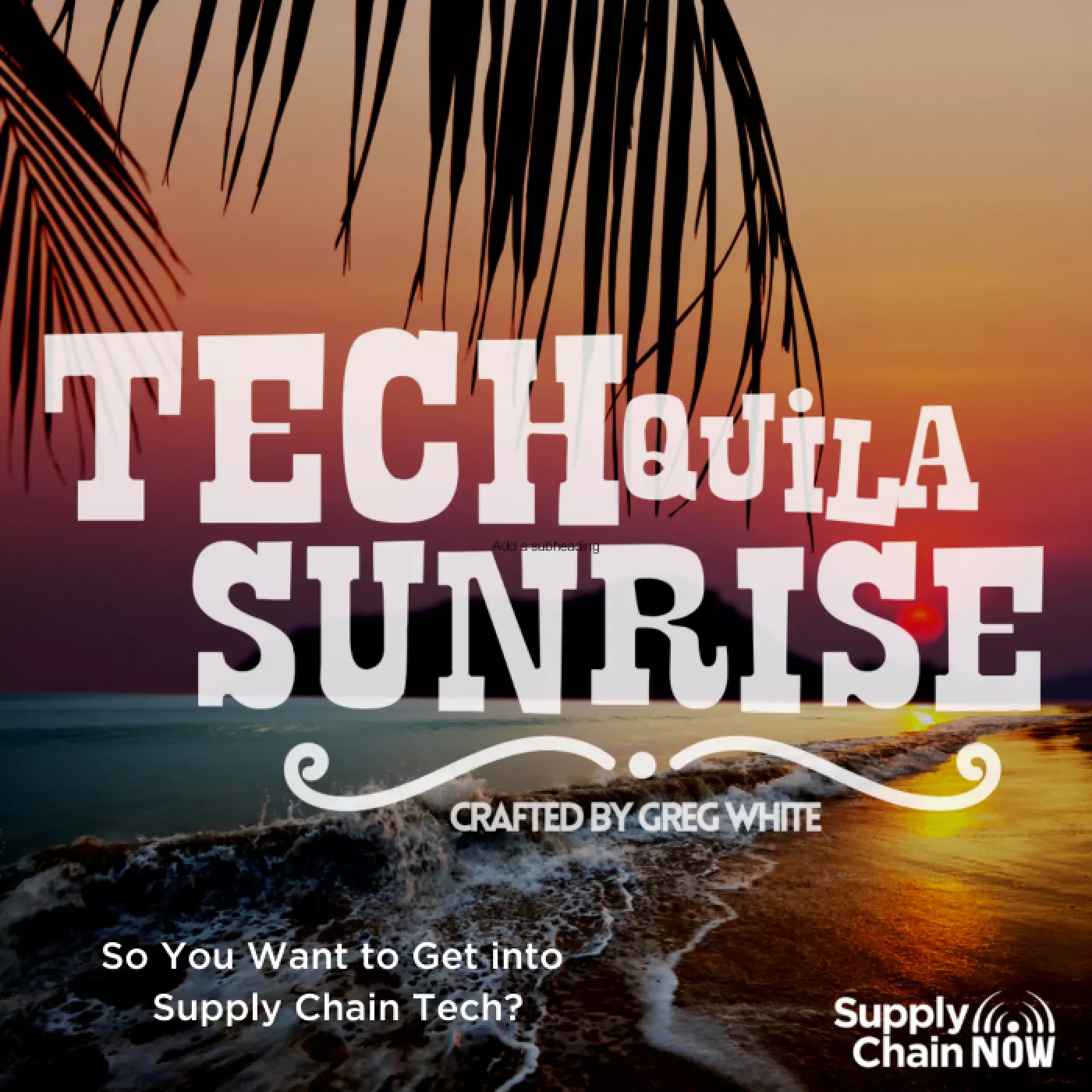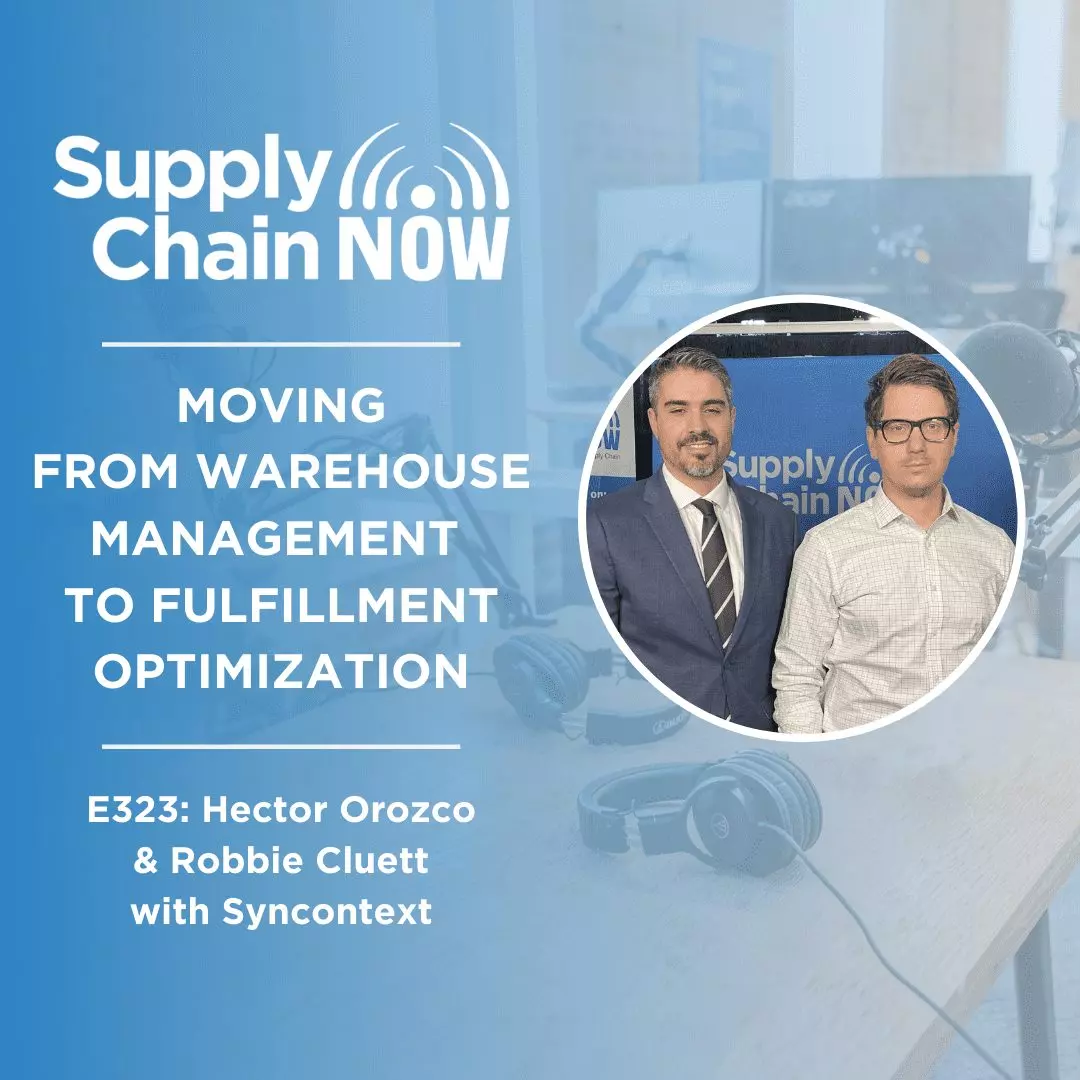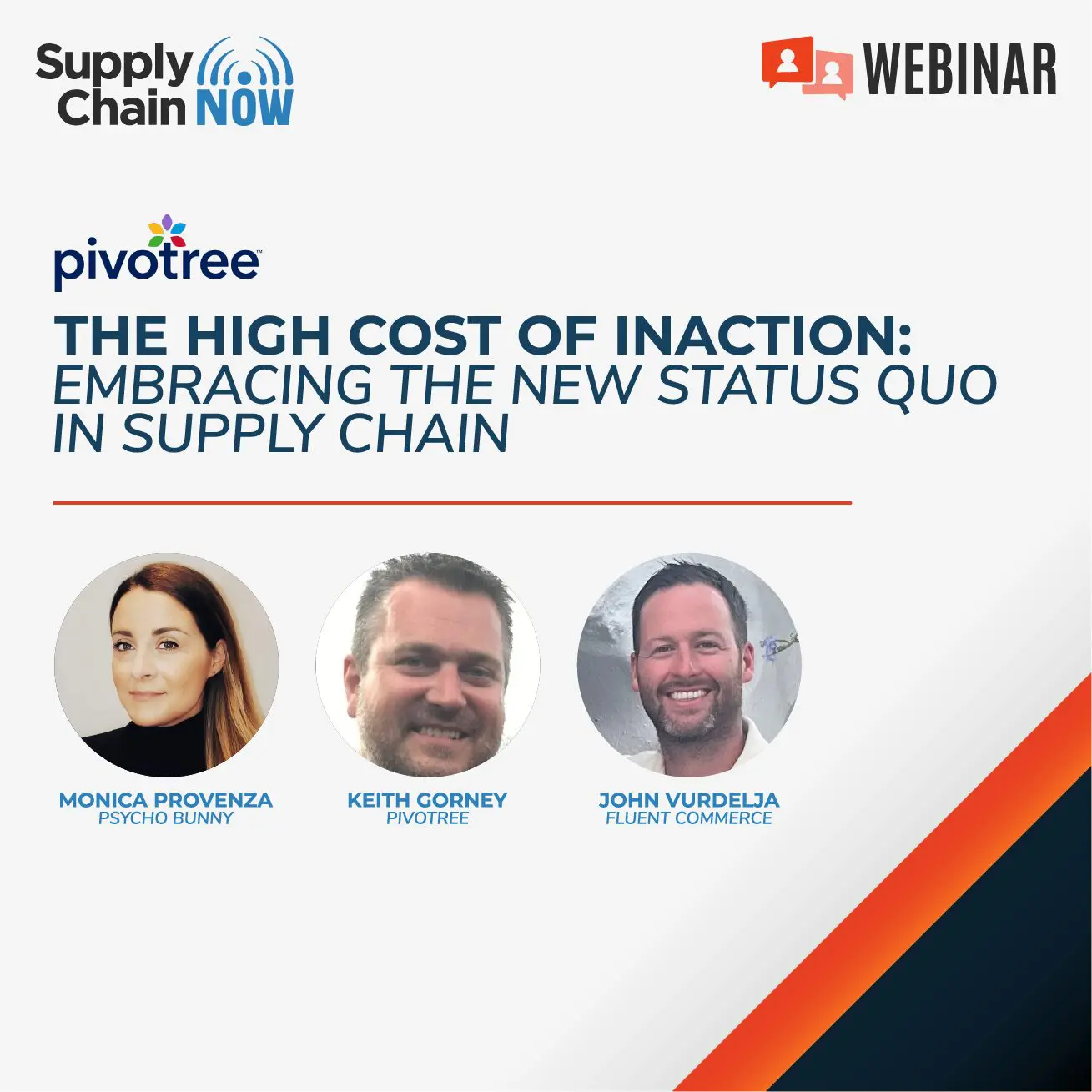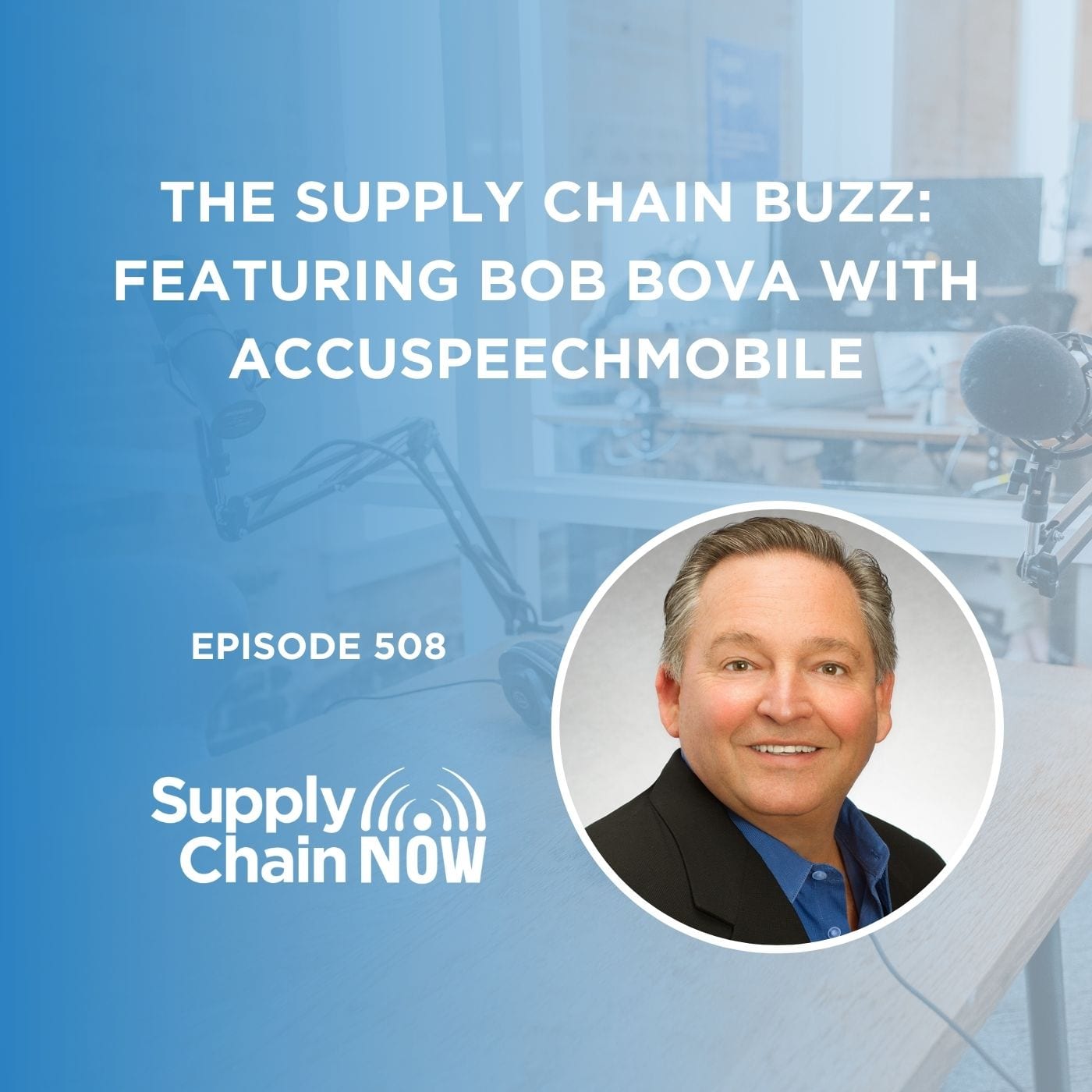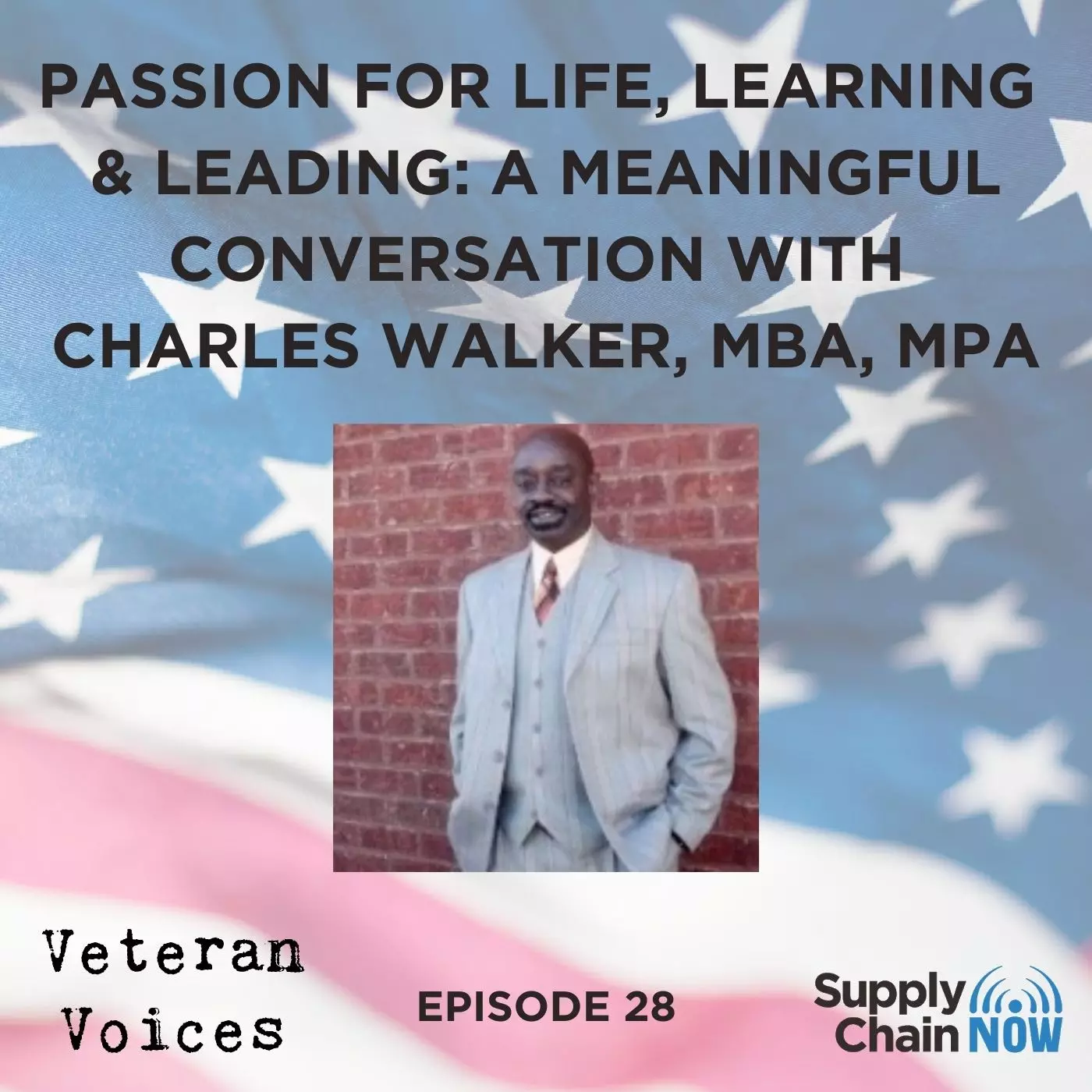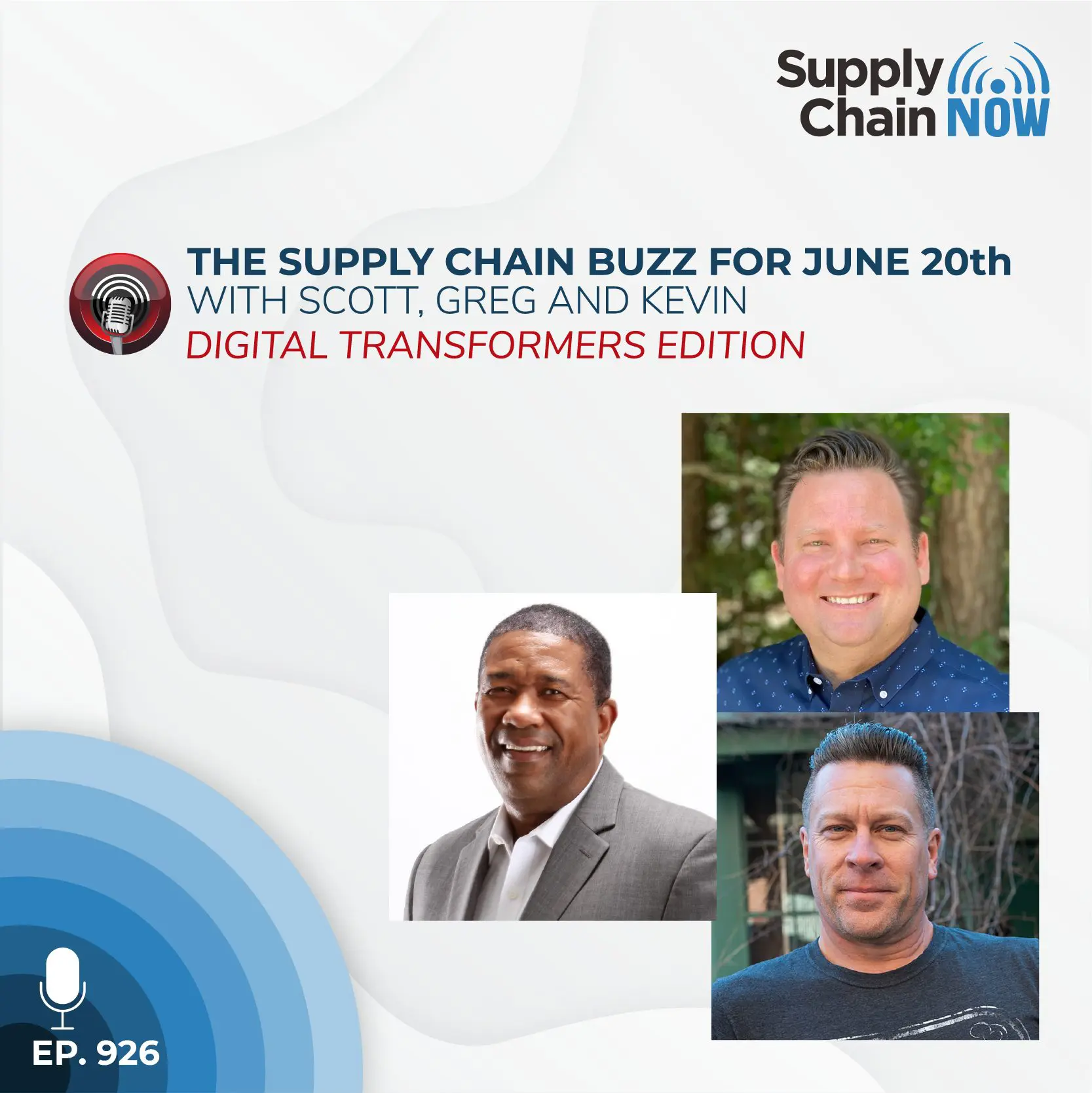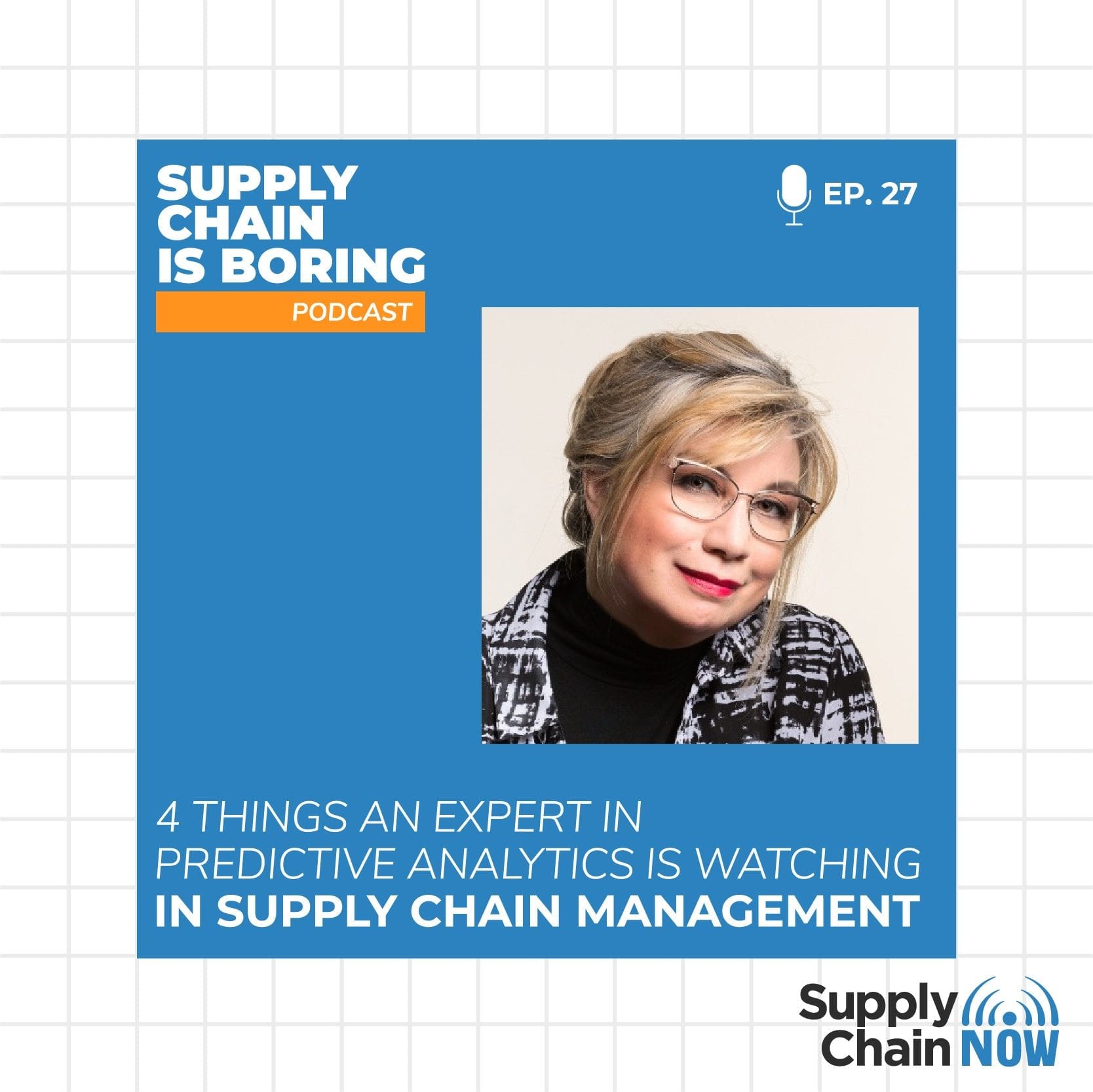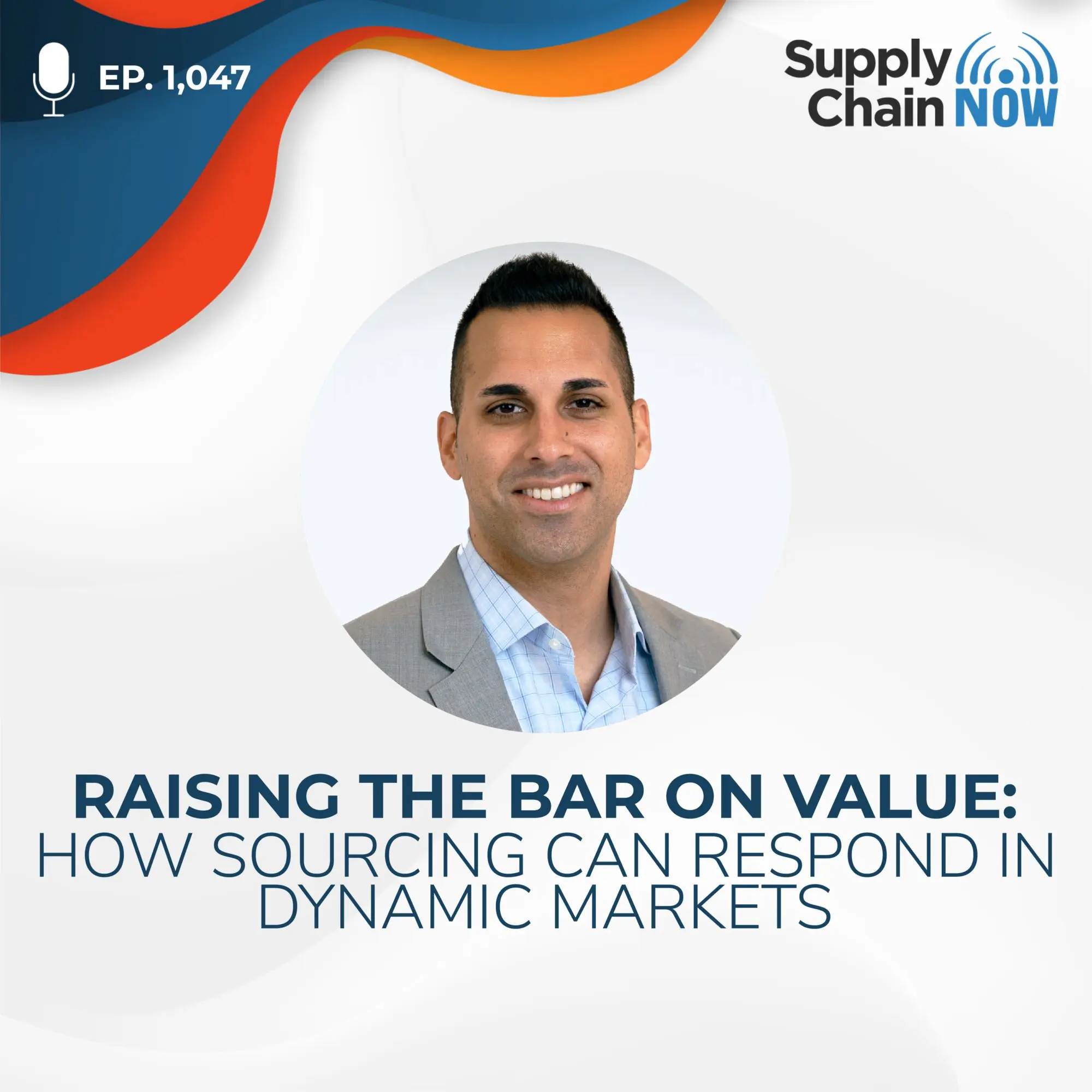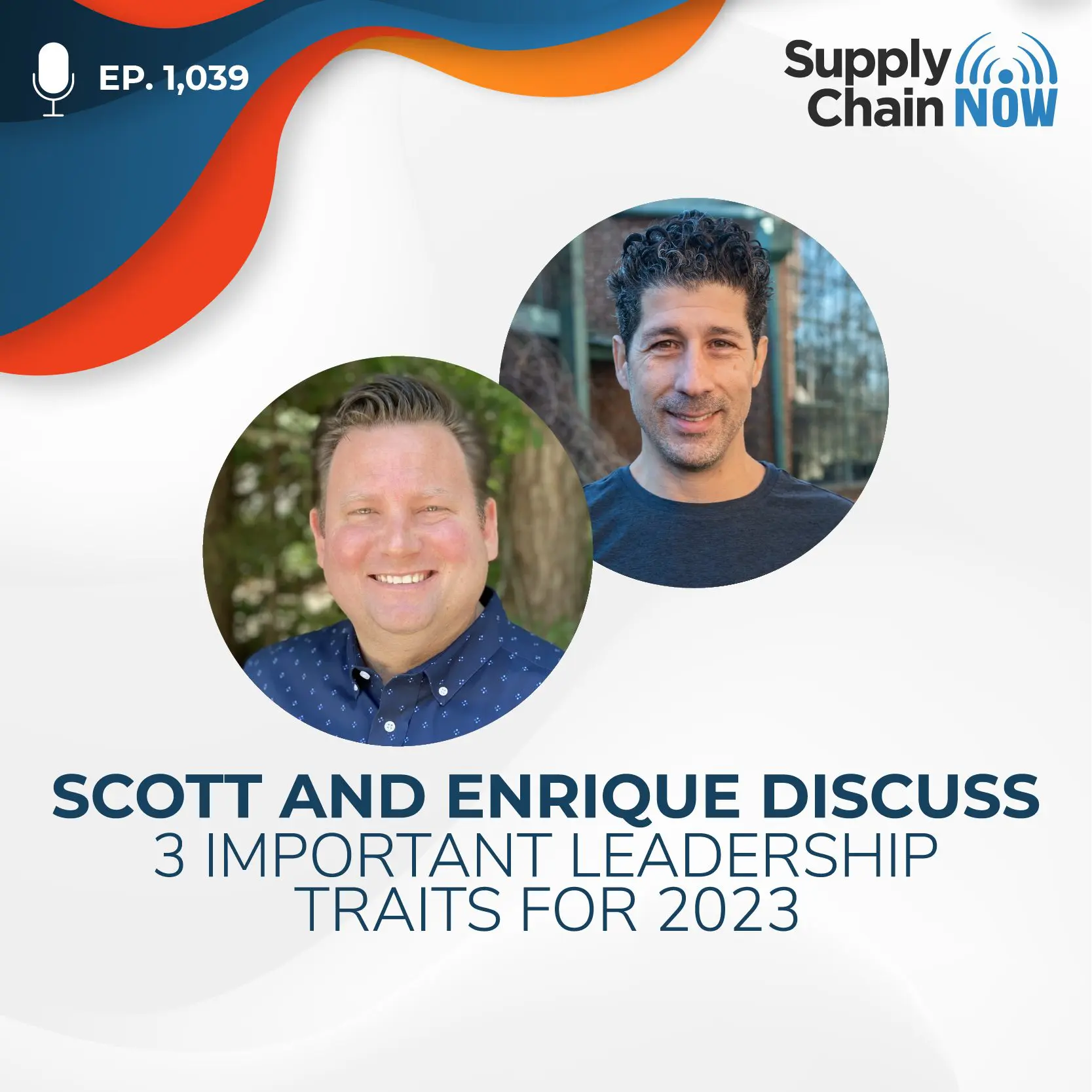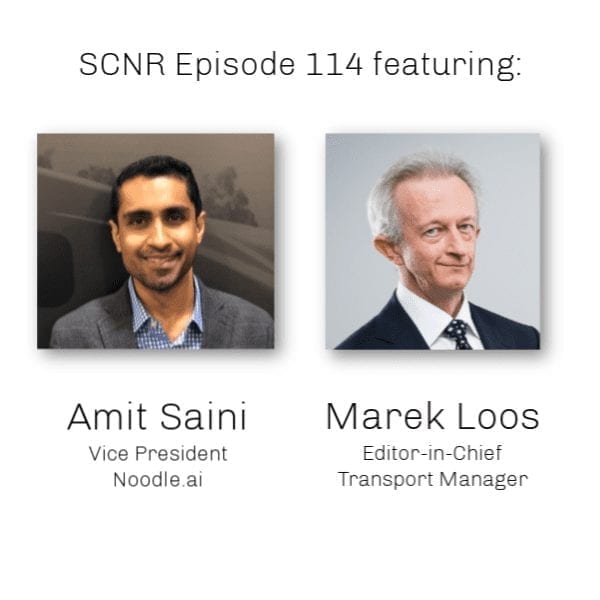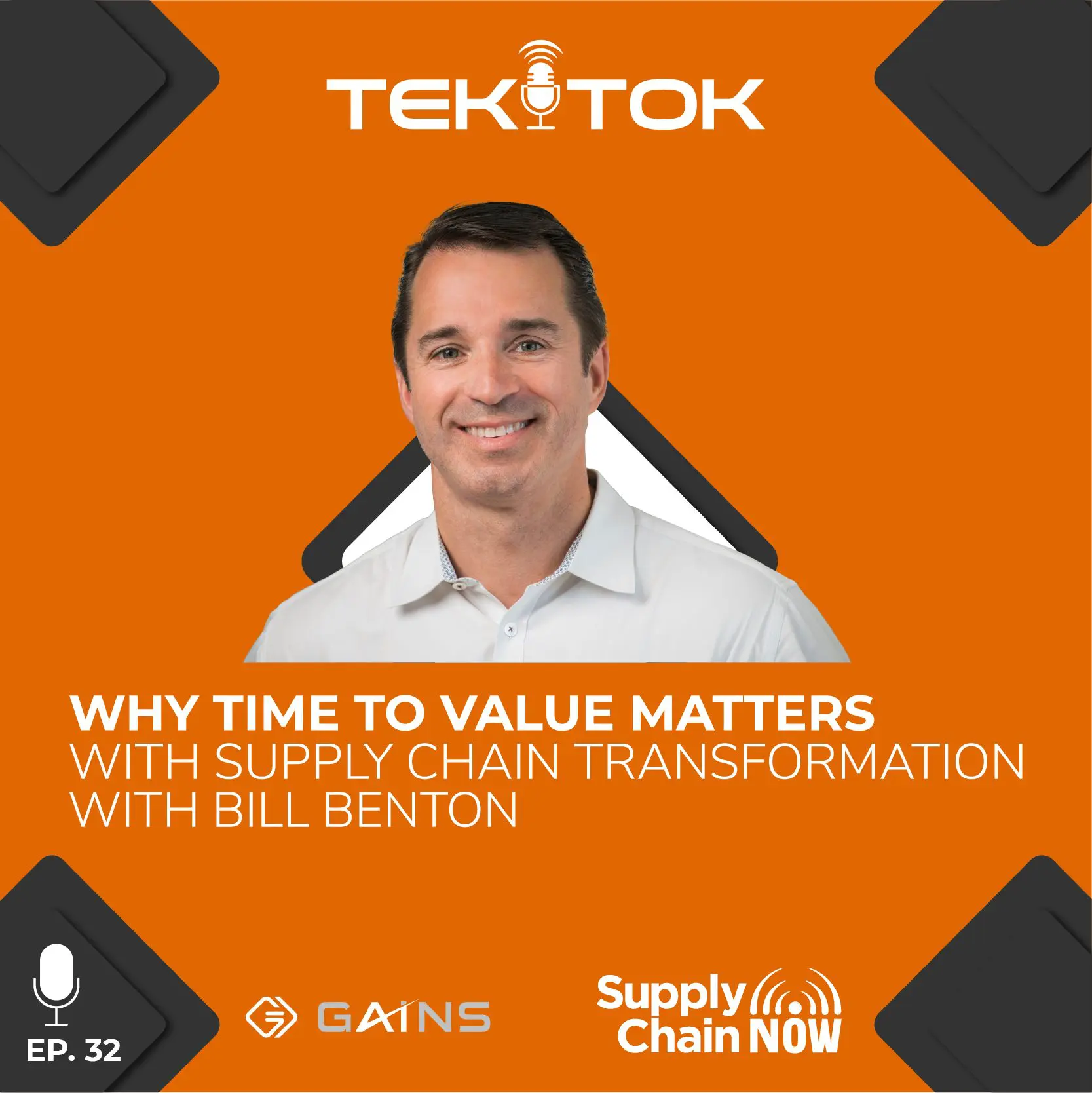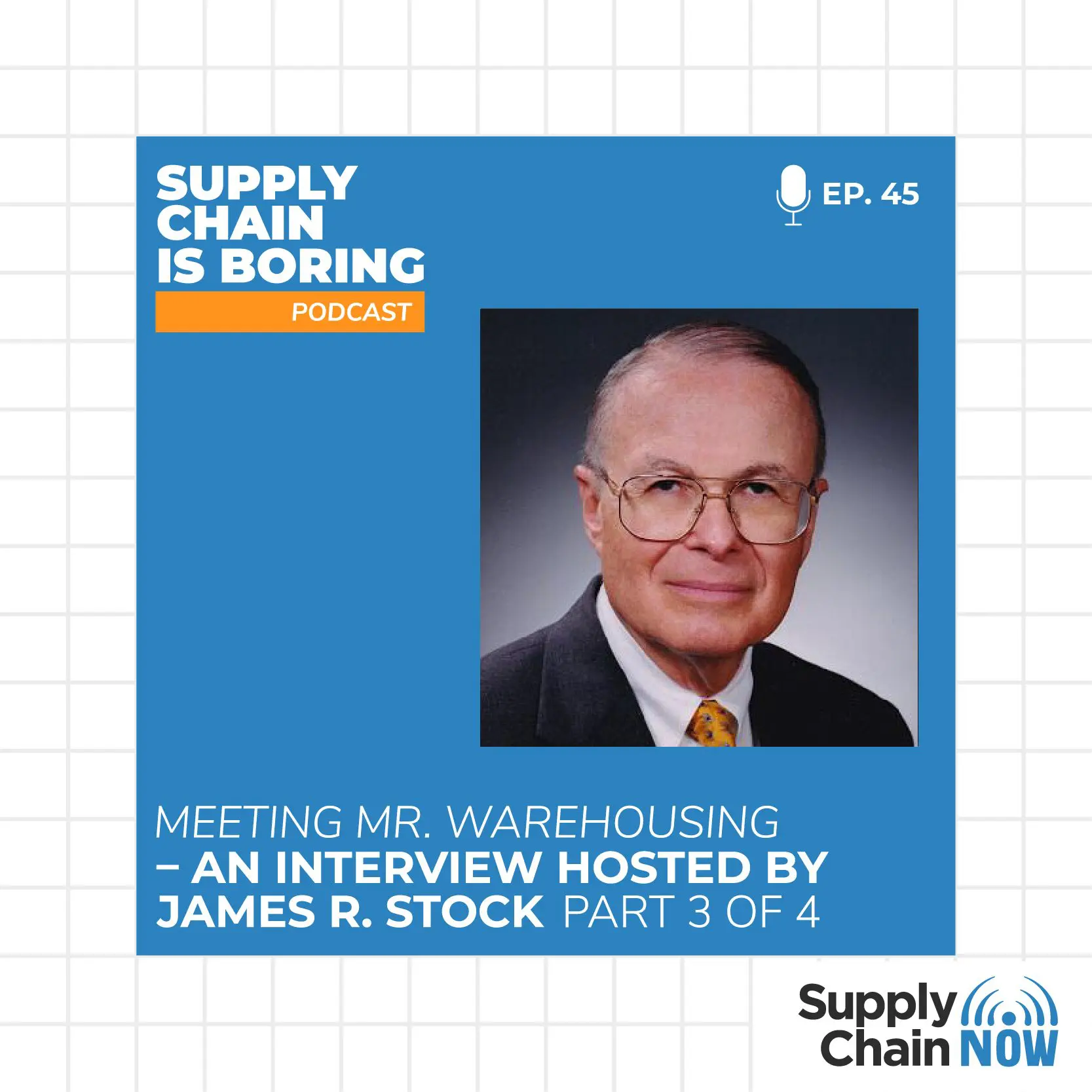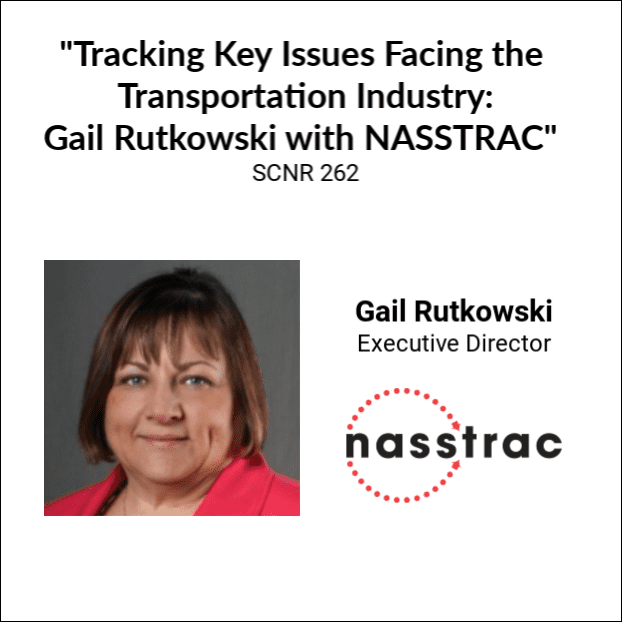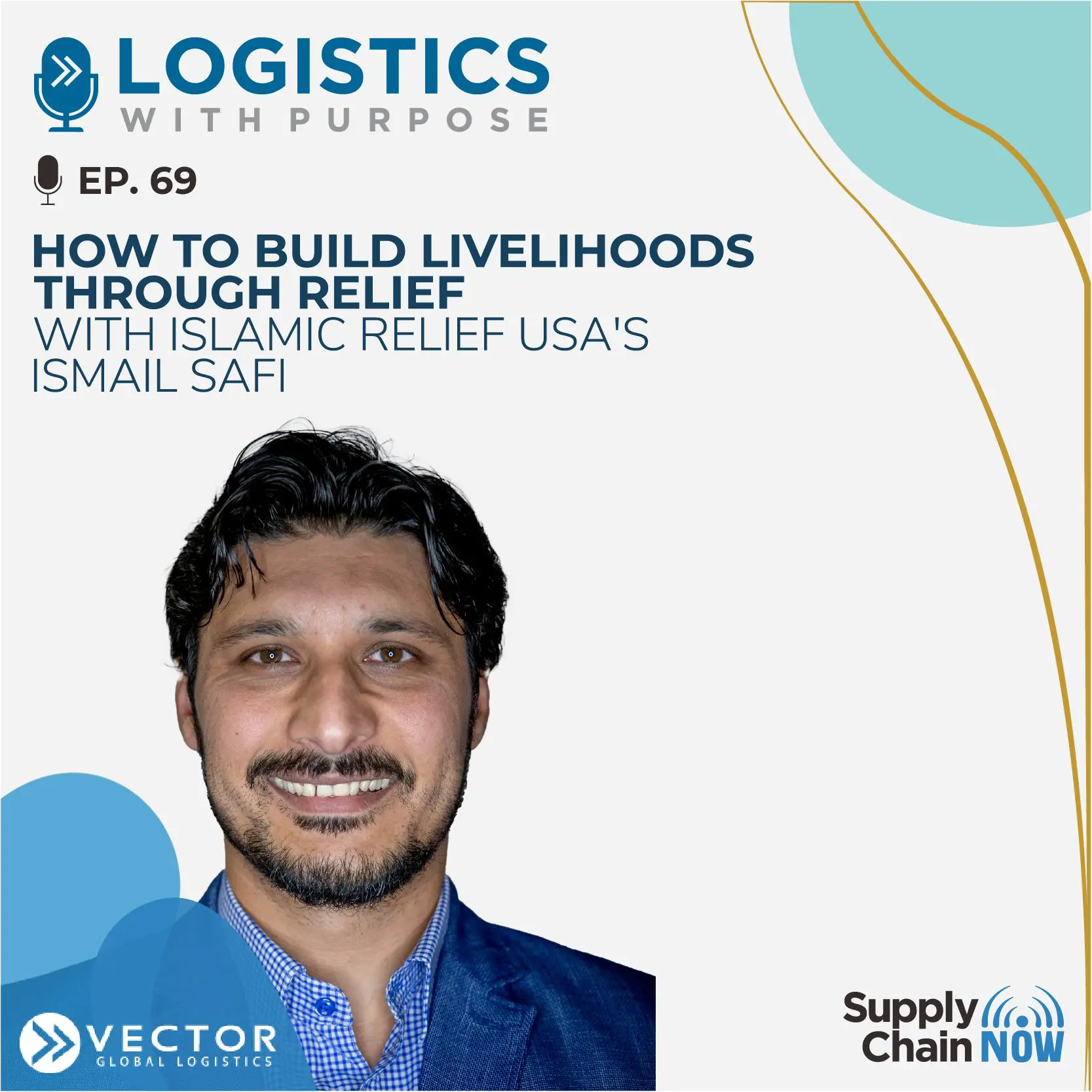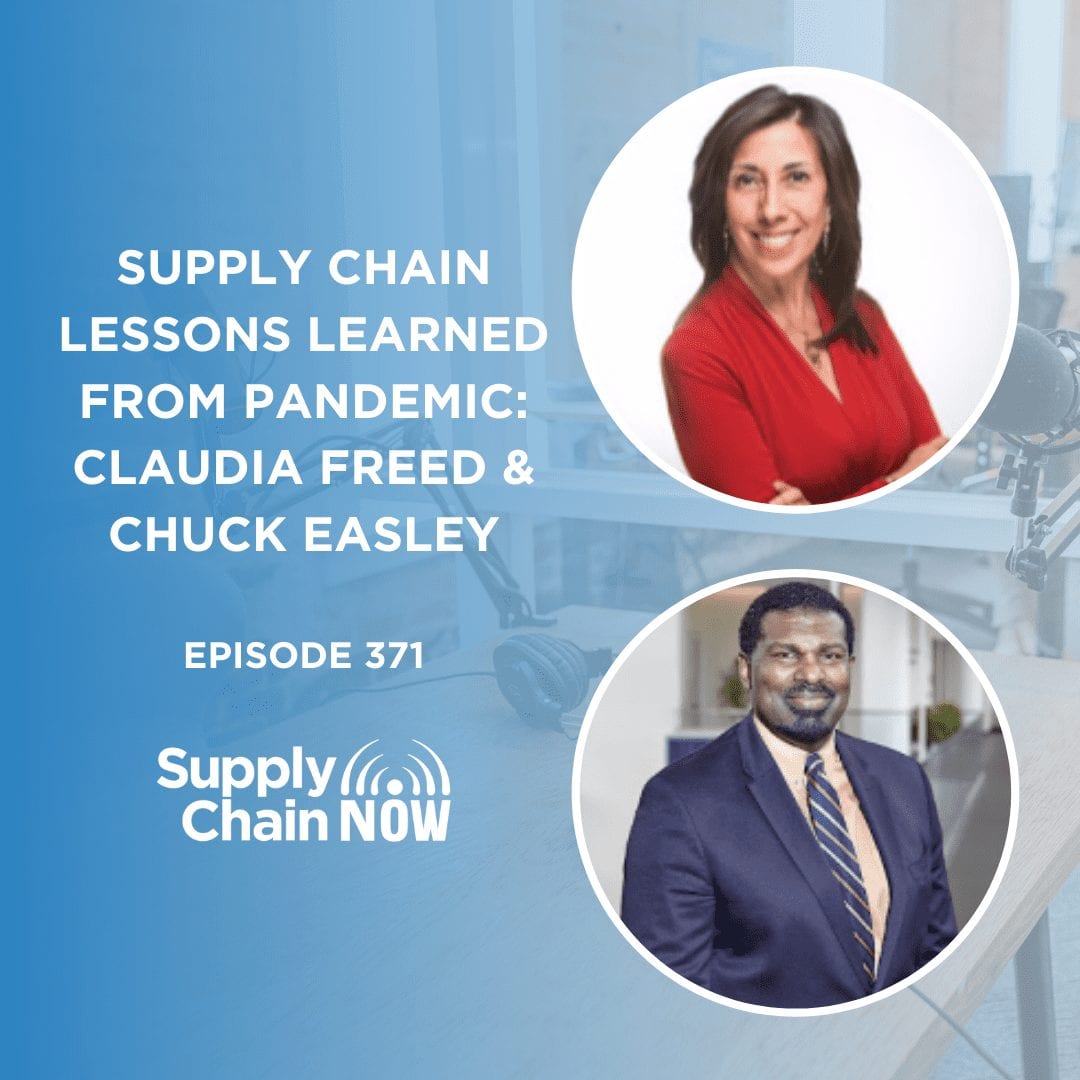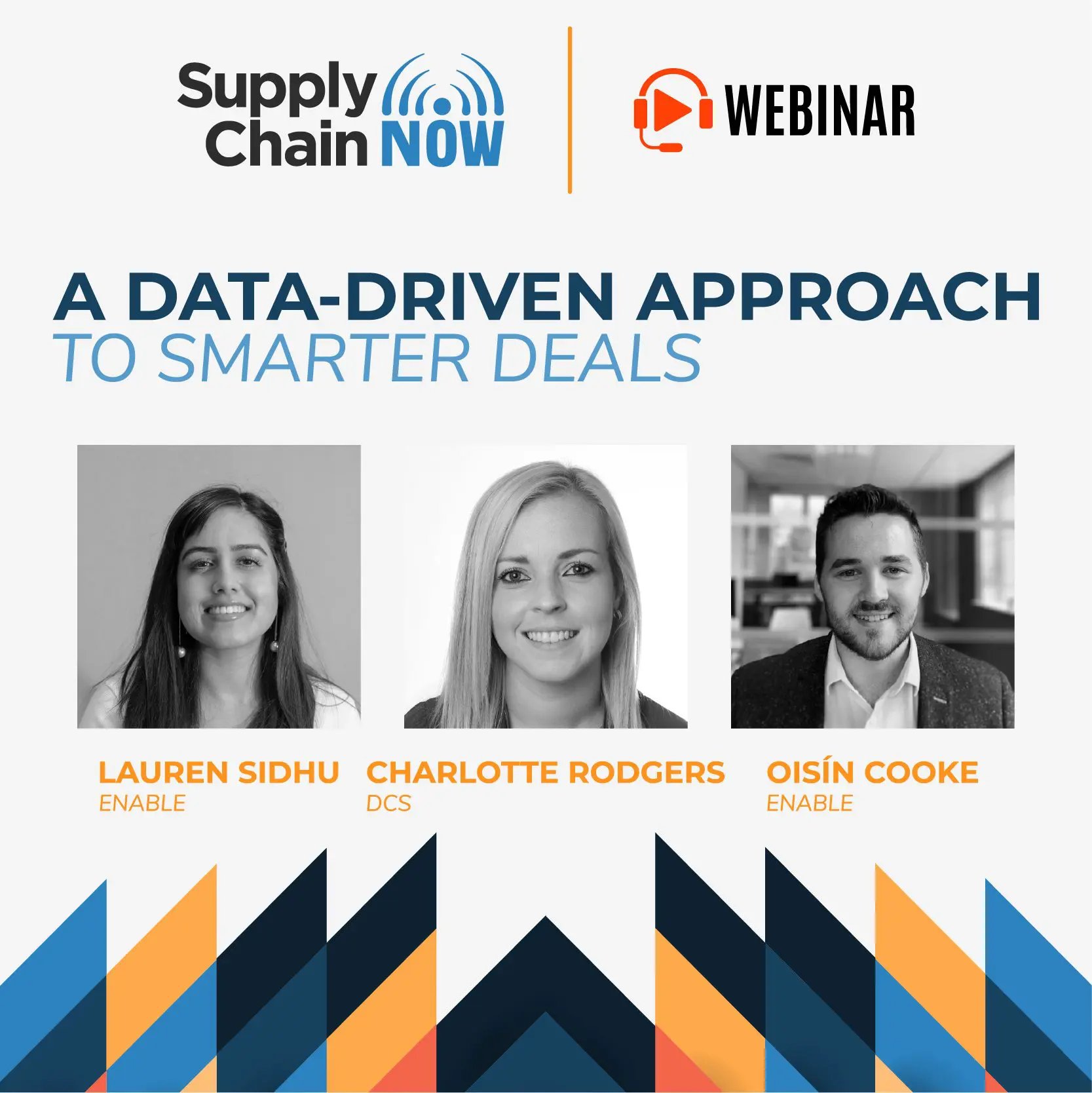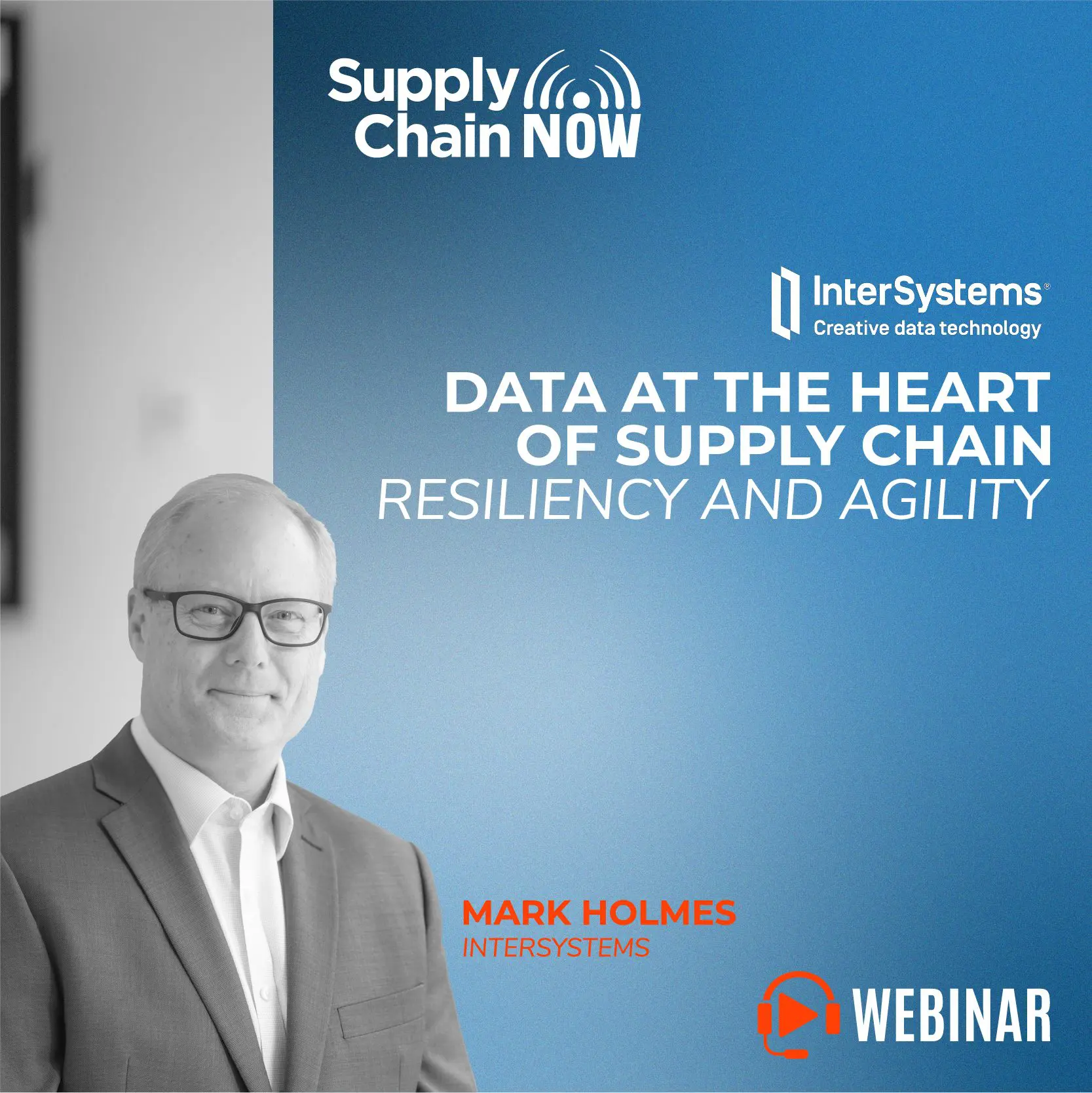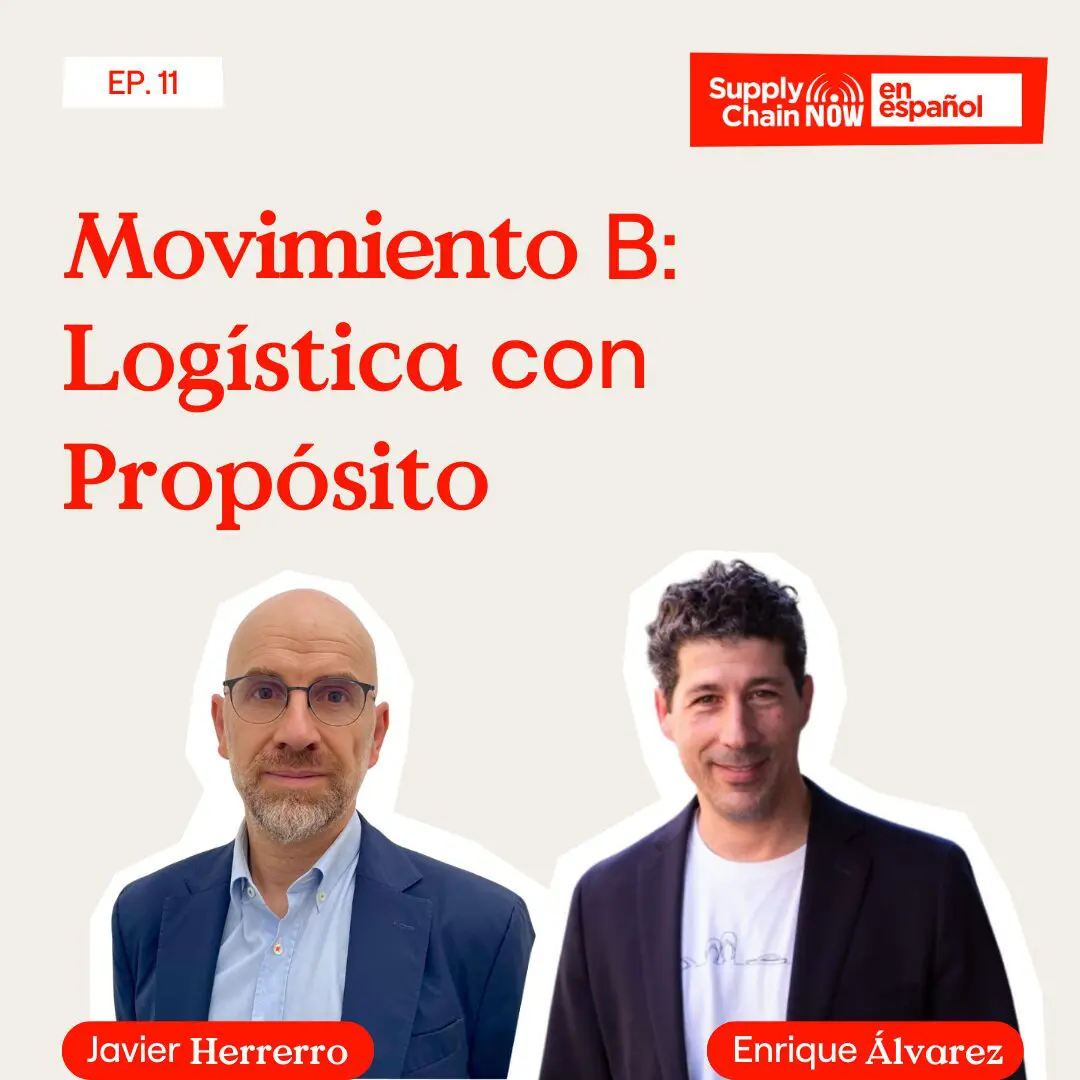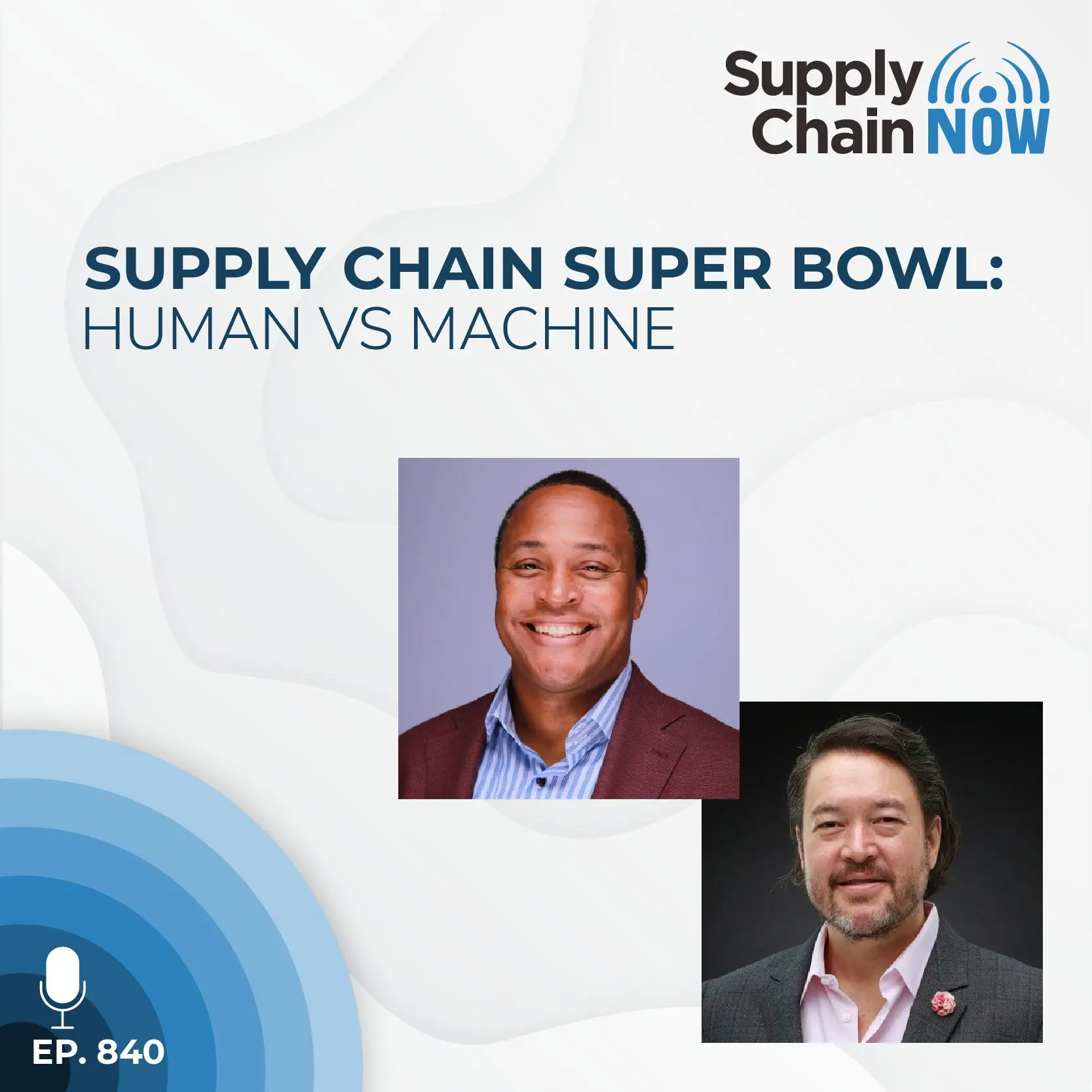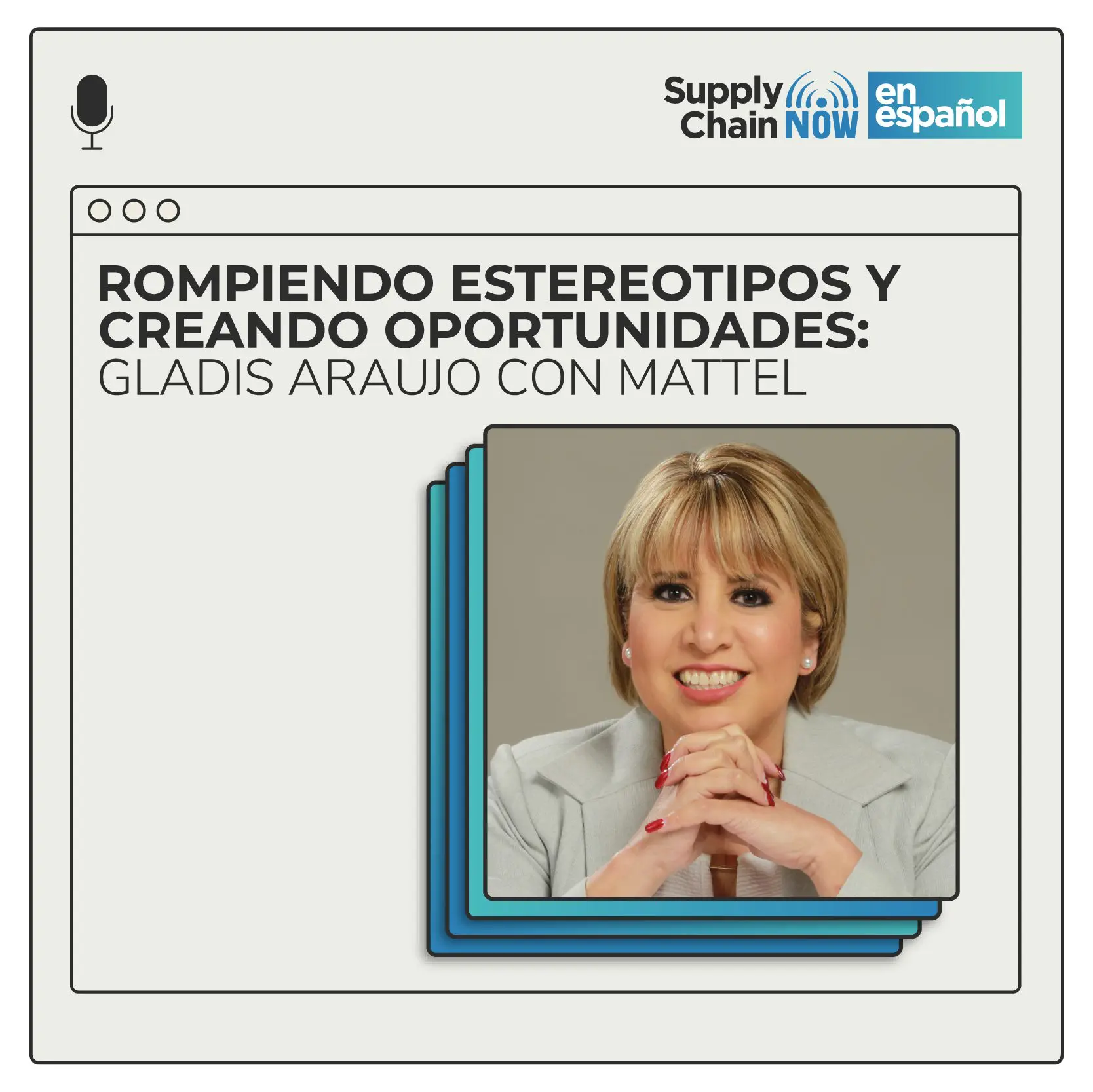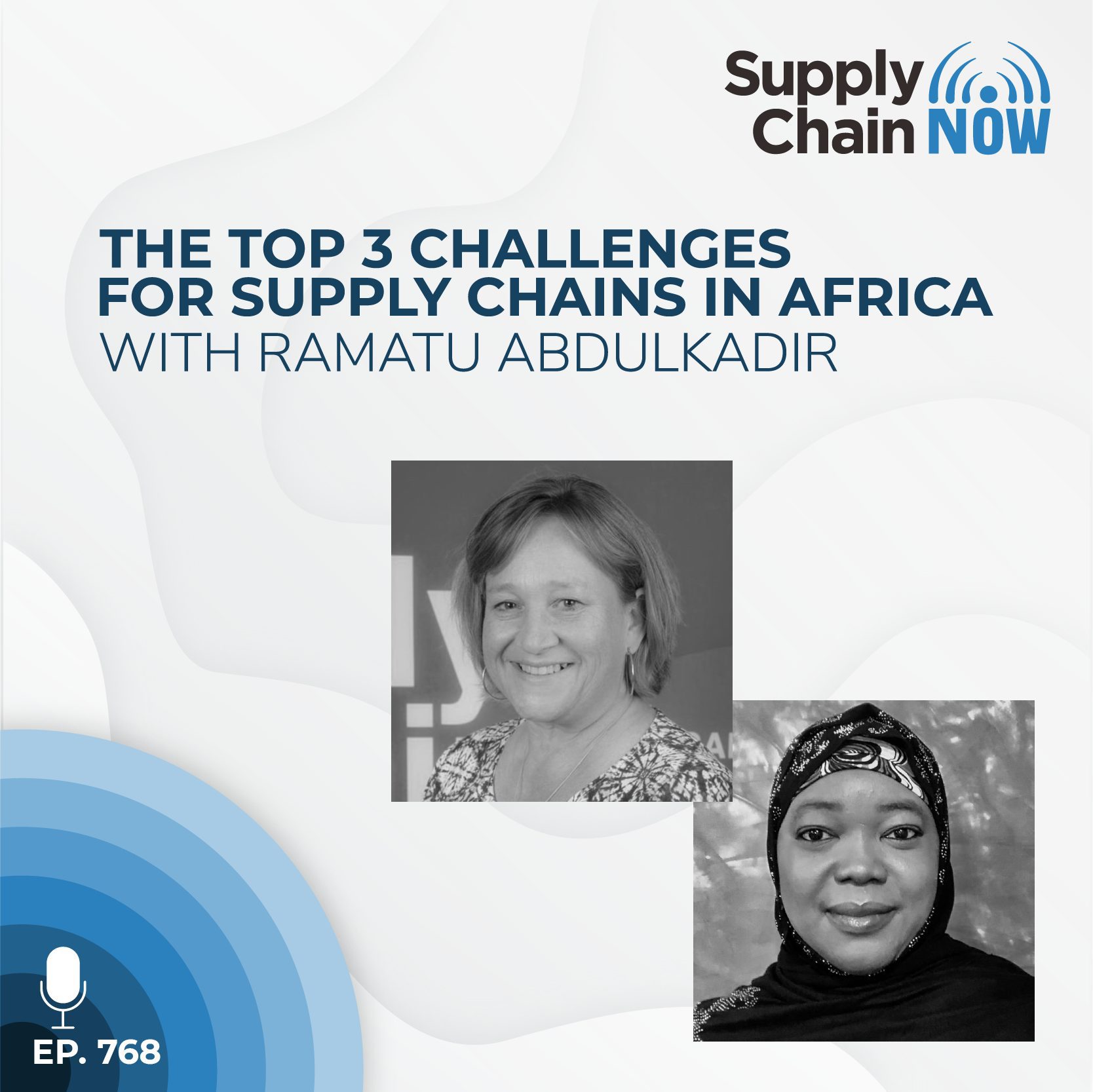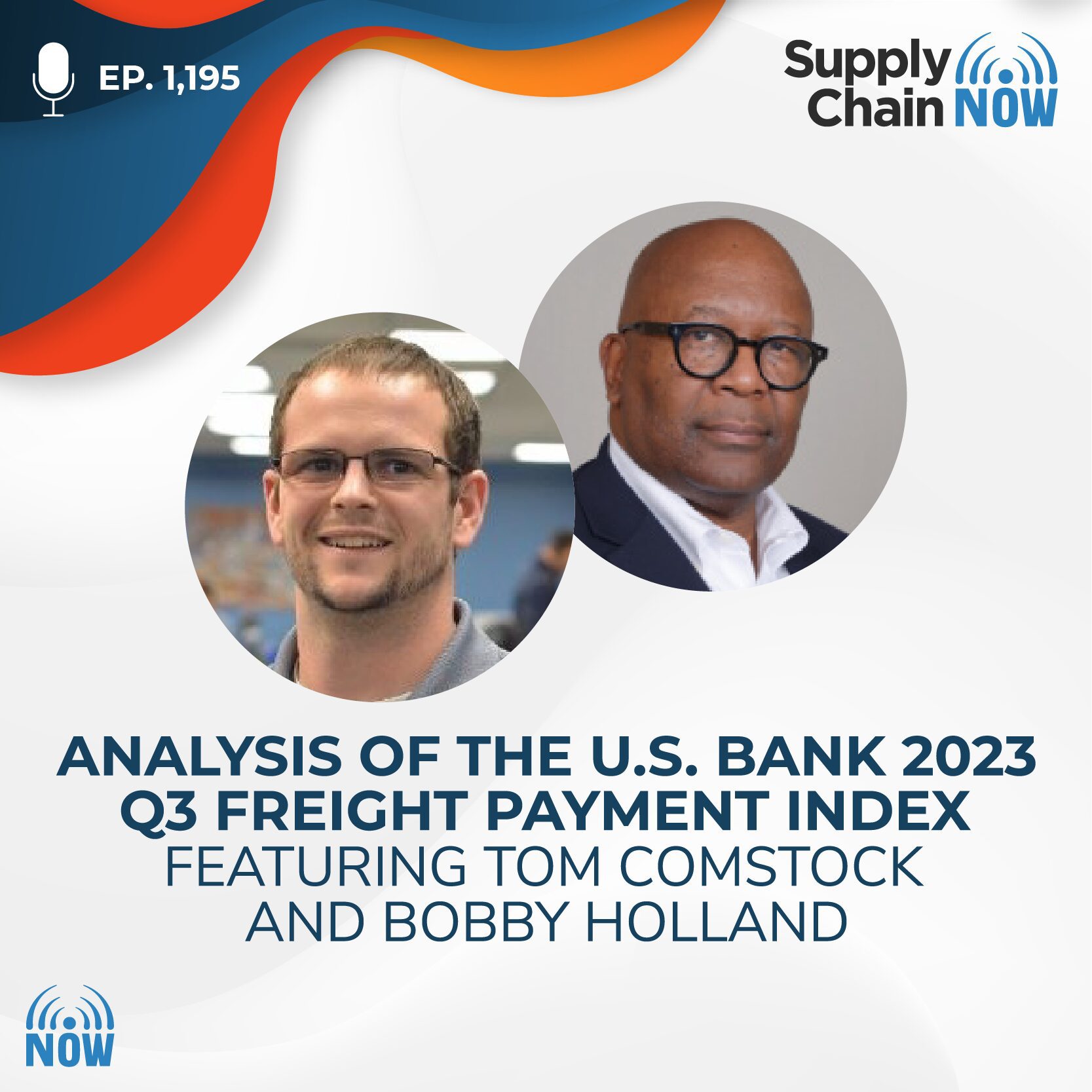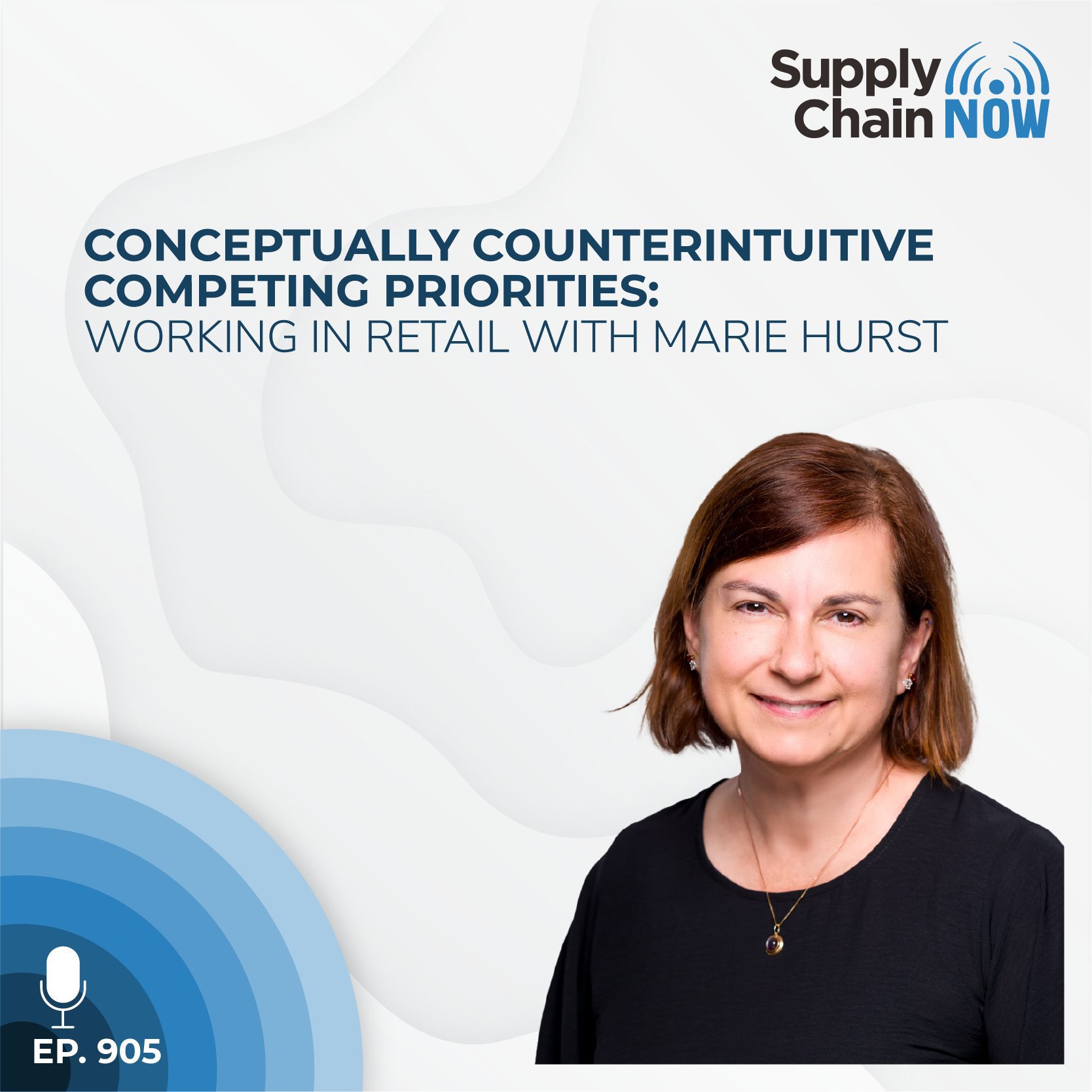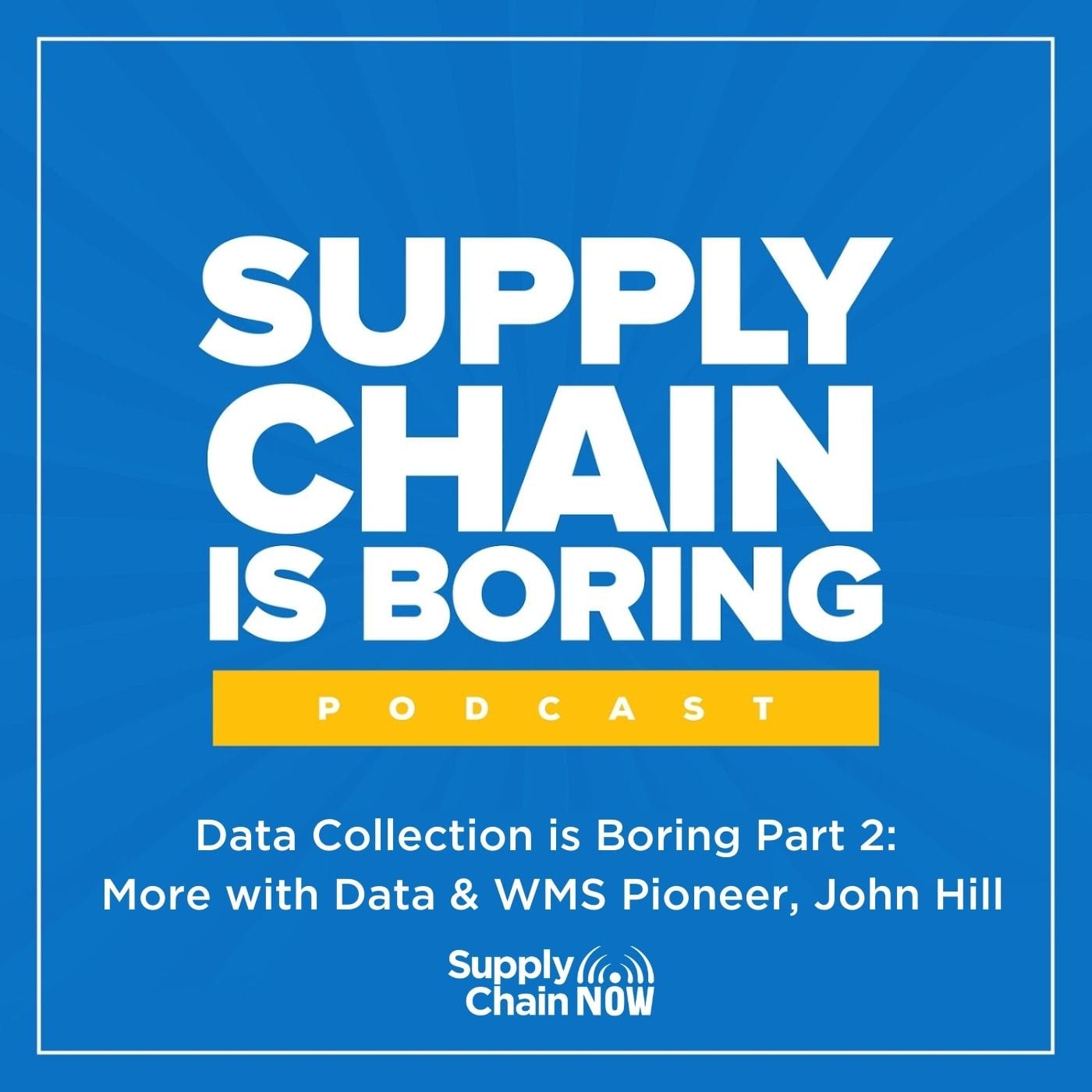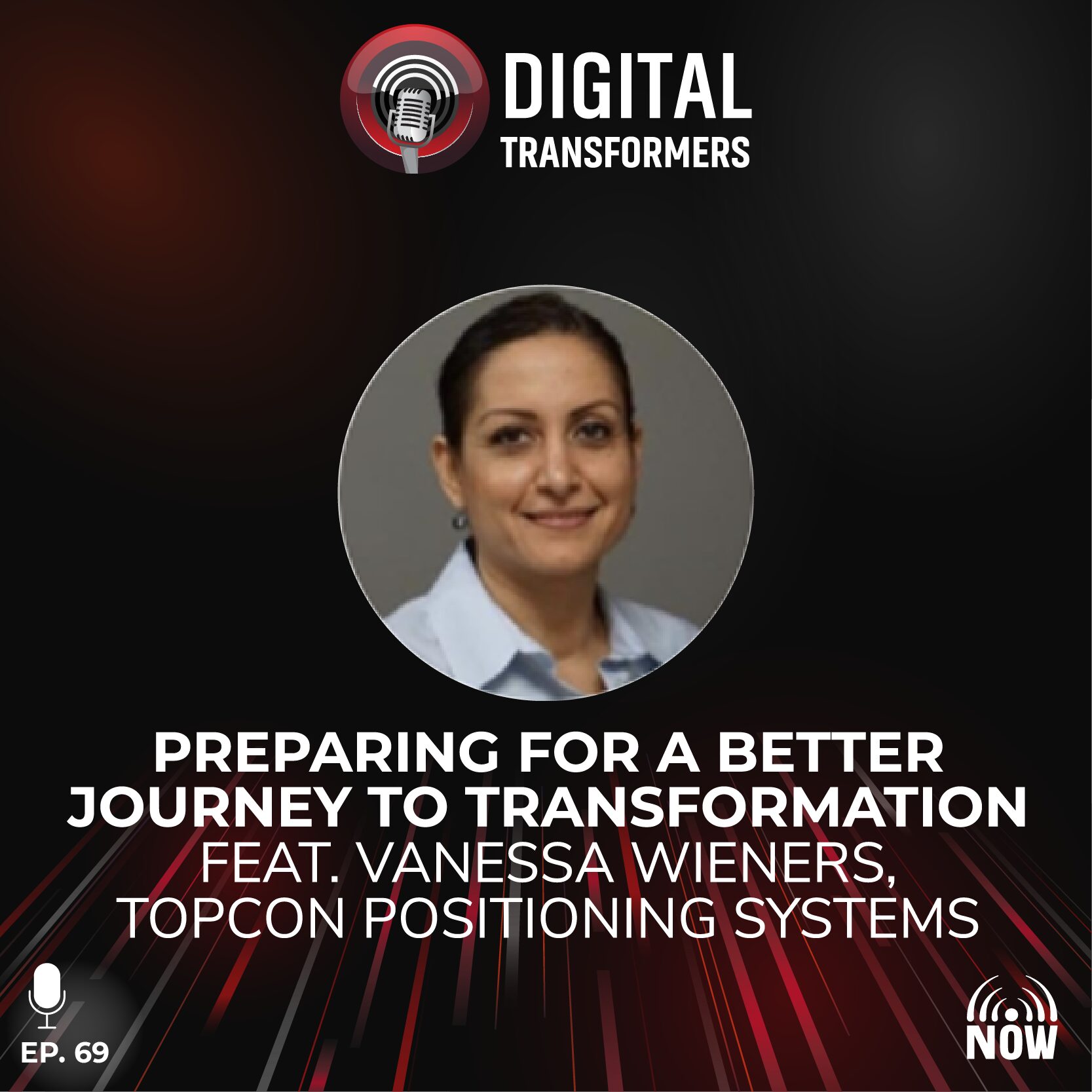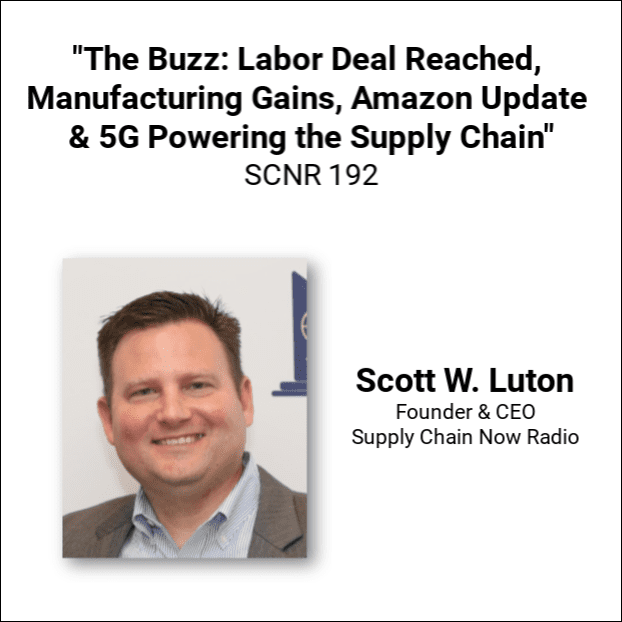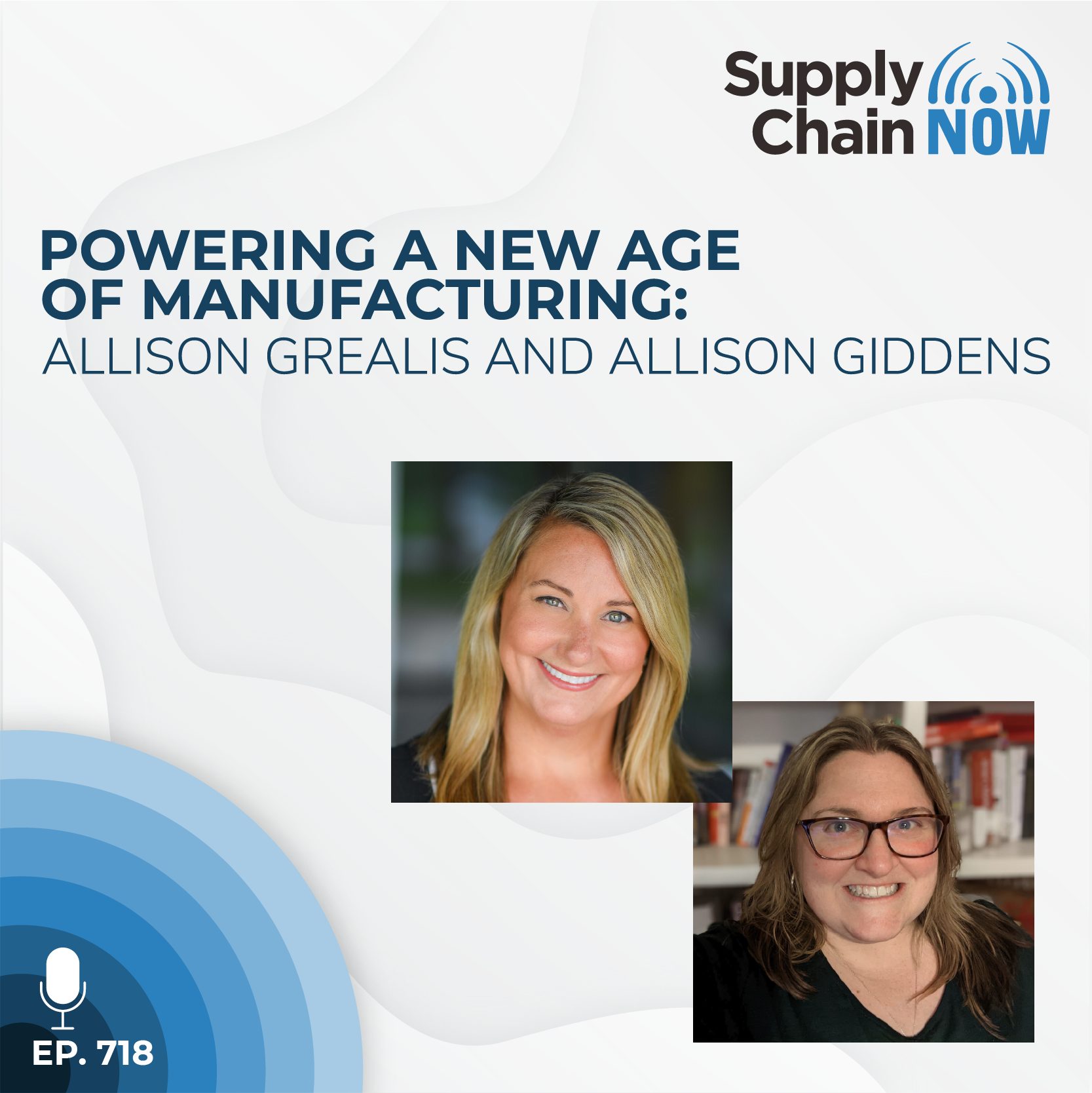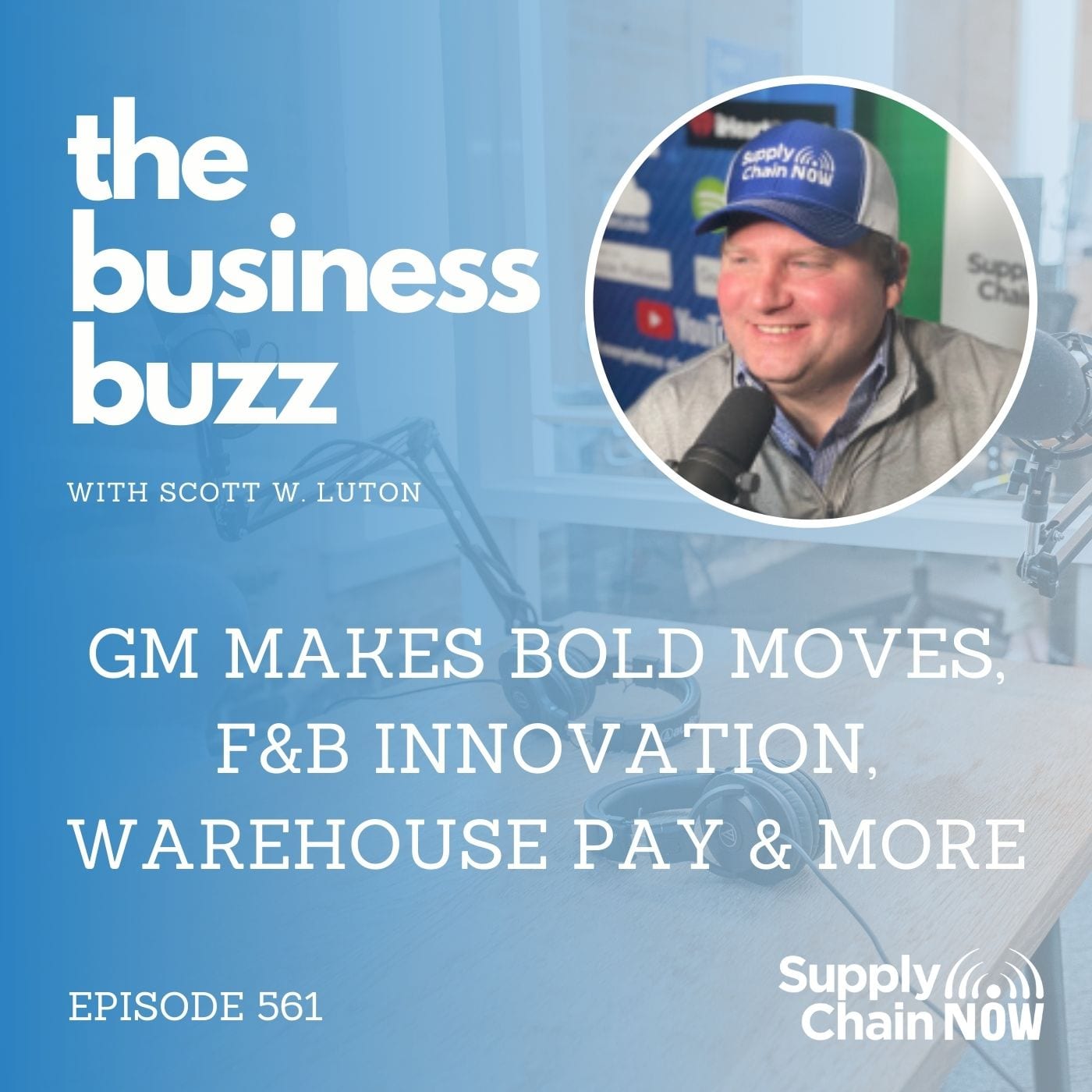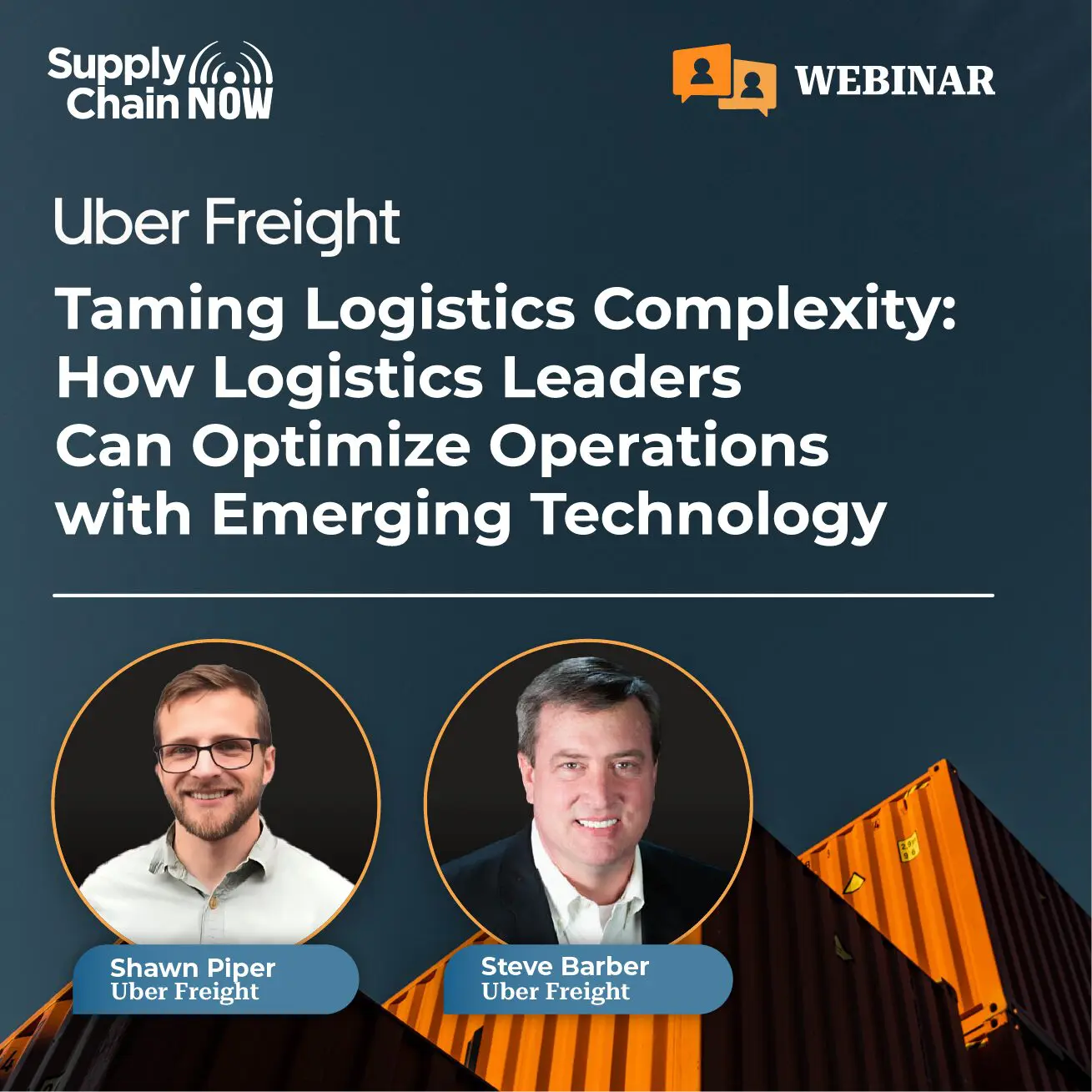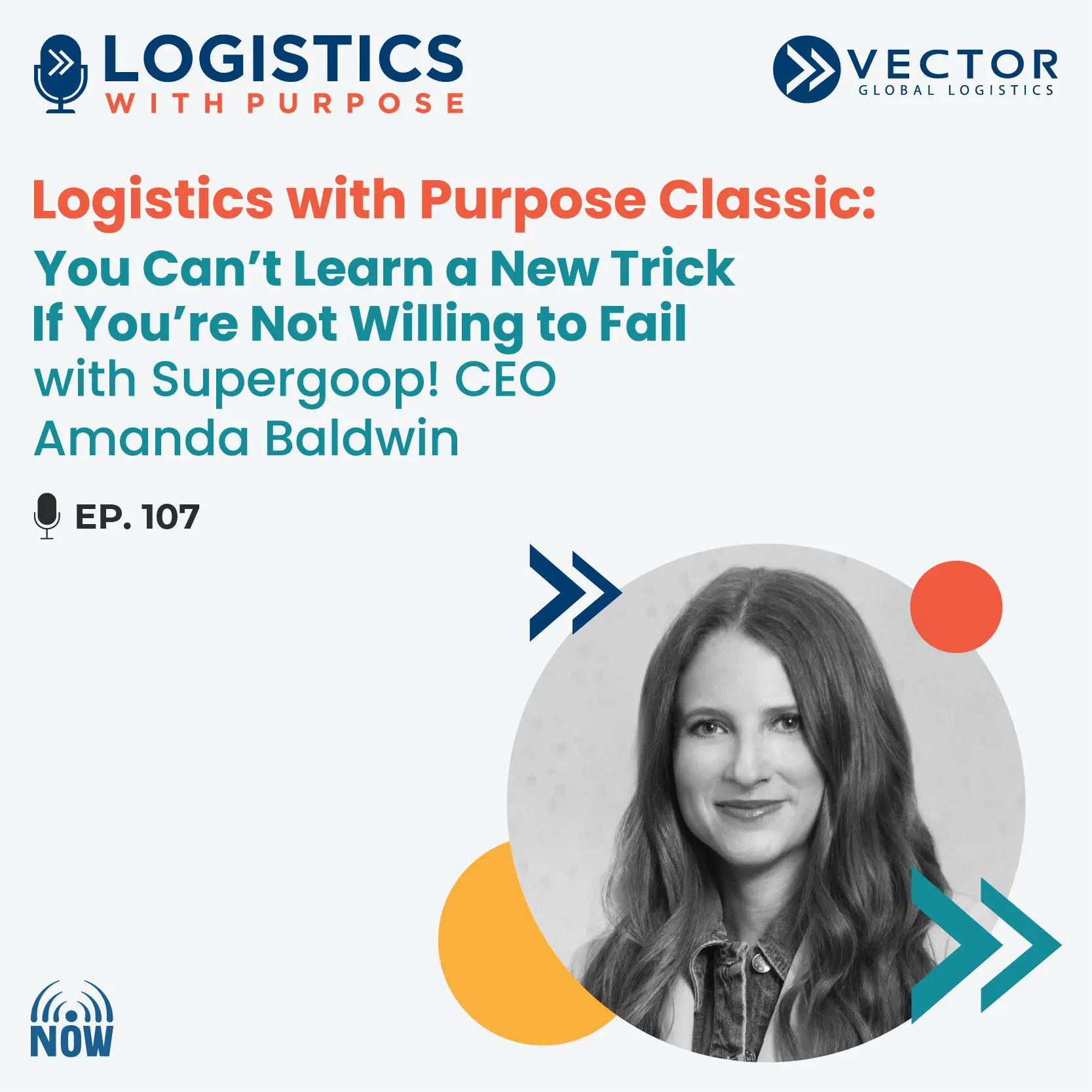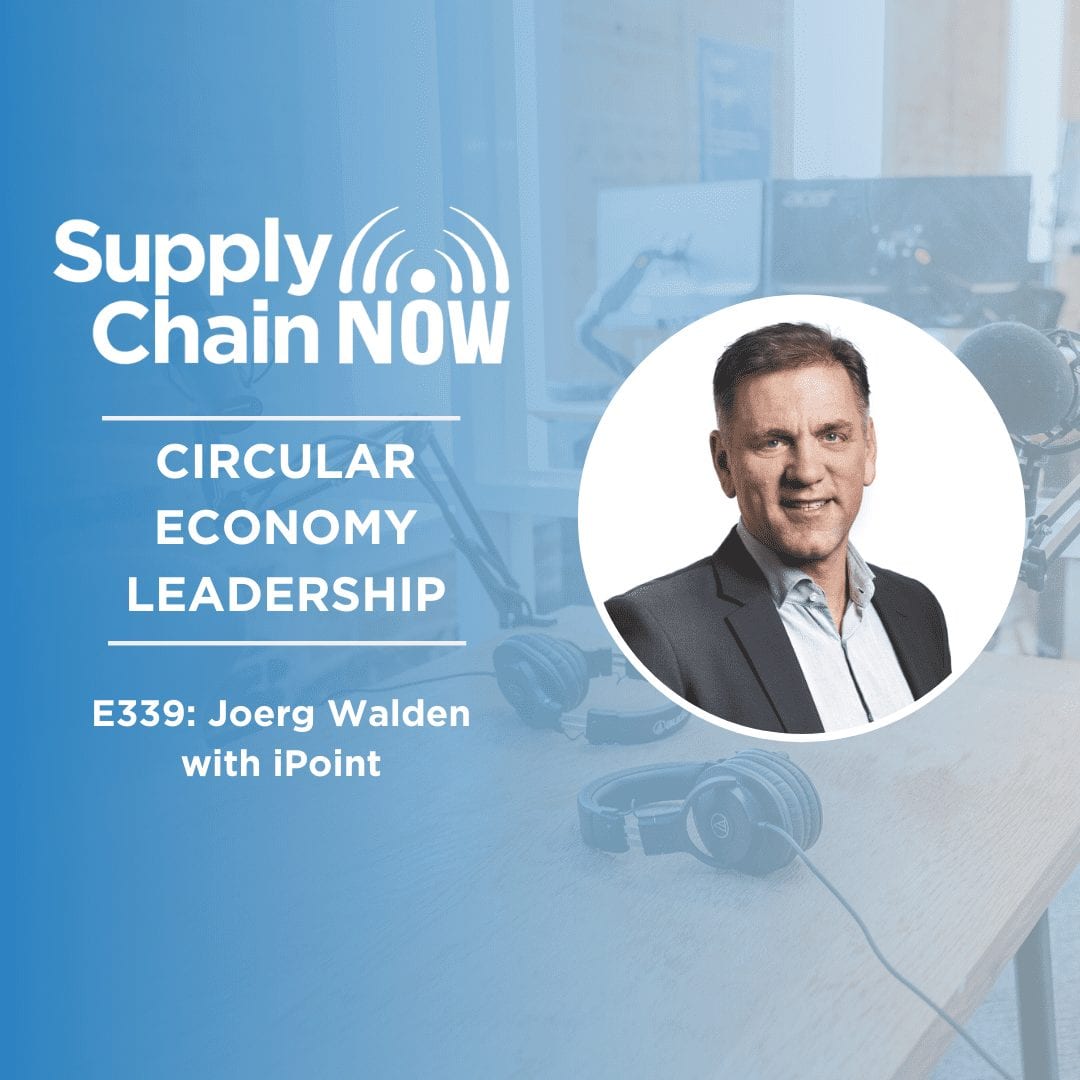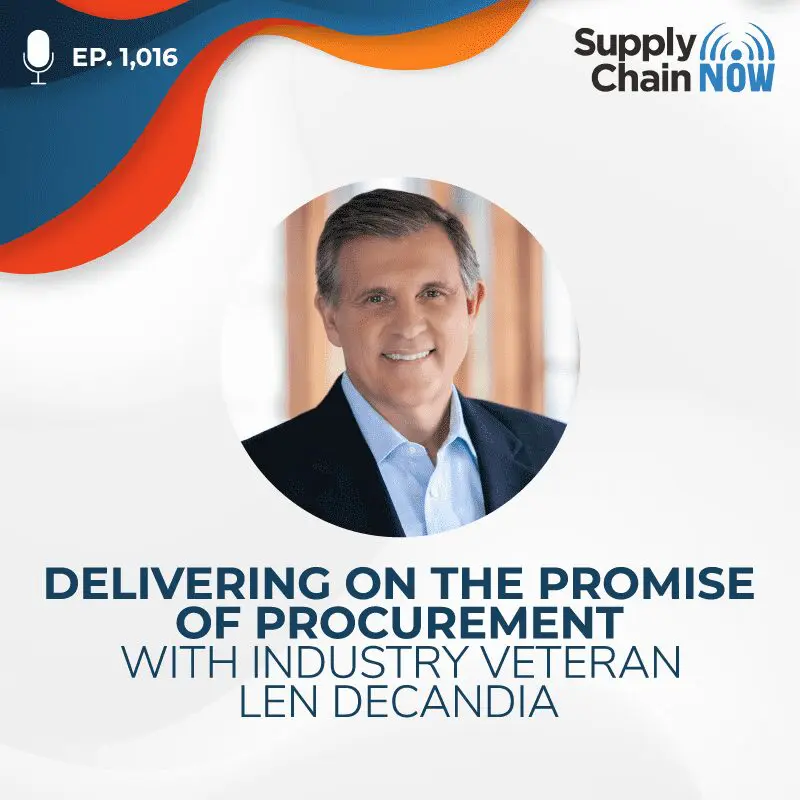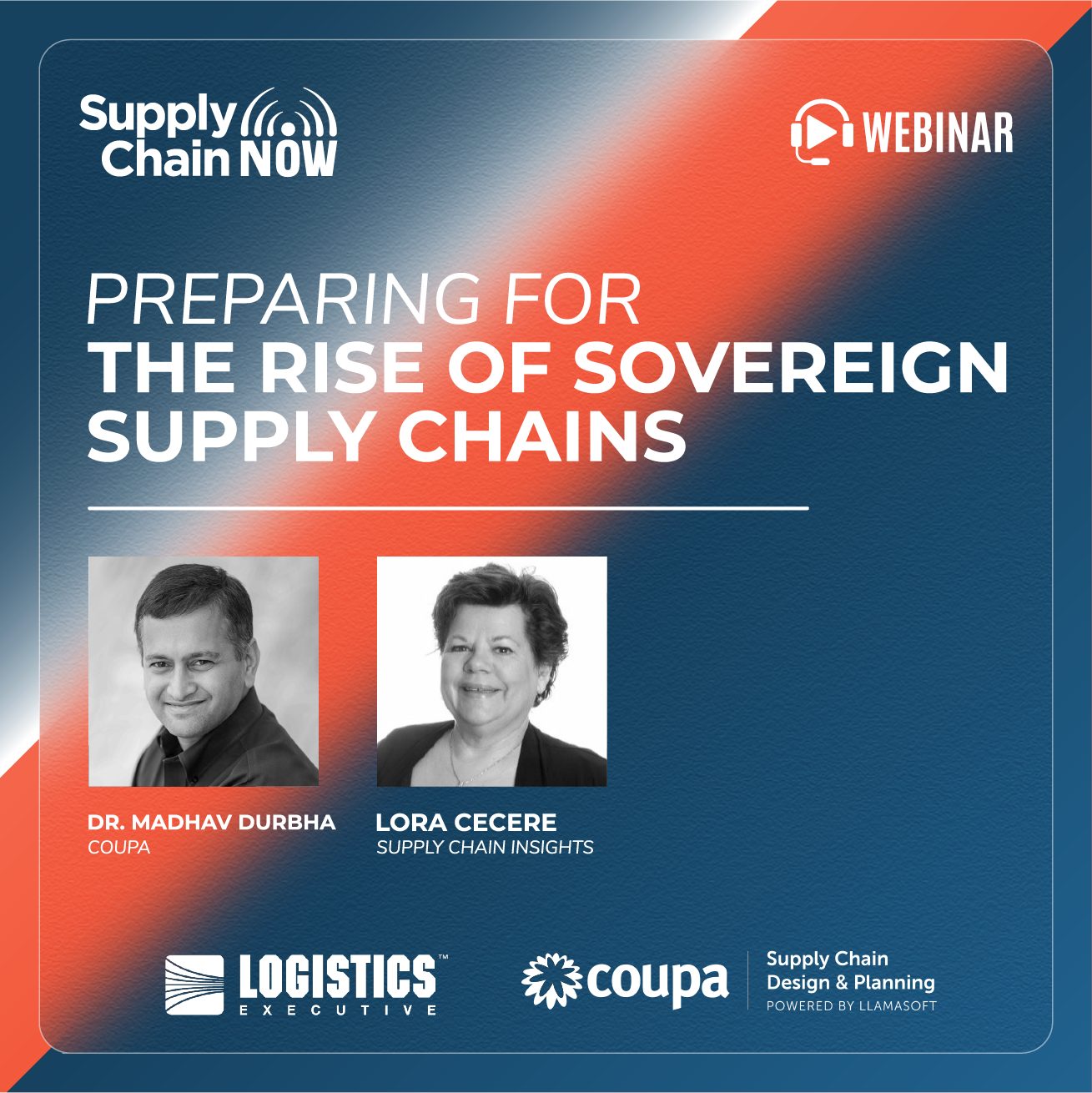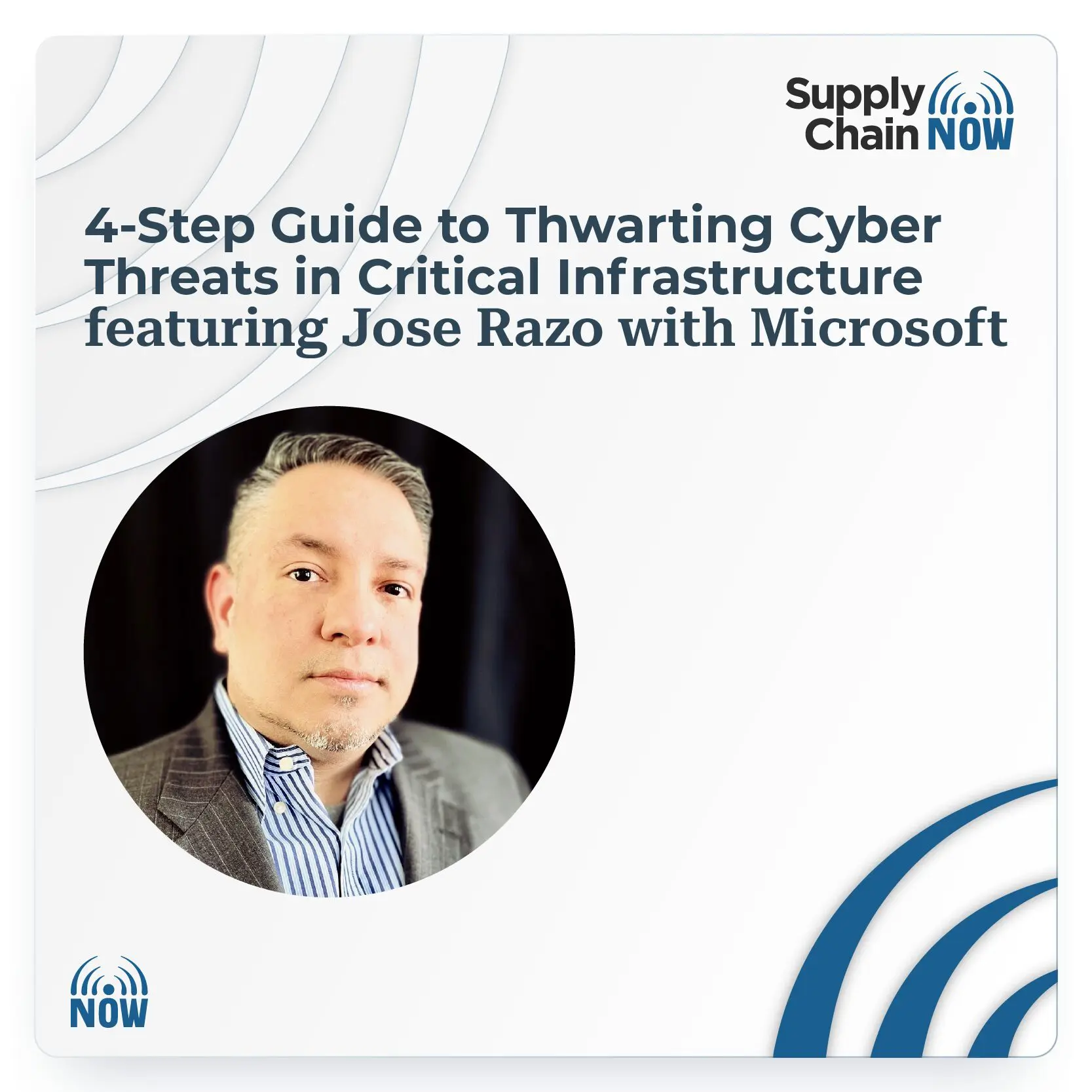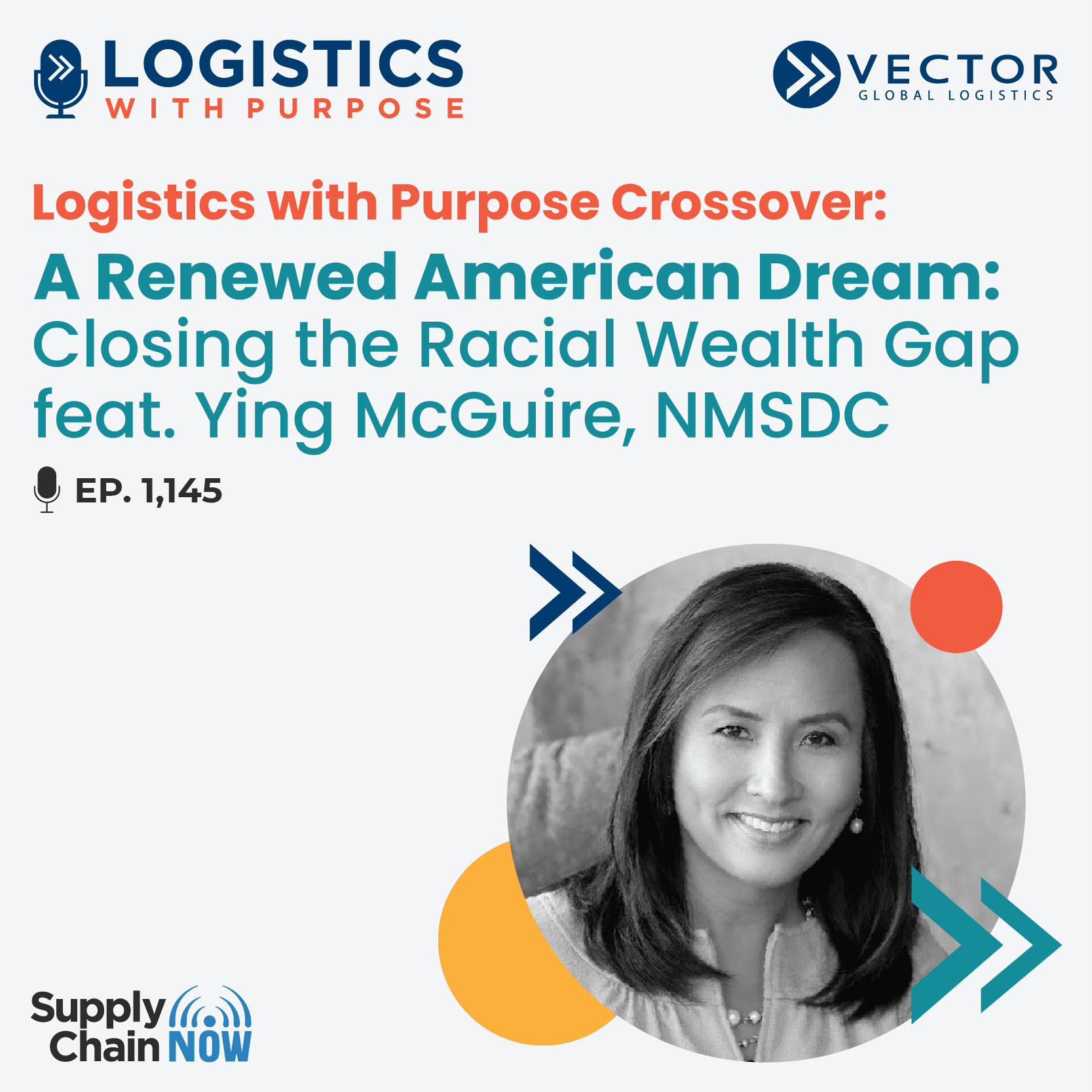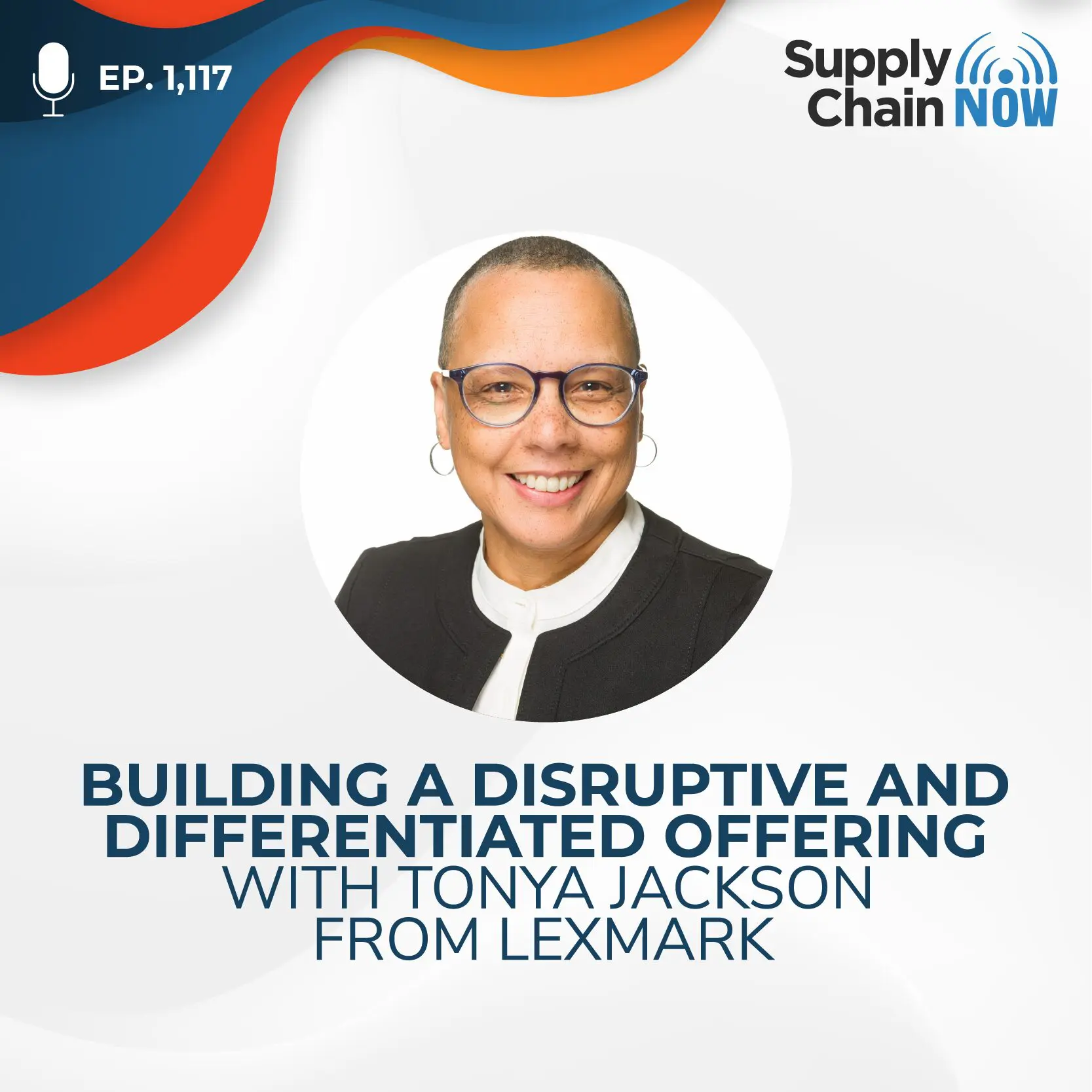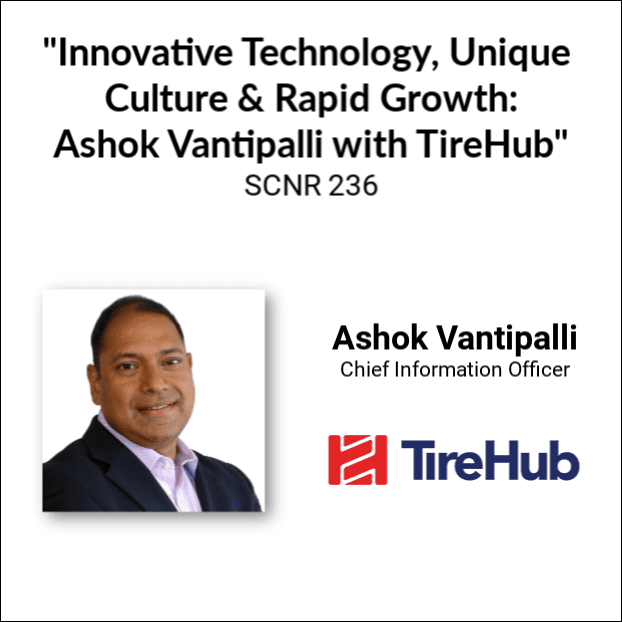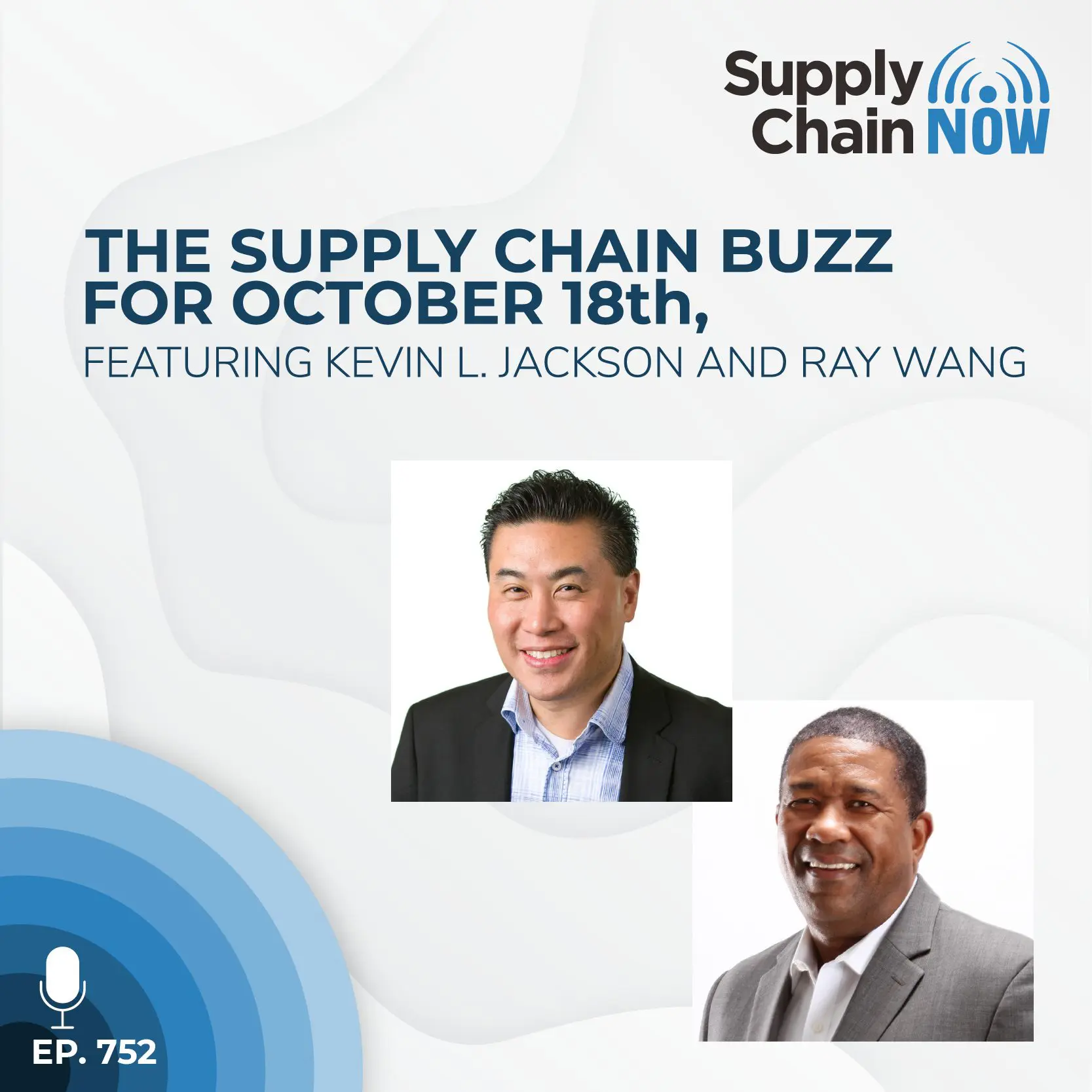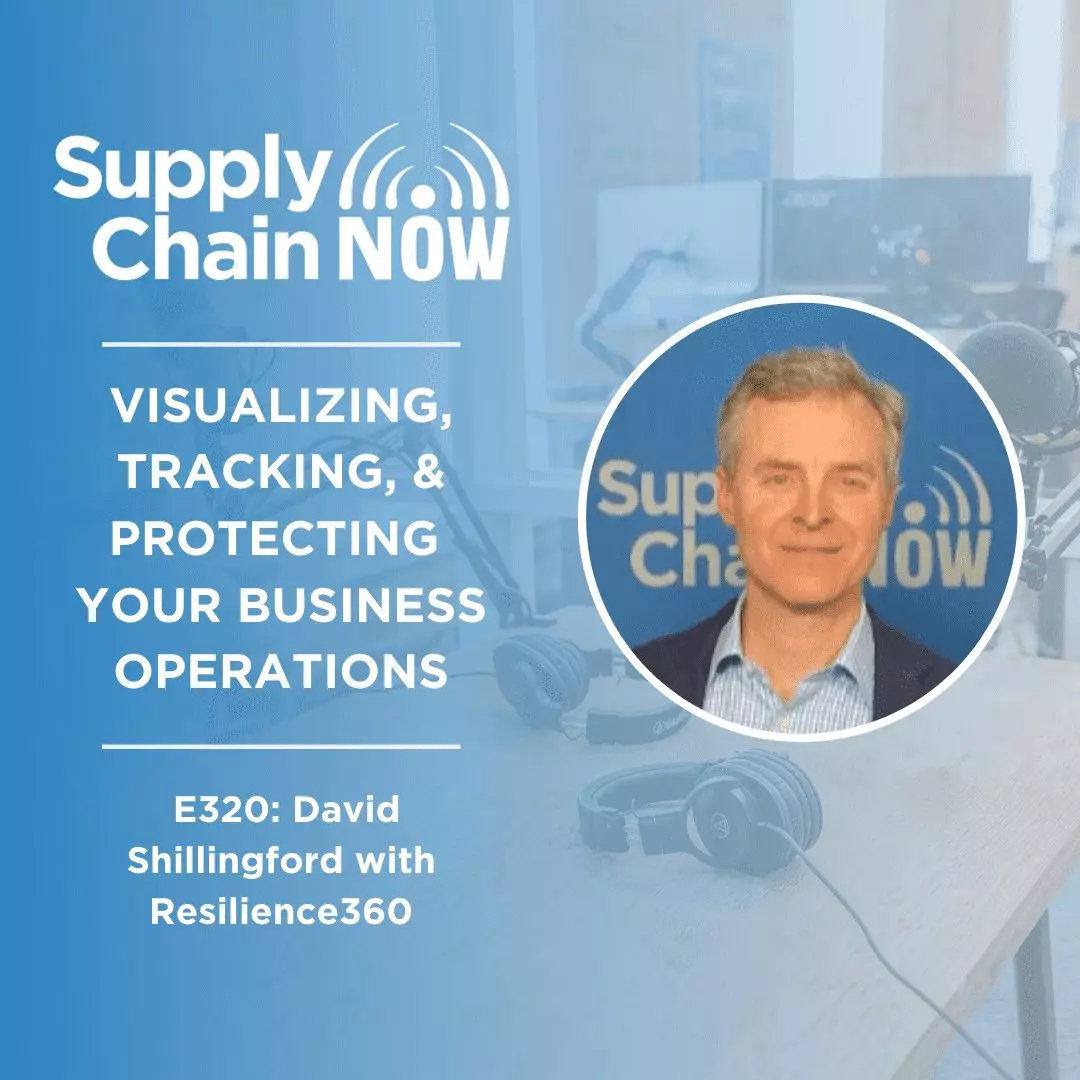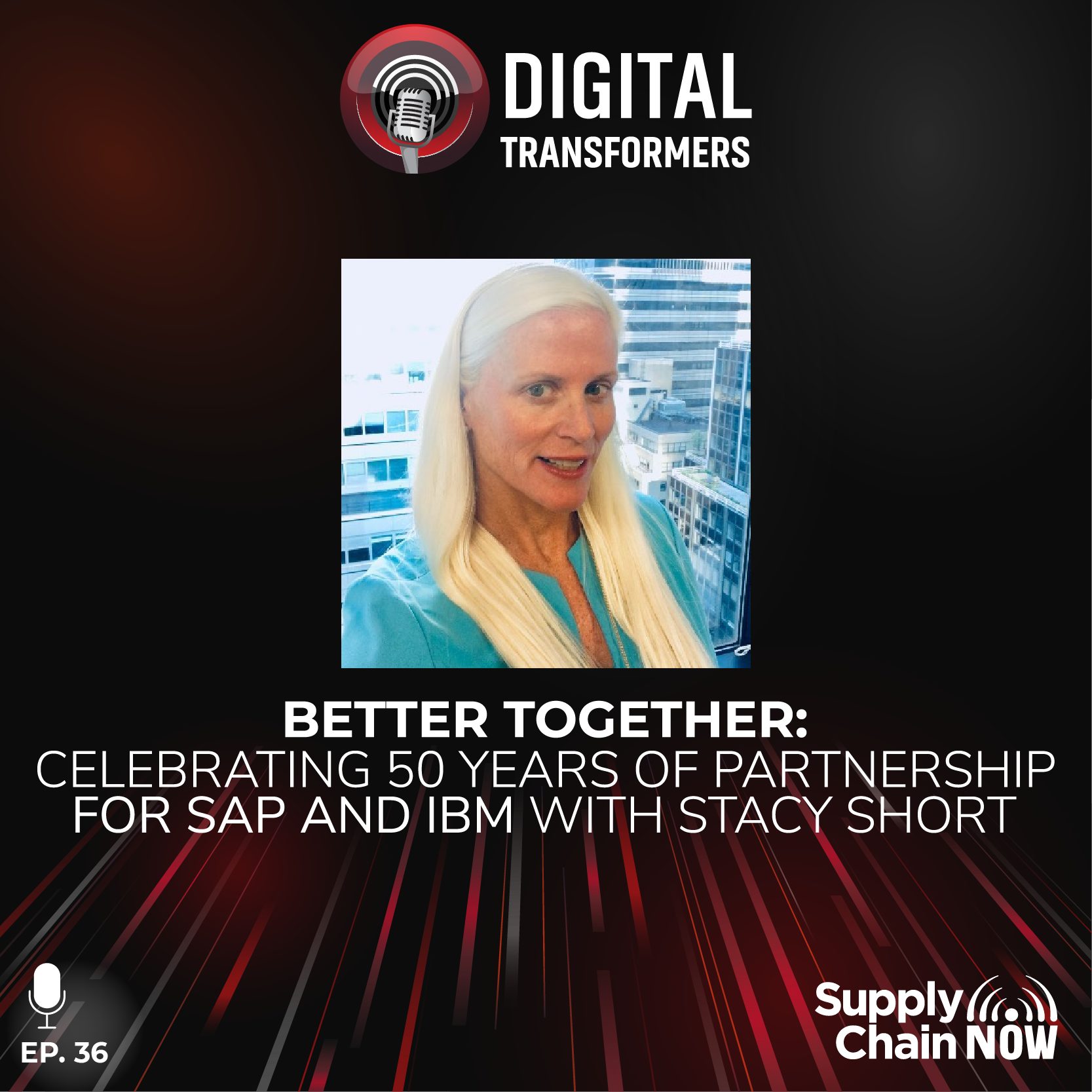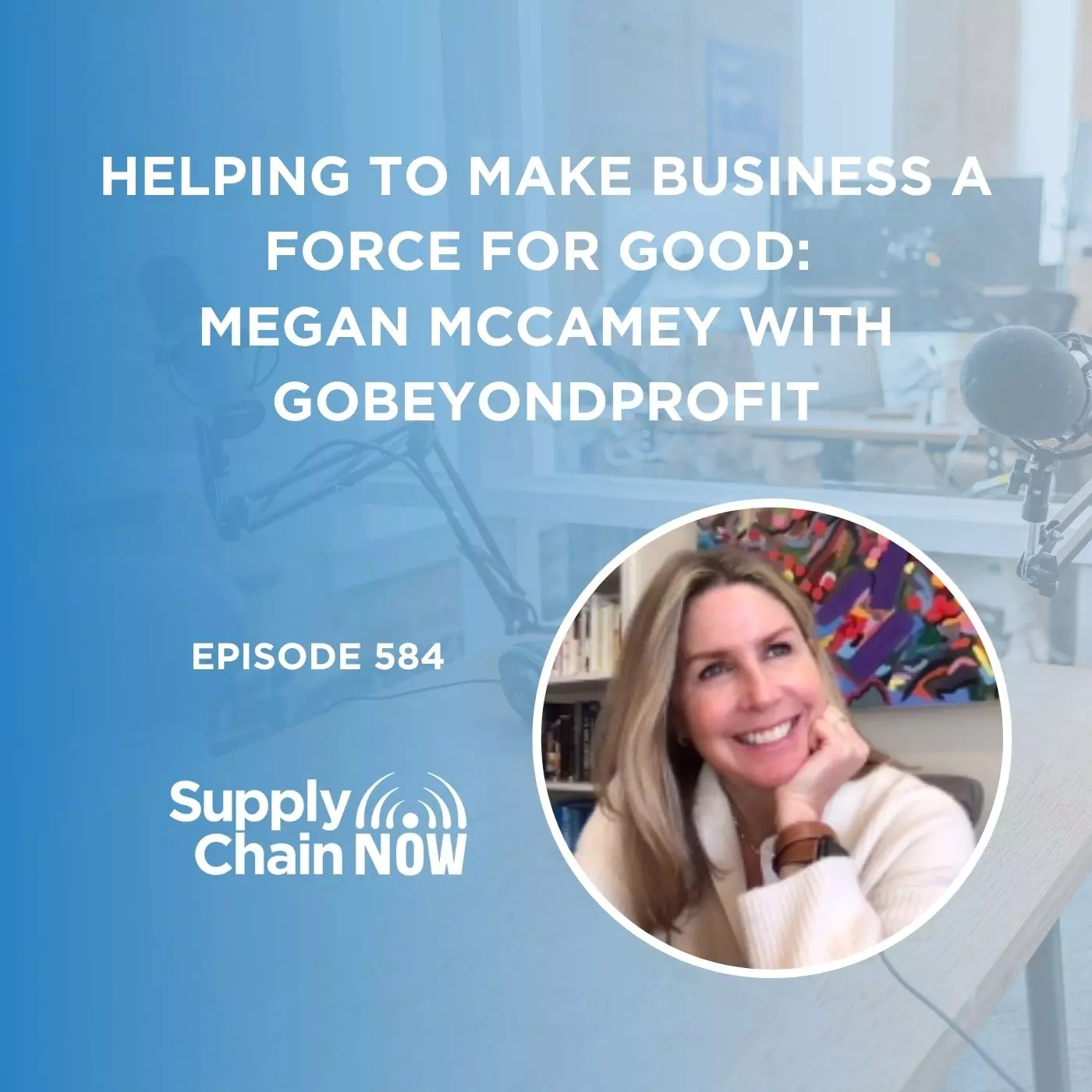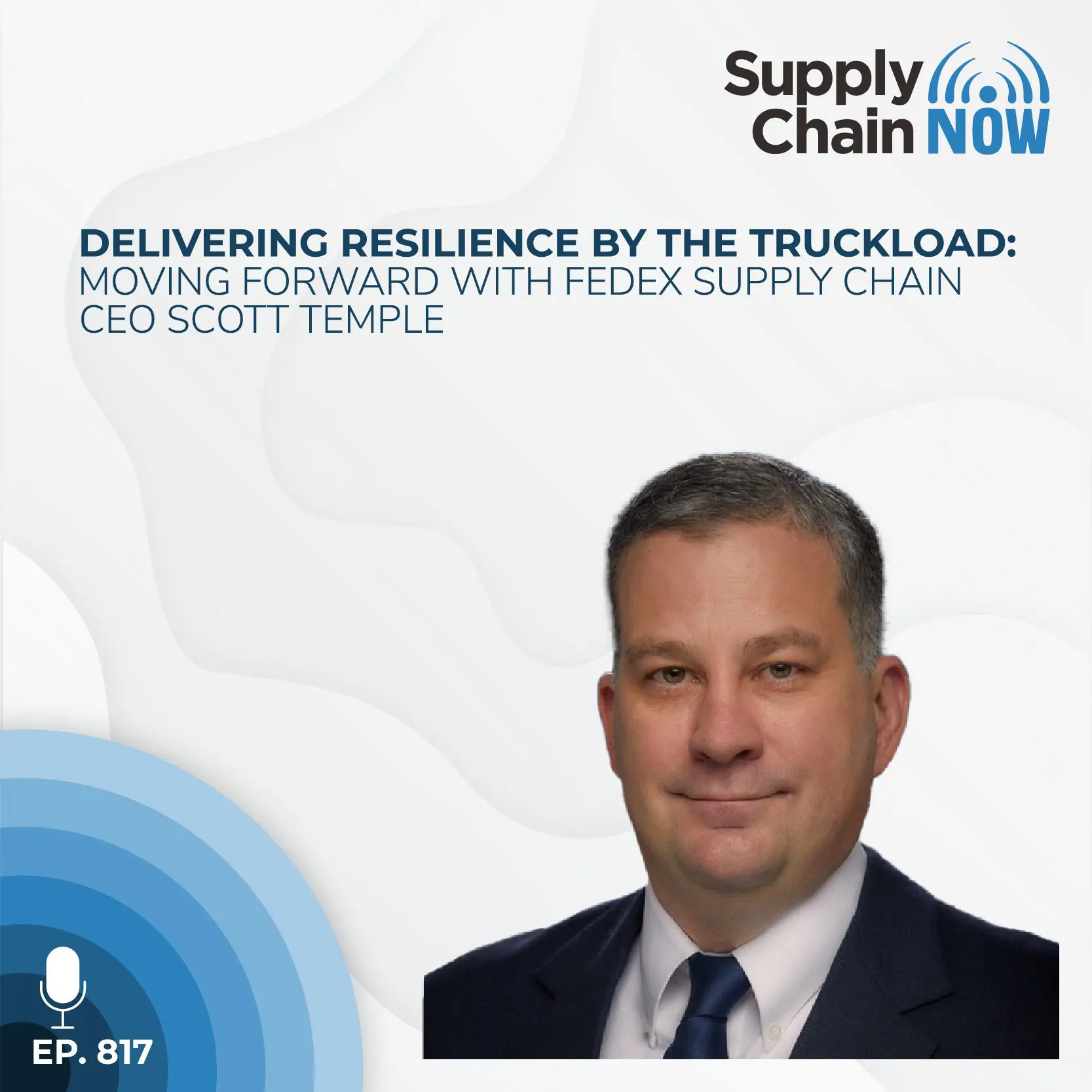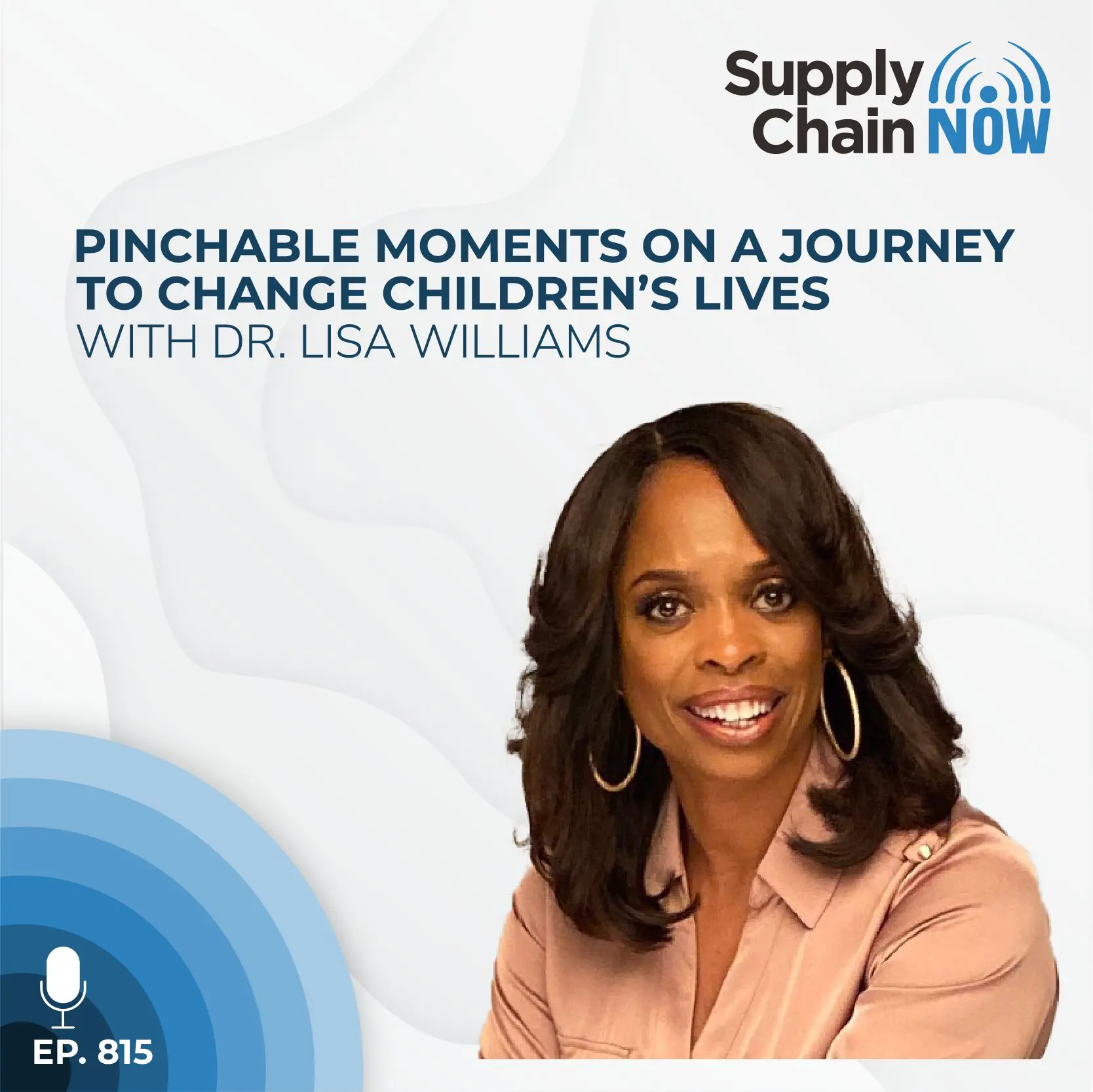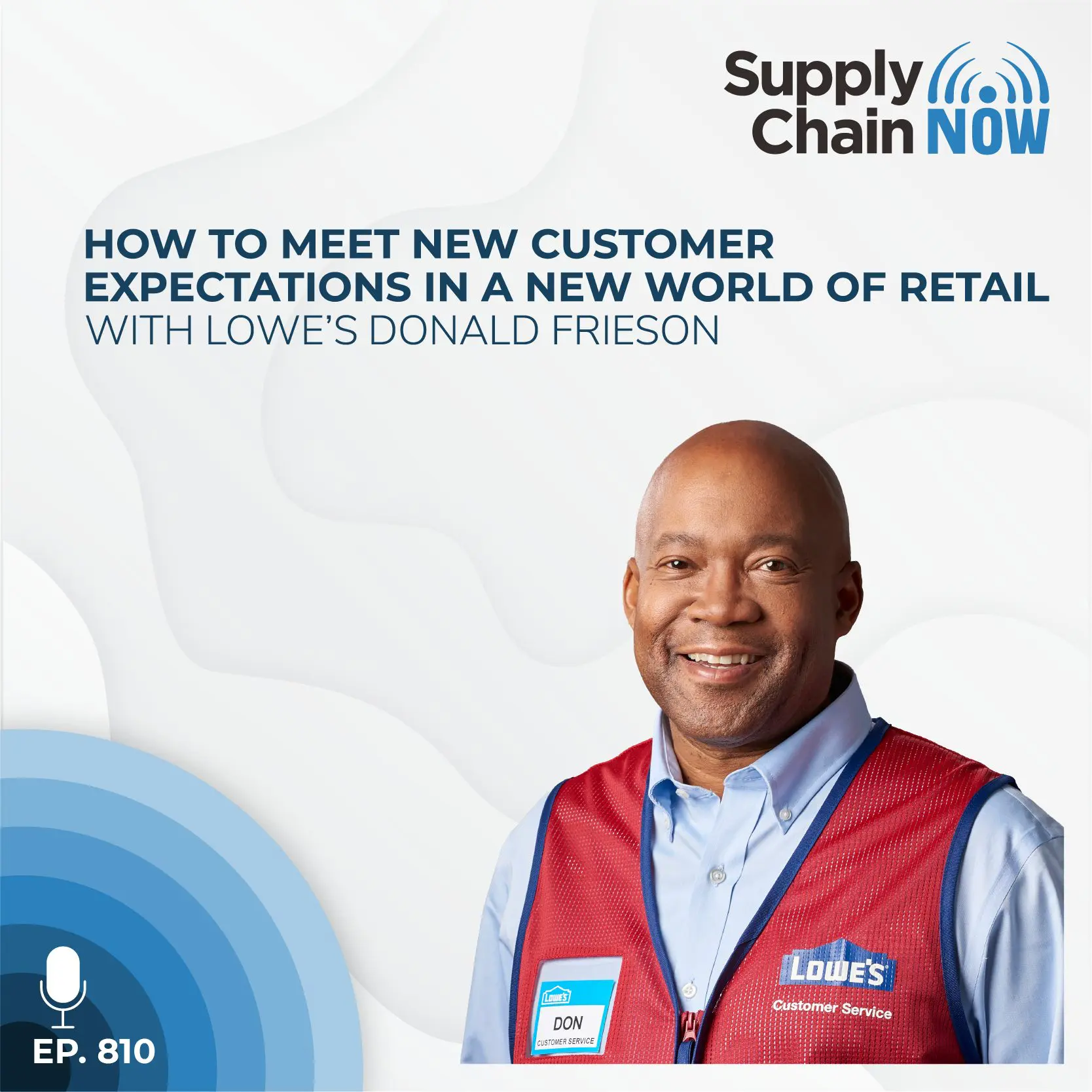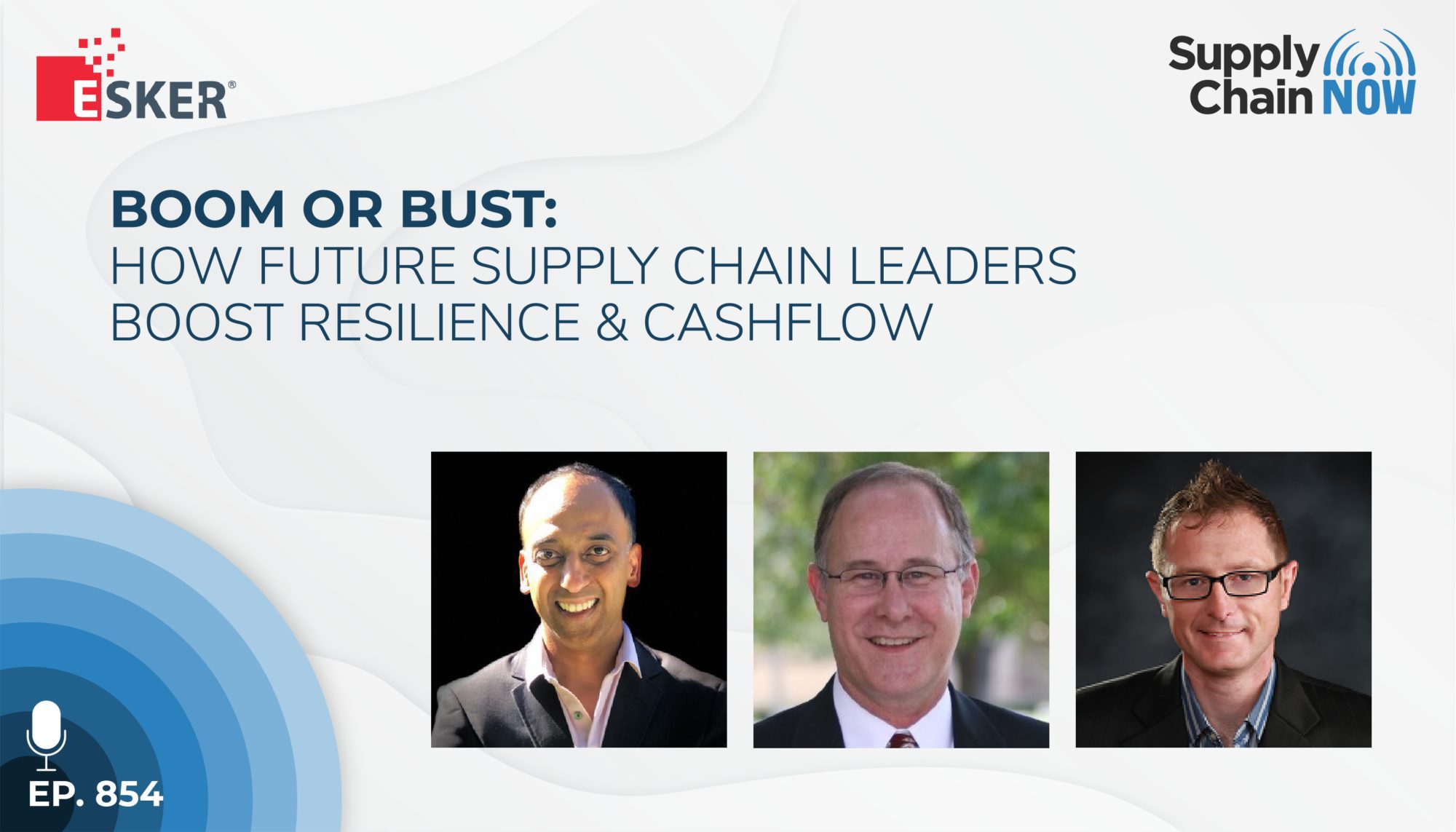
I see that a lot of folks are really paying attention to their working capital. What money have we got? Can we chase that up? Can we get it in quicker? Who do we need to pay? We don't want to lose our place in line.
-Dan Reeve, Director of Sales, Esker
Episode Summary
Under ‘normal’ circumstances, optimizing back-office business activities such as paying bills, processing orders, and collecting cash isn’t at the top of the average organization’s priority list. But as we’re finding out now, no company is immune from the effects of an economic downturn. Many cash-compromised CFOs and COOs have rightfully turned their attention toward minimizing the negative impact of supply chain disruptions on working capital.
With economic volatility expected to continue or get worse, the reality for today’s companies is clear. This is either the moment to seize or sustain competitive advantage – not doing so risks damaging the financial health of the organization.
In this livestream-based episode, hosts Scott Luton and Greg White were joined by Dan Reeve, Vikas Shah, and Dr. Morgen Swink to discuss how business leaders are combatting rising prices and supply chain pressures to boost cash flow and ensure business resilience, no matter what comes next.
- Why companies need to be aware of the risk factors associated with all of their suppliers – and their large customers as well
- What kind of a cash position most companies are in currently, and how they are planning to manage their working capital going forward given the current uncertainty in most markets
- How a company’s supplier payment strategy and platform is critical to building and maintaining strategic supplier relationships
Episode Transcript
Intro/Outro (00:00:03):
Welcome to supply chain. Now the voice of global supply chain supply chain now focuses on the best in the business for our worldwide audience, the people, the technologies, the best practices, and today’s critical issues. The challenges and entities Stay tuned to hear from those making global business happen right here on supply chain now.
Scott Luton (00:00:32):
Hey, good morning. Good afternoon. Good evening. Been wherever you are. Scott Luton and Greg White here with you on supply chain. Now, welcome to today’s live stream Gregory. How we doing?
Greg White (00:00:41):
We’re doing well, Scott, how are we? How are we doing? How are they?
Scott Luton (00:00:47):
I think we’re, we’re, it’s been a heck of a week, uh, heck of a week. Uh, it’s a challenging set of circumstances right now for, from a variety of levels, but we’ve had a lot of very, um, informative conversations and we’re gonna have a lot, lot more of that over the next, huh?
Greg White (00:01:03):
No doubt. Uh, you know, it’s always good to figure out since we’re constantly given disruption. It’s always interesting to talk to folks and figure out how they’re handling it.
Scott Luton (00:01:12):
Absolutely.
Greg White (00:01:13):
Uh, didn we determine didn’t we determine in 2020 and 2021, that disruption is the new normal.
Scott Luton (00:01:20):
We certainly absolutely did. I think we, we, uh, banned certain words because it was so much of the new normal, but uh, but today, Greg, I think
Greg White (00:01:28):
The normal was one of ’em we either did or should have banned. Isn’t it? Sorry about that’s.
Scott Luton (00:01:34):
Well, speaking of today’s show though, Greg. See what I there, speaking of today’s show, we’re gonna be talking about creatively finding new ways of improv and enhancing cashflow while also implementing increased levels of what we like to call anti fragility into your organization and you know, Greg, the other word for that, right?
Greg White (00:01:53):
Yeah. That’s the word we’re not supposed to say resiliency or that’s been said many times at the very least, right?
Scott Luton (00:01:59):
That is right. But to get us through it, we’ve got an expert, excellent hall of what I’ll call a hall of fame panel assembled with leaders from Esgar LQ and Texas Christian university TCU. So stay tuned for what promises to be an informative and intriguing conversation. Greg, before we bring on that panel, why don’t we say hello to a few folks? How’s that sound?
Greg White (00:02:19):
That sounds good. Scott. Let’s see. What do we have out there?
Scott Luton (00:02:24):
We have of course, Dr. Rhonda of course AZA Zimerman yeah. Making it happen now last time you’re with me, Greg and, and Rhonda was here. You mentioned you could just picture her on, on a mountaintop there in Arizona tuning in to supply chain conversations, right?
Greg White (00:02:39):
Yep. And look at that. Look at that profile pick. Maybe that’s why. Right?
Scott Luton (00:02:45):
Gorgeous, gorgeous. Uh, so Dr. Rhonda, thank you for joining us, Jonathan. Great to have you here and good morning. You as well via LinkedIn, wherever you are, let us know where you’re tuned in from of course we know Dr. Rhonda is a, uh, regular, uh, dear friend of the show and we know she’s in the, uh, the Phoenix area, uh, does a lot of great stuff from a wellness standpoint. But Jonathan, tell us where you’re tuned in from, uh, Steven Bush. What’s for lunch, Greg really quick. What was for lunch
Greg White (00:03:12):
Logistics at Heidelberg? Uh, that’s a good question, cuz I haven’t decided, uh, what what’s for, for lunch yet. I really just had may have had brunch. I’m not thinking about lunch yet. Believe it or not, Scott, I’m not thinking about food right now.
Scott Luton (00:03:28):
You know, we went around horn. We went, went around the horn pre show with our, our panel here. Uh, one hails from, uh, Fort worth one’s in the Denver area and one in San Francisco and they, that conversation talking about local cuisine made us really hungry. So Steven, we’re not sure yet, but uh, let us know where you’re tuned in from and we’ll make sure we’ll, we’ll all be hungry together over the next hour, Michael O tuned in from Austin. We were talking about Austin, Michael. Great to see you via LinkedIn. Thanks for joining us.
Greg White (00:03:59):
Let some from the DFW metroplex. So really? Yeah. We’re gonna be covering Texas. Yeah. That’s where unnamed, TCU guest is gonna be.
Scott Luton (00:04:09):
That is right. That is right. Steven. We may have a little technical snag. I know, I know our, our livestream platform stream’s
Greg White (00:04:17):
On LinkedIn. They love to be very, very efficient with bandwidth.
Scott Luton (00:04:20):
Right, right. So
Greg White (00:04:22):
Steven, that’s a nice way to say it. Wasn’t it.
Scott Luton (00:04:24):
It was a very nice, I, I applaud your diplomacy here today. Goodness know we need a lot more of that across the world here lately, Steven. Uh, we’ll see if that gets, gets fixed. And of course we’ll be releasing the replay in just a week or so. Hey bill sta uh, St. Kevi is tuned in from Savannah, another great podcast team. He says, Greg
Greg White (00:04:45):
Live
Scott Luton (00:04:46):
Live right here. Jonathan, uh, answered the call, uh, Lafayette, Louisiana. That’s
Greg White (00:04:53):
Right. Yeah, yeah, though. It’s Lafayette, isn’t it. Lafayette and round Atlanta. It’s Lafayette in Louisiana,
Scott Luton (00:05:00):
You know, I’m gonna trust you. Uh, but I saw a story on a town in Mississippi. I think it’s spelled the same way, but they call it LA feet, LA feet. How about that? Memory is tuned in memory. Hey, great to see you back. One of our favorites around here, we look forward to all the t-shirt ISS, that intro.
Greg White (00:05:18):
She likes our intro. Yeah.
Scott Luton (00:05:20):
That intro memory says before the session starts is out of, out of Hollywood. Good. How about that? I love it. Uh, Josh goody is tuned back in, of course he is in oddly sunny, Seattle.
Greg White (00:05:32):
That’s better than the last report, Josh.
Scott Luton (00:05:34):
It sure is. It was,
Greg White (00:05:36):
It was rainy again, I think, or something like for that effect.
Scott Luton (00:05:40):
Uh, yeah. Josh. Hey, great to have you back. Give us, uh, uh, the, uh, more quantified weather report when you get a second. Uh, Hey dear friend, Mark Preston. Uh, he’s on the board with the association of manufacturing excellence, uh, long time friend mark. Great to see ya tuned in from Peachtree city here in Georgia. Bill says he is tuning in from Savannah technical college with 25 students from the military. Hey bill, love you. Big shout out to all of your class and love what you do. How cool is that Greg?
Greg White (00:06:09):
Yeah, that’s cool. Thank them for their service.
Scott Luton (00:06:12):
Absolutely. J if I think I’ve got that right. If I didn’t let us JY is tuned in from Mumbai, uh, via LinkedIn gene pledger of course, north from north Alabama’s back with us, Jean. Great to see ya. Steven is tuned in from Kennesaw right here from Jimmy Johns, man, Steven,
Greg White (00:06:30):
Jimmy
Scott Luton (00:06:30):
Jones killing me, man. That’s a
Greg White (00:06:31):
Very precise location.
Scott Luton (00:06:34):
Love that. It’s
Greg White (00:06:35):
B Y
Scott Luton (00:06:36):
Right. NAFO is tuned in from South Africa and she looks like she’s involved in Mariton operations across the supply chain management world. Wonderful. We look forward for, uh, to hearing your perspective. My is tuned in Tim Ingram is back with UST from Nigeria is tuned in welcome everybody. Great of everyone. We look forward to your perspective as work through the conversation here today, as Tim says, Greg, let’s Tim it up. So on that note, on that note, uh, Greg, are you ready for me to introduce and bring in our esteem panel? You ready to
Greg White (00:07:12):
Go? I am. Let’s go.
Scott Luton (00:07:14):
Well, let’s do it. So we got a, uh, a three person panel here today. Welcome in Vaca Shaw, chief revenue officer with LQ. We have Dr. Morgan SW, who is Theis and James O. West chaired professor of supply chain management at the needly school of business at prestigious, Texas Christian university. And then we’ve got our dear friend, of course, uh, the gentleman that moves at the speed of a thousand zes Dan Reeve, who is head of sales with Esther. Let’s welcome it all in. All right. Good afternoon. VICA Morgan. Dan, how are we doing today? Well, good, great, fantastic. Great to have you back. Um, Greg, you remember all of these, you know, we’re very fortunate. All of these, these panelists are repeat guests. Dan always knocks out the poll VAAs was with us. I think just a couple months back on livestream. Hollywood was calling him, uh, after the job he did here. And then of course, uh, Morgan joined us for a webinar a few months back and I think, uh, we had to go through his agent to get him rebooked. So it’s great to have all three of y’all here today. And Greg, you asked, so I know we were, we’re gonna about lunch here in just a second, but Steven says B Y is a
Greg White (00:08:24):
BBL D. Got it.
Scott Luton (00:08:26):
Okay. Got it. All right. That sounds like a great
Greg White (00:08:28):
Lunch.
Scott Luton (00:08:29):
It
Greg White (00:08:29):
Does now. I am hungry.
Scott Luton (00:08:32):
Well, speaking of Greg, speaking of, I think that’s where we’re gonna start our conversation today, right?
Greg White (00:08:36):
Yeah. Well let’s yeah. Let’s figure out what everyone likes. We act to, we got to warm this up a little before we got on the air, but so today is national or is it today or tomorrow? National pack your lunch day. So what I’d do is let’s start with some really serious and important questions. What do you, or have you in your history packed as your lunch as a favorite? So Dan, with the speed of a thousand Gazelle’s, could you share with us, you can tell Scott and I have really locked into that when you said that, right.
Scott Luton (00:09:10):
I think
Dan Reeve (00:09:11):
Before I shipped off the boarding school at age of 13 in England, and I think, you know, and when I was walking to school and having lunch as a, as a kid, I think it was a wagon whale. It was, it was a chocolate in sort of round wheel, uh, chocolate and marshmallow. That was, if I could get one of them, I was happy nowadays with two young girls, uh, five and eight, when they go to school, you know, I kind like it in the evening, but the packed lunch comes over. There’s these bits, they why start looking, I’ll have some, I’ll have some leftovers, you know, I’m tasty,
Scott Luton (00:09:40):
Love every, every should.
Greg White (00:09:43):
I think that’s, that’s beautiful. You know what I think a wagon wheel reminds me of Scott,
Scott Luton (00:09:48):
Uh, a moon pie.
Greg White (00:09:50):
Yep. Yeah. It’s possibly the English version of a moon pie. Have you ever had a moon pie in?
Dan Reeve (00:09:54):
I have. Yeah. Kind of in that direction. Yeah.
Scott Luton (00:09:58):
Yeah. Yeah.
Greg White (00:10:00):
What, tell us, what’s your favorite packed lunch?
Vikas Shah (00:10:03):
Well, um, my mom packed lunch for me all the time. And, uh, my favorite part was essentially just white bread with jelly and she wouldn’t tell me what jelly she’s gonna use. She, she had all these different flavors and she would surprise me. So some days I would have a fantastic time and some, I would go just completely starving.
Greg White (00:10:22):
I was, was gonna ask you, did she ever surprise you with a jelly? You didn’t like what? So obviously she did. So what, and you don’t come
Vikas Shah (00:10:29):
Well, it would be all kinds of flavors. Um, strawberries were my favorite strawberries, raspberries, blueberries, but, uh, you know, once in a while she would, she would throw in a eclectic, exotic flavor in there. And, uh, it would just, it, it would just
Greg White (00:10:44):
Flop. Huh?
Vikas Shah (00:10:45):
It was just completely flop. But, uh, yeah,
Greg White (00:10:48):
But that was the part it’s funny because when I was a kid, I never wanted peach jelly, but now peach preserves, same, you know, similar. I really, really like it, but there was a time when I just would not eat each so moved to the south and Scott made me start eating.
Scott Luton (00:11:06):
Very true. Very true. Yeah.
Greg White (00:11:08):
So Morgan, tell us about what, uh, what is it that you, uh, pack, you might pack your lunch still because technically you’re still in school.
Dr. Morgan Swink (00:11:18):
I still am. I can’t get outta school. I don’t know why, but, uh, no, you know, my mom wanted to bury my lunch, but I would not allow it. I, I had to have the same thing every single day from age six to at least 11. Uh, I had a baloney sandwich every single day and I loved it. I became so full of baloney, I guess. That’s why I’m a professor now.
Scott Luton (00:11:41):
Oh, nice. Yeah.
Dr. Morgan Swink (00:11:43):
Nice
Scott Luton (00:11:44):
Man. You got fit right in,
Dr. Morgan Swink (00:11:46):
You know, I hate baloney now, but I loved it back then.
Greg White (00:11:49):
Gosh, I can’t imagine requesting baloney. I
Dr. Morgan Swink (00:11:53):
Know it’s crazy.
Greg White (00:11:54):
You, you know what, you did your family, a tremendous service by eating that and probably saving bond on your wishes. Yeah,
Dr. Morgan Swink (00:12:01):
Yeah. Probably took years off my life. So with,
Greg White (00:12:05):
With Manny’s, is that, uh,
Dr. Morgan Swink (00:12:07):
No, actually is it just bread, baloney and mustard and I, I have a very precise, nice way of eating it, squish it all down and then fold it all up. And then, and who knows what? That psychologically? I don’t know what that means, but, uh, but yeah, it was, it was very rigid process that I could not vary.
Greg White (00:12:26):
Wow.
Scott Luton (00:12:26):
Process driven. So one quick follow-up question. Uh, I’ve gotta ask you, because one of my father-in-law’s favorite things in the world is a, a fried baloney sandwich at, uh, Roberts Western wear.
Greg White (00:12:37):
Yep. In Nashville.
Scott Luton (00:12:38):
Yes. So fried baloney, uh, Morgan is that
Dr. Morgan Swink (00:12:42):
Well, my mom would, uh, fry a skillet and then we eat it with BR with eggs, for breakfast, but I’ve never had a fried baloney sandwich now.
Scott Luton (00:12:49):
Okay. We’ll fix that.
Greg White (00:12:51):
We’re gonna fix that. It’s not dissimilar to the baloney you’ve had, but somehow Morgan, it tastes better fried and Roberts is the best in the world.
Dr. Morgan Swink (00:13:01):
I’ll check it out next time. It’s in Nashville. You said?
Greg White (00:13:03):
Yeah. Nashville. Yes.
Scott Luton (00:13:05):
All right. So I’d love to, uh, especially on the pre show, uh, Greg, as we mentioned earlier, we went, got round to horn with Dan and Morgan and VICA and talked about, uh, where they live and some of the cuisines and restaurants. So we’ll have to have just so many stories there. We’ll have to have y’all back for a full hour, maybe a food discussion, but there’s so much going on right now. So I wanna shift gears to yeah. The wide world of global business and uh, global supply chain in particular, we wanna start, uh, Greg and I and the team and, and yes, mark. See if I can share his quick comment. No, Amanda is not eating in front of me with a cold beer. Uh, we saved that for the weekends most of the time. So great question. But uh, leaving the food discussion behind, we wanna talk about, uh, level setting and what we’re seeing out across industry. So especially related to, uh, and I’m gonna start with Dan here, especially related to these increasing prices, right? So many, uh, almost across the board and of course, supply chain constraints, old and new. So let’s start with what some of the things you’re seeing out in the market. Dan, let’s start with you.
Dan Reeve (00:14:05):
Sure. I think, uh, and especially in the last two weeks, of course, risk was something a lot of companies were focusing on. You talked about in, in pre share notes, the anti fragility and PWC was, was saying, Hey, organizations need to shift to have cash available and, and move from, you know, just in time to just in case. Well, our just in case turned up out in Ukraine, didn’t it? I think the reality is what we’re seeing as companies are saying, let us know about risk, our suppliers that we work with, are they now risky than we didn’t know that before are customers that we work with? Are they now risky? Cuz often you, you bring on customers and suppliers and you know, you check them out once a year or well now I think a lot of, uh, finance leaders are saying, we need to know need, we need to know about this sooner proactively.
Dan Reeve (00:14:46):
The other thing I think that’s going on specifically right now is yes, many, many finance leaders will turn to ESCO as a way of, you know, paying suppliers quicker, faster, enabling early payment discounts, supply chain financing, that’s something. And I team up with and also they’ll turn to ESCO as a way of, uh, invoicing customers get paid quicker, capture capture, and apply that cash and improve working capital for final. I see that a lot of folks are really paying attention in, in terms of their working capital. What money have we got that we do? Can we chase that up? Can we get it in quicker? Who do we need to pay? We don’t wanna lose our place. I think in line, I think Morgan will probably talk about that, but there’s something my final point. There’s something going on. That’s really been exacerbated in the last week or two that is disputes.
Dan Reeve (00:15:30):
I, so the supplier might not be able to, to supply you the goods at a hundred thousand dollars anymore. Now it might be costing them $120,000 when they send in the invoice, the invoice may have gone up and it bounces when you do a three-way match, it doesn’t match with what you were expecting. So now I think there’s even more effort because suddenly, Hey, the supplier’s might not just be able to absorb those, those increases due to raw material costs, gas costs, et cetera, et cetera. So there’s more even more work to be done in finance where guess what your receivables, your, your, your, your payables, your collections team are already stressed, retiring early, or leaving and juggling too many applications. So there’s even more work to be done. And, and there’s, you know, stress between, uh, customers and suppliers. Yep.
Scott Luton (00:16:14):
So before I move on to Morgan, Greg, you know, it’s, it’s really important perhaps more than ever before to be a good customer and a good supply chain partner, uh, these days, right.
Greg White (00:16:22):
I thought about that as Dan was talking about it early in the pandemic, right? When everything shut down and everyone was in crisis and everyone kind of needed a leg up, I cannot remember who it was, Scott, but it was a poignant statement. Now it’s too late to make friends. Right. And right now is not the time to make enemies or to, you know, to strain your, your partnerships with your trading partners, for sure.
Scott Luton (00:16:48):
Excellent point, uh, and what we’re going to do, the research team, we’re going to dive in and figure out who had that of brilliance. Yeah. Okay. So I wanna move along to Morgan with TCU, Morgan, what are some of the things as we level set here, some things you’re seeing out in the market.
Dr. Morgan Swink (00:17:01):
Yeah. Yeah. So I’m, I’m looking more at the macro financial statistics and changes over time across different industries. And I’d echo, you know what Dan said, uh, a lot more cash out there. Companies are sitting on two to three times the kind of average level of cash that they had in the last 10 years. So everybody’s beefing up. I, I think because in today’s point, all that uncertainty out there, all the disruption that we’ve gone through and all the uncertainty going forward. So they’re seeing that as their kind of number one hedge, uh, against that future risk. The other thing that’s bumped up, uh, which is kind of going against maybe what Greg just said is a lot of that cash is getting financed through payables. So, uh, over the last 20 years, we’ve seen just a steady increase in that kind of average amount of payables.
Dr. Morgan Swink (00:17:47):
Everybody’s lengthening their terms. Uh, and that’s bumped since 2019, that’s bumped up another 10, 15% on average, not all companies are doing that. And I think this gets to the point that Greg made, you know, there’s a big distinction between those companies that are, that are able to, and see the value of treating their suppliers well and trying to help them through the, through the situation. And then the other companies that are really using them as the source of cash and, and a source of capital, you know, in tough times, um, either because they have to, or because they don’t maybe don’t value the longer term relational, um, you know, benefits to government. Yeah.
Scott Luton (00:18:24):
Well said, and, and I love that last point where you ended because they’re, they don’t tie nearly as much value to the big picture. And oftentimes that can be completely, uh, at odds when it comes to alignment of the relationship, uh, up upstream and downstream supply chain. So Greg really quick your response to, um, Morgan’s take there.
Greg White (00:18:43):
Well, there’s a third category to what Morgan is talking about. And we’ve talked about it some where some of the big shippers retailers, brands, whatever are taking advantage of their vendors and charging them to be paid on time, um, using unique payment schemes where they actually finance the debt that they are owed and intend to pay late to their suppliers. So, uh, not all is, you know, what, what do we wanna say, sunshine and daffodils, right? There are people being opportunistic in this market.
Dr. Morgan Swink (00:19:16):
Yeah. And we can get into this later if you want, but there’s, we’re actually doing some research on this. Now that shows that those ghost companies that do that, um, tend to see a lot more supplier turnover. Right? Lot more churn in their supply base, as well as some of other, uh, transactional costs and things like that come from that,
Scott Luton (00:19:35):
You know, not to be too simplistic about it, but if you don’t do the right thing, you’re gonna pay in some way, shape or form. So it’s good to hear. Morgan will probably dive into that in a, in a minute, but cost I’m coming to you next, but really quick, uh, memory makes a great point and informed customer makes in formed decisions. We need to communicate in drafts, uh, such cost changes to all for, uh, changes,
Greg White (00:20:00):
Allow
Scott Luton (00:20:00):
For changes. Allow. Yeah, thank you. That little, little space there allow for changes. Excellent point. And I love that first part and inform customer makes informed decisions, love that. And Jean says pay early and you both win, which is kind of what, uh, Dan was speaking to earlier. Right. Okay. So Vaca, let’s talk about level setting now. So what are some of the things you’re tracking out there in the, in the current market? Yeah,
Vikas Shah (00:20:21):
It’s an interesting time. We’ve been, we’ve been talking to a lot of procurement and supply chain leaders lately. And the biggest priority for a lot of these professionals is curing supplies. It is an absolute critical priority for most, uh, most stakeholders, you know, all the other messaging around, um, automation, digitization transformation is essentially going over their head. You know, what they’re really concerned about or loose sleepover is securing supplies and, and what I’ve talked about. Uh, and, and, uh, both, uh, both Greg you and, and, and Morgan and Dan have alluded to this is, you know, how do you treat your suppliers as partners? You know, during this time it’s extremely important, you know, give them access to an early pay program. All of these suppliers are looking to keep their businesses afloat and, and do that without asking them for terms. And, and they will remember this forever. You know, they will remember that you stood by them during these tough times, and they will pay you back with terms, you know, once the businesses, you know, calibrate. So, so it’s, it’s really important for professionals to understand that if you can be by your suppliers as partners, and they see that during these times, it’s, it’s gonna be very rewarding in the long term.
Scott Luton (00:21:39):
I love that. Uh, Greg, I wanna come to you for a quick comment next, but one of the things that brings to my mind is it’s a lot easier, or at least it’s easier to take care, recurrent supplier, that’s delivering, then try to go out there and find and onboard a, a new supplier, especially during the pandemic, as we’ve all learned. But Greg, your take on what a Vaca said there.
Greg White (00:21:58):
Yeah. It makes me think there is a distinct difference between getting paid back and payback and depending on how you treat your, your suppliers and your trading part payback could be coming your way after a crisis.
Scott Luton (00:22:11):
I love that Greg. That is. And if
Greg White (00:22:13):
You’ve seen the movie, you don’t want payback.
Scott Luton (00:22:16):
If you know, you know, so Mel Gibson and payback, it’s funny internally, we talk about any kind of collections that movie always comes in my mind. So y’all check it out. Mel Gibson payback probably from the late nineties. I don’t know. Um, okay. So payback is different than getting paid back. I love that Greg let’s shift gears. Let’s talk about what actions that leaders and organizations are taking. And we’re gonna go in reverse order here. So a cost that means we’re gonna stick with you. So what are you seeing leaders do about some of these conditions?
Vikas Shah (00:22:48):
I think paid forward is, is the general team. So, you know, shifting from you don’t want to be in the payback situation. You wanna be in the paid forward situation, you know, with your suppliers. And, you know, that’s a great investment to make, whether it’s a long term strategic supplier relationship, whether it’s a new supplier relationship, uh, especially if it’s a diversity in order or women own business, you know, you want to pay it forward. And leaders are thinking about innovative ways in which they can do that without taking on too much overhead and burden, because we all know that AP departments and procurement departments are completely stretched right now, not just with midsize organizations, but even though with large organizations and they do want to take on additional complexity to process payments, but there are lots of creative solutions out there. There’s an easier way to do that and get it up and running so that suppliers can get along with providing you the critical supplies that you need to secure in your business and just make sure that that relationship is intact because, you know, you just don’t wanna make sure that you have a spot in the line.
Vikas Shah (00:23:53):
You wanna make sure that you are in the line and it’s important that you keep paying it forward across your supply chain to secure that.
Scott Luton (00:23:59):
So the cost, one of the things I heard there, and Greg, maybe you too, is you wanna make it easy if you can eliminate complexity for your suppliers, especially needless complexity, which is non-value added and complete MOA, why not do that? Right? Because
Vikas Shah (00:24:15):
Absolutely. And, and, and when people think about AP systems or procurement systems, you know, immediately the, you know, the red flags go in their mind. So when we jump on these calls, we try and it very simple. Um, you wanna talk about on demand solutions where they can simply either provide cash advances or early payment programs to their suppliers. And it, you know, ideally speaking, you wanna do it for all your suppliers across the entire supply chain, but you know, it might not be feasible just given, given the scope and scale of some of these suppliers, uh, with some of these customers, you can start small, you can start with one supplier, you can start with 10 suppliers, you know, think about who really needs the liquidity. You know, who’s a strategic supplier, which critical supplies do you wanna secure as part of your business? So your production doesn’t go down so on and so forth, and you can approach it in a phase manner and make it really simple for AP procurement departments to implement something like that.
Scott Luton (00:25:06):
So, Greg really quick, we saw on the beginning, if you remember, when we talked about the aviation industry in particular, an example comes in my mind on the front end of the pandemic, where, you know, they have all these component manufacturers that, that in a very extended, uh, global supply chain, they were right away. They were acting to pay their suppliers up front to keep those operations afloat. You remember me? You talking about that, but Greg, your comment before move on to, uh, Morgan,
Greg White (00:25:30):
Semi-conductors think about how the American automaker treated the semi-conductor manufacturers. They said, sure, go ahead and produce those. Semi-conductors we’ll let you know if we’re gonna cut a PO for them. Right. And of course the semi-conductor manufacturer were smart and didn’t without a commitment because times were very turbulent then. But look at speaking, a payback ASCOs was talking about, look at the payback that they got almost an entirely lost year of production because they didn’t do the right thing by their, by their, their suppliers. And now they’re more people are more likely to buy a used car than a new car. Some suppliers had to some, uh, automakers had to skip an entire model year. So the impact, when you talk about big picture, that is a big picture, impact, agree, look, it’s, it’s a pay me now or pay me later kind of thing. If you, if take advantage of your, your vendors, don’t think they don’t figure it out. That’s why you got a 3% price increase. If you have, if you always use your credit card and it costs them 3%, or you always drag them and it, and or you put ’em on a finance plan and, and it costs them money, they, they will get payback.
Scott Luton (00:26:47):
So one other speaking of payback that maybe that’s the theme of our, uh, discussion here today, but, uh, VICA mentioned the movie pay it forward, which is another great one. It’s a great feel, good movie. So that’s a great call
Greg White (00:26:58):
Out. Um, that’s a much better approach to this strategy.
Scott Luton (00:27:02):
Right, right. And much more positive uplifting, uh, movie as well. Okay. Yeah. So Morgan, let’s circle back to you. So what are you seeing leaders and organizations do about some of these, uh, challenges?
Dr. Morgan Swink (00:27:13):
Yeah, so many different things. I think a lot of ’em are finally getting serious about, about risk management. And I, I guess I’ll kind of categorize the risk offices that I’m seeing in two different ways, using a there’s a framework now in, in the academic world, that’s kind of growing in this area of, I know you don’t like the word resilience. We’re not supposed to use that word anti no,
Greg White (00:27:34):
It’s OK. We like it. We just don’t wanna people with it.
Dr. Morgan Swink (00:27:37):
Yeah. It’s basically it’s, it’s buffering or bridging. Right. And it’s not, or it’s it’s and right. Buffering and bridging. So we, we mentioned the CA you know, cash and inventory is hedges against, against, uh, disruptions and demand or supply. I mean, that’s going on, and that’s kinda the old school way of dealing with risk, but the bridging strategies is what we’re seeing a lot more of now, at least by the leaders. And that is, you know, they’re, they’re getting serious about mapping out their supply bases, looking at 2, 3, 4, sometimes four tiers down. If they can, they’re not looking at all the suppliers, you know, Togo’s point we’re trying to identify which ones are critical, which are ones are the bottleneck, which ones are most susceptible to, uh, disruption, whether that be geographically oriented kind of disruption or economically oriented or politically oriented, whatever the, the disruption sources might be.
Dr. Morgan Swink (00:28:26):
And then I think, you know, some of these folks are rethinking some of their sourcing strategies. We’ve kind of followed a paradigm for a long time, especially in certain manufacturing industries that have emphasized, you know, volume leverage with a few key sources, or maybe even single source. There’s an argument to be made now for, for head a risk hedging strategy that at least allows I, if you’re not sourcing directly from multiple suppliers, at least identifying those ones that you could quickly go to, if one of your key suppliers goes down. So, so that kind of thinking agility and all internal, as well as external, uh, investing in training or technology or whatever we can do to be it more, shiftable more scalable in terms of our internal operations. Um, so all that kind of thing. And I think a lot of technology enablement, uh, which was already happening has kind of been accelerated by COVID in those directions. So all of that is in the overall mix of things that could be done on to try to address the situation. Some of ’em are long term. Unfortunately they take a long time to implement.
Scott Luton (00:29:31):
Right. Right. Greg, your quick comment on what Morgan shared there.
Greg White (00:29:35):
Yeah. I, as you know, as we talk about this, I think it’s important to identify that a lot of the bottlenecks, a lot of the fragility that we’re talking about exist in the manufacturing supply chain, who can take a great example from the finished goods, retail and distribution supply chain, because secondary sourcing or, or alternate sourcing or other techniques that have been used in, in finished goods for decades, literally half a century would be incredibly valuable for manufacturers that, and frankly, I never cease to be stunned. Scott, you know, talk about words that people get tired of. I never cease to be stunned by the fact that in that manufacturers are so far behind in this regard and have to old by Morgan and others, right. That, Hey, maybe you ought to consider a secondary source, or maybe you ought to give 70% of the volume to this vendor and 30% to this vendor. So they’re standing by and ready when you need them, because that is common knowledge in finished goods, uh, supply chains,
Scott Luton (00:30:38):
Well that, and invests in your people, goodness gracious. This is 2022. You know, this is not a new concept, you know, invest in your people. And they’re gonna not only help take care of you, but they’re gonna be more apt and more able to do different things so that as you have to be nimble through these times, you’ve got the talent cause you’ve invested in it. So, but Morgan and Greg, good, all good stuff there, uh, FICA, you made a great point and I’m gonna circle back to in just a minute, the things you’re seeing out there, Dan I’m coming to you next, but before I do Cindy Palmer, you’re right. And great to see you. I love what you do for our veteran, uh, industry, uh, via vets, two industry.org to hook you up with bill backup plans are important backup to the backup to the backup plans are important. Excellent point there. Uh, memory says lead times on deliveries will impact invoicing, especially in working on leaner inventory and especially for slow movers. Excellent point. Uh, Michelle’s got a quick, great question. We’ll try to circle back on in just a second, but Dan, I know you’re chopping at a bit. We’ve covered a lot of grounds since we circle back to you, how are leaders in organizations, you know, taking the football in our hands and running here,
Dan Reeve (00:31:43):
You know, I feel you throw me three or four balls and I’ve never been able to juggle. I’m gonna try. OK. So one it’s
Greg White (00:31:50):
OK to set one down and pick one up at a time. Yeah.
Dan Reeve (00:31:54):
It’s a bit like the rubiks cube. I am the kid that used to cheat, you know, I could never get it to work,
Scott Luton (00:31:58):
Move the stickers around the
Dan Reeve (00:32:00):
Stickers and then try get back on what I am seeing is two things. So first is, um, you talk about sort of diversification, adding suppliers and many of the finance and, and payable projects that folks are, um, working with us on are increasingly turning and saying, oh, by the way, we need to be able to add more suppliers, make it faster and easier to check suppliers and get them through the process where, you know, it used to take a couple of months to get now I need them in weeks. If that, you know, I need to be able to be a lot more responsive and dynamic and faster, you know, back to that speed of a thousand Zs. Now people are saying, I, I need to be able to do that. For example, you talked about semiconductor. I, I was noticed that some of the semiconductor companies this week were mentioning no names where there were announcements on their website saying, oh, neon gas.
Dan Reeve (00:32:47):
A lot of the worlds neon gas comes from Russia. Right. Know that, Hey, it’s okay. We’ve got alternative sources. We’ve, we’ve organized for, and we’re gonna, we’re not gonna, there’s not gonna be a big disruption to the semiconductor space. So we’re seeing folks asking for that cause they need that, um, that capability, that flexibility, the other one, you talked about training and tech. What I, what I see going on there is, you know, how we’ve spoken about this, we’ve all heard or about the great resignation Institute of financial management and said, look, folks in payables, they don’t just wanna go and do the job anymore. If folks wanna do work that they feel is truly valuable. Typically, you know, most people are looking to work for more, not less, you know, and therefore, well, how do you keep folks? How do you keep ’em engaged?
Dan Reeve (00:33:29):
How do you make sure that they’re doing more valuable work? So they, for you can justify, you know, increasing the price tag. And in many cases, what we’re seeing is folks saying, okay, I wanna take my folks in finance, be it credit, procurement, payables, receivables. And yeah, I wanna make it easy for them. So they don’t have to manage multiple tools. If I can give them one tool across all those areas, that’s easy. Great. But I want to move them into more of a, um, companies are redefining the roles. How would I make them more business analysts as opposed to clerical type roles. And that I think is, is, is what folks are looking at with technology to sort of help people transition, give them insights, visibility across I, for example, who do I owe money and how much am I gonna pay? And, you know, can I accelerate? Can I get cash flow by accelerating my collection process? Or can I do it by, um, early payment discount, supply chain financing? We see that whole dynamic going on and in the middle, ultimately I think, yeah, people are like, well, okay, I need to do those things. I need smart people cuz I need to improve or I have more working capital.
Scott Luton (00:34:30):
Right. You know,
Dan Reeve (00:34:31):
So right. What a challenging time,
Scott Luton (00:34:34):
Incredibly challenging time. And uh, palladium, I think another resource, uh, involved and impact by what’s going on, uh, the Russian of Asia and Ukraine. Um, okay. Greg, you heard a lot come from Dan there, you co you comment, uh, if you would on that and BICA, I come back to you on an earlier observation you had, but Greg what’d you hear there?
Greg White (00:34:53):
Well, you know, I’m gonna latch on the technology as I usually do. And, and talk about how technology allows technology to do technology thing and humans to do human things. And that’s exactly what Dan is talking about. The more satisfying, the more meaningful, and the more impactful job that humans can do is, is what technology cannot do or at least cannot do today. Right? Technology should be doing technology things whenever the possibility exists and that allows people, people to do what they are exceptional at. And that is exceptionally difficult for technology, which is to act rapidly with high stakes decisions, with little, no, or inaccurate data. And that enables people to do something that’s both much more satisfying to them and much more valuable to the enterprise. So I think dead on with, you know, technology, enabling people to do better work for the company and technology to do things that are not satisfying or maybe not even the wheelhouse of human beings.
Scott Luton (00:35:54):
I love that Greg, uh, really quick comment from Jerry. So as via LinkedIn, you need contingency plans for your raw materials and subassembly suppliers, as well as all the other links in supply chain, transporters, ports, you name it.
Greg White (00:36:08):
I don’t know who that dude works for, but I bet he’s about to get a ton of job offers,
Scott Luton (00:36:12):
Right?
Greg White (00:36:13):
And just the awareness of that is really, really important,
Scott Luton (00:36:16):
Right? The old,
Greg White (00:36:17):
Uh, in supply chain, you must assume that everyone will fail you, right? If you want to eliminate fragility, you have to find every potential point of failure and offset
Scott Luton (00:36:26):
It Monday, Wednesday, Friday, uh, on LinkedIn, uh, Greg white brings up POV, uh, check him out, follow connect with him, but Jerry does make a good point and the point that we’re all kind of making here, but I would just add that awareness of possible new suppliers that takes a lot of work, especially depending on how complex of an item it is and those early on early stage relationships and discussions to vet them. I mean, this is a lot of homework that goes into this, so great point, Jerry. Yeah. Okay. So the cost you made observation a second ago, uh, sent me a note about, um, what you’re seeing suppliers willing to do. So expound on that if you would,
Vikas Shah (00:37:08):
Yeah. Suppliers care more about payment certainty in today’s time, giving suppliers payment, certainty, and ultimate control around timing of the payment when they want to get paid, how they want to get paid and where they want to get paid is, is the ultimate Nirvana and buyers need to understand that they can hold off on price, increases from their suppliers. If they’re able to give that kind of certainty and control back to their suppliers. And there’s a massive commute on that.
Scott Luton (00:37:41):
Agree that, okay, so another t-shirt is there, uh, the ultimate Nirvana and there’s a massive opportunity to go after that and make your suppliers extremely happy and wanting to supply you more and invest in relationship Morgan along these lines or anything else in terms of what you’re seeing leaders and organizations do. We’re gonna talk in a second about some of the really cool things that Esther is doing with both of your respective organizations, but, uh, what else are you seeing leaders do out there?
Dr. Morgan Swink (00:38:08):
Yeah, well actually I just wanna build on what, uh, VICA said and what we talked about earlier from the research, you know, a lot of academic research is, uh, we, we got a great pains to firm, kind of the, the obvious things that everybody already knows, but so, and this might fall in that category, but in terms of the, the pay it back, uh, or pay it forward and pay back, um, we actually documented, uh, back in the 2008 recession and we’re seeing it again now that the companies that are paying their suppliers faster and paying them fairly in terms of, at least if you look at cost of goods sold and how those vary across, across companies, they’re seeing lower transaction costs, you know, overhead costs, they’re seeing lower R and D costs that lo less. And we take from that, that, you know, this is the benefits of supply suppliers who are treated well as they come back and they help you in all these other ways that are sometimes not real visible in terms of a P and L right away. But they do show up, uh, over the long term and they’re measurable. So, you know, it’s there it’s doc, the evidence is docked minute. Uh, there’s lots of contingencies and it depends and all that kind of stuff, but generally speaking, I think we’ve pretty much demonstrated that that, that truism or that t-shirt, uh, slogan, whatever you wanna come with there, it makes sense. It makes sense.
Scott Luton (00:39:30):
Agreed. It makes big dollars too. Greg comment on what you heard there from Morgan, Hey folks, this is, is an uplifting, inspirational supply chain message here today. You know, suppliers need to be taken care of by their buyers and vice versa, but Greg, what else are you hearing?
Greg White (00:39:45):
I don’t know who this equivalent of Sigman Freud in supply chain is, but remember we said the word of the year would be stability. And I think what everyone is, is communicating in, in various ways is all companies be they suppliers or, or users, manufacturers, distributors, retailers, or even consumers they’re seeking stability. And everything that they do is to get stability or make up for a lack of stability, much like Freud’s concept of love. So I, I think if we think about our trading partners in that way, and we offer them stability, we offer them stability in terms of demand or payment or profit and gross margin and, and partnership. Then, uh, you know, that’s, that’s the key to, if you think about it, as simply as that, that is the key to, to reaching the Nirvana that VCUs talks about and, and the equilibrium and the, the, you know, the level of performance that Morgan and, and his team are seeing in their research.
Scott Luton (00:40:48):
Excellent point. Okay. So Dan, I’m gonna get you quick comment in just a second. Uh, a couple of quick comments in memory discussions, very timely, agreed, very timely and very Pratt and cool. Been there, done that expertise here amongst our panel. Jo says, well said cost being able to commit, uh, commit, makes it able for the suppliers to place your company as a priority. It save production and processing on my side on a weekly basis. Excellent point there, Hey, really quick, which gives
Greg White (00:41:16):
Josh more time to Mo is yard in the rain.
Scott Luton (00:41:20):
Perfect.
Greg White (00:41:20):
So, I mean, let’s think about the impact on people’s lives, right?
Scott Luton (00:41:24):
Uh, a absolutely really quick, we, we touched a couple times. I wanna make sure I get this in Ukraine and Russian. Of course, us. I could speak for this whole panel here. Thoughts and prayers are with, uh, the brave folks in Ukraine fighting aggression, but we’ve got Cora Jose joining Enrique Alvarez on Friday at 12 noon to talk about some of the global supply chain ramifications from what’s taking place, uh, there in, uh, Ukraine. So, uh, join us for that 12 noon Eastern time. A couple quick comments here before I come to Dan, Cindy says stability allows companies to focus on growth. Excellent points, Stephanie, this is, uh, fantastic stuff she says this morning. Gotta love supply chain. You’re right. We all do here for sure. Uh, hope it’s recorded to share. Yes. The replay of this discussion will be dropped on the supply chain now RSS feed next week, and the video replay will be available on and YouTube. Jerry says customers, customers may be willing to pay more for stability if you can give it to them. He agrees with Greg. Okay. So Dan heard a lot, we’re throwing more footballs and soccer balls at you. Uh, give us one quick thought here, before we move on to, to, to the relationship that exists here,
Dan Reeve (00:42:32):
I’m probably gonna do better that soccer ball, I think. Yeah. So I’ll take soccer ball.
Greg White (00:42:35):
I was gonna ask if you can juggle with your feet being
Dan Reeve (00:42:39):
Yeah. Almost little bit better. Yeah. I think one of the concepts that, um, you know, a chairman talks about is the idea of positive sum growth instead of zero sum gain. And what, what does that mean plain English? I mean, I think what we’re talking about is I think what everybody is, is talking about is for long time, there’s been a trend to how do you make it easy to do business for your customer, make it easy for them to pay you, make it, you know, make it, make it easy and, and, and, and fast and, and, and rewarding. Hey, well, I’ll do business for those guys again. Or they fix my problems quickly. The same applies on the supply side. So take care of your suppliers. You know, you, you effectively cannot grow and compete if suppliers don’t come along with you, you know, and I think that’s, uh, certainly something that Morgan is is, is identifying.
Dan Reeve (00:43:20):
And that’s one of the reasons we’ve we? So one of the things that Morgan’s organization does is, is, is produce good talent. We talked about, uh, you know, one of those folks works in my organization. He’s one of our sales reps and, and, and, uh, Nick had told me, Hey, you know, Morg, uh, Morgan, his organiz that they do great supply chain research. And so what we’re interested in is let’s look at when companies have put in technology, be it on their order to cash side, or procure to pay side, what is that doing? You know, there’s obviously these challenges and these pressures out there right now, but can we see a difference in the P and L or the liquidity or the supply chain metrics based on, Hey, these folks have put in both technology or, or these practices. Um, clearly we, you know, folks tell us that there’s been improvements to work in capital, but there’s also to your point, Greg, when we see folks technology, uh, put in technology, one of the things that I find interesting is when you say how’s this really affected the players or your people believe it or not, some of the, some of the things and some of the reasons projects are viewed, well, I dunno if I can say they, they go ahead specifically just for this is some people are saying my staff get more time at home.
Dan Reeve (00:44:28):
They’re not burn out. I’ve had folks say they actually get to sleep more. That’s coming up on nearly all projects. If you really dive into why are they doing these things? And it, it is about both taking care of your staff and your suppliers. I think
Scott Luton (00:44:41):
Absolutely. Especially in these challenging times where they’re, you know, the burden associated with the, the private lives or the family time can be a lot higher based on what we’ve all been experiencing recent years. All right. So I wanna, we’re, we’re kind of coming down the home stretch. I really wish we had a couple more hours with the intellect and expertise we’ve got here. I wanna touch on, uh, the cool things Dan, that you’re doing with L sq and with TCU, but really quick, Jonathan talks about how the total cost of ownership decreases as a effective supplier buyer relationship, effective continued collaboration increases. That’s a out, that’s an outstanding, uh, observation. And that can certainly happen. Let’s see, memory talks about would price increases, hold in this period, we are in with all the shortages of critical supplies, those who pay their suppliers consistently secure their supplies, which is kind of what BECAS was talking about a second ago. Okay. So Greg, your quick comment, before we get Dan to, uh, share some of the cool things they’re up to with the group here, your quick comment there.
Greg White (00:45:44):
Yeah. I think as far as holding prices, that’s difficult to even ask for. I mean, I think once you’ve secured it with a PO, I think a lot of companies are honoring that PO that is a contract, right. But to be able to book prices ahead, right now there’s so much invisible inflation and so much inflation yet to come, just my opinion. And also let me qualify, not an economist, but, but there is so much inflation buried in C that have tried to hold the line for their customers that that dam could break at any moment in any product or any kind of area of, of the marketplace. We’ve seen it over and over again, and we’ll continue to see it at least throughout this year in various areas. So, you know, I think the relationship is, is it’s interesting. The relationship, there was a question earlier, how are people, what are people doing to forecast the need for quick shifts in their supply chain or something like that?
Greg White (00:46:42):
I think you have to provision for that, right? Again, assume everyone will fail you or that disruption will come. And the nature of the disruption is not as important as the outcome of the disruption anticipate what could happen. What, uh, disruptions could come in the supply chain, you know, can you predict the containers would be a shortage or, you know, can you predict that a ship is gonna get stuck in the, in the sewer canal, which seems like a thousand you years ago now doesn’t it, but right. Things like that think about the impact that those things would have, not those specific instances and provision for that. And I think that’s where companies need to be focusing their efforts as well.
Scott Luton (00:47:28):
Excellent point, bill is a big fan LS, Q rocks. He says for cast, how about that? Bill love you and great to see you here. Appreciate what you do with those veterans. We gotta reconnect soon. T square says the nourishment hit the spot. No payback should be the mantra for buyers and suppliers. And then Josh says, Hey, more time to research markets and to watch the spurs miss out on
Greg White (00:47:50):
Champions league
Scott Luton (00:47:51):
Next year, he got, he, he has a dig at
Greg White (00:47:54):
He’s an arsenal fan. Isn’t he Dan? That guy. He’s a gunner. So he’s always at me about, about,
Dan Reeve (00:48:02):
I’ve gotta give you a story. Five years ago, I sat in the way end. My, my friend is a season ticket holder at spurs. I flew in from England. I sit in the stand, no colors. I’m a nor fan. We’re playing against those guys. And, um, you know, we, it is David versus Goliath and we win. Okay. And I’m sitting there. I remember I’m sitting there saying nothing, just looking out the corner of my eye, my friend, and you know, all the folks around me, like these farmers, you know, we’re from the equivalent of Wisconsin, I’m sitting pretending to pretending to be upset and inside I’m like, this is awesome.
Greg White (00:48:35):
And, and in that stadium, you had better remain silent because it’s a long walk home from there.
Dan Reeve (00:48:40):
I was silent until I go in the car. Yeah.
Scott Luton (00:48:43):
So, uh, we’re gonna have to have you back on, uh, supply chain, nerd, talk sports stand. We’ll talk more about yourself, your football exploits, but Dan, not only beyond the great conversation and a very practical conversation we’ve had here today, there’s some bigger picture relationships slash partnership that, that Esther’s got cooking up with both LQ and with TCU, let’s talk about what you’ve got going on with LS Q first.
Dan Reeve (00:49:06):
Sure. I, I think what clearly LQ, uh, leaders in, in, in finance and, and factoring in supply chain finance, what, what we saw is that not only did, um, companies want to bring in technology and, and, and give finance leaders visibility of who they, who they need to pay, what, where they’re spending their money. So they can admin. I’ll give you an example. Here in Denver, a friend of mine works for a oil company, lots of non P invoices that came in. They weren’t, the CFO got hit with a nasty surprise and you know, that that impacted their, their performance significantly. My friend was, you know, in a bit of trouble for, well, I had to put in technology and, and measures to try and prevent that. So I think we’re seeing finance leaders want visibility. I know everyone’s wondering about this in your audience.
Dan Reeve (00:49:51):
I’ve got it. Explain it. If you can get that invoice in coded, approved, and moved around the organization and really quickly, hence the term a thousand at the speed of a thousands. Well, then they’re even more likely to, um, you know, take an early payment discount or in this, this day and age, now you are perhaps in a better position to pay, take care of your supplier and maintain your or place. So the partnership with LQ is about ESCA providing technology, but LQ helping, helping sort of enable the funding, make it possible to, for you to sort of unlock more working capital and, and, and take care of your suppliers. Okay. Which internal allows you to grow and for you to be more efficient. So we are finding that a lot of people are the concept of turn of, of turning payables into a profit center is important. Right? I think what I’ve heard today and what the trend has been, it, isn’t just about making a profit on the back of your suppliers. It’s about taking care of them, pay them early, pay them on time. Yeah. Pay in a predictable manner.
Scott Luton (00:50:47):
Yes. Agreed, agreed. So many, so many stories a little time to add to Dan’s point, but, uh, really quick mutual Omaha animal kingdom. That’s why speed of a thousand Gazelle’s resonates and paints such a great visual. That’s what I watched all the time as a kid. So we’ll keep it coming. Dan, because expand or adequate comment based on what Dan shared in the nature of y’all’s partnership.
Vikas Shah (00:51:07):
Yeah, no, I think Dan headed home, we are leading working capital financing and payments platform. One of the surveys that Deloitte just came out, uh, this February was that working capital is a top and high Csuite priority across 50% of corporates, uh, that they’ve surveyed, uh, within the us. So just bringing home, you know, the biggest thing in terms of not just securing suppliers, but also securing your relationships. It’s really important to kind of consider an early payment program that you can make, uh, make available for your entire supplier ecosystem. So that really helps, uh, open up financing as an access to all your suppliers and helps them grow, helps the and maintain stability. And just having that payment certainty for the supply is, is gonna reap many more benefits down the road, you know, as we think about your business,
Scott Luton (00:51:57):
Excellent point and, and the customers, you know, that’s just another opportunity for their capital to be working for them and provided value in a different way, so excellent point, ACA. Um, alright, so that’s not all though, Dan, who doesn’t get any sleep at night or, or that, or you got like eight clones I’m I’m still trying to figure it out. Dan, what are, you’ve got cooking with our friends, um, uh, Dr. Swink and TCU.
Dan Reeve (00:52:19):
I alluded to that a little bit earlier. I think finance leaders and those investing in technology, I think they appreciate credible voice. And here’s what I mean by that when you can bring other customers or, um, with experience or a research body that’s trusted and, and, you know, well established who can go and look into trends, be it, you know, working capital trends, liquidity trends, what’s going on, are companies having to hold more stock, et cetera. I think people value that, you know, so the, those insights, those trends may AB even, I think Morgan was hinting a little bit earlier. Hey, there there’s lessons that, that we learnt before based on the, the great recession there’s there’s lessons we can we’ve we’ve seen before about how to take care of your suppliers. So I think what the, the partnership with, with, with TCU enables is yes, some insight into what’s going on.
Dan Reeve (00:53:09):
Here’s some friends, here’s, here’s some lessons learned from prior situations. You know, I’m, I’m a, I’m a fan of history. I told you, my, my grandma was a historian. So I was, she stay up until one or two in the morning, re this is a true story, reading Latin wills from the 13th and 14th century of folks who came to Norfolk, England. Wow. And should learn about their, their, their past by reading old English. And I’m sitting there going, wow, read this anyway. It rubbed off a little bit, but I think there’s, there is some value in, in, in sort of, okay, are there historical things that companies can do? And obviously one of them is if take care of the supplier, that’s gonna have cost benefits. Right. Um, not just can we grow and keep the supplier base, but there’ll be cost benefits. So it’s those sort of things that we’re excited about with Morgan Morgan might add to that, cuz I’m, I’m sure there’s plenty. There’s plenty of value that, that TCU provide their, their, their, um, their partners.
Scott Luton (00:54:03):
Yes, Morgan, I would love for you to, and it sounds like, uh, y’all might have some tips for working with the be of wolfs of industry, but Morgan
Dr. Morgan Swink (00:54:12):
Ol, wow. We’re getting all kinds of cultural references here. Well, we’re really excited about the partnership as well. Um, uh, you know, not only are we gonna embark on this, uh, kind of benchmarking technology, uh, that Dan alluded to that I think is gonna be fantastic for helping us understand and how to improve, uh, productivity in these areas, but also to Dan point satisfaction and employee satisfaction, uh, customer satisfaction, supplier satisfaction, all those pieces. So that’s a great project. Uh, but beyond that, you know, Esri’s joining our advisory board. We, we, we have a center for supply chain innovation that I, I head up, uh, and a great board of many, you know, about 25 different companies, all kinds of industries. And I think Esther’s gonna make a great addition to that board. And our board members are gonna love learning more about, you know, what escrow does, uh, through that. Uh, and then the other piece is, is, you know, we’re very interested in FinTech fit. Intech is all the rage right now in academia. And TCU happens to be the Neely school happens to be one of the first, uh, schools in the country to offer a certificate in FinTech, uh, study. So this just dovetails really nicely with, uh, a lot of the other directions that we’re headed as a, as an academic institution. So it’s really great opportunity.
Scott Luton (00:55:25):
I love that. Uh, I love Morgan and the work you and your, uh, staff and faculty do to, um, engage not the next generation, the now generation, they’re already making an impact. Right. Um, so I love that we look forward to a lot more to come. And by the way, speaking of which Greg, we should interview Morgan in a couple of his, his dynamic go getter students, or, you know, whether undergrad or grads we’ll make that happen with, uh, the, the wonderful TCU student body Greg really quick for I circle back and make sure, I think we’ve got a resource we wanna drop into the comments for folks, but what you hear from these partnerships here that Dan’s talking about with LS, both LS Q and T C.
Greg White (00:56:05):
Well, first of all, let me start with the importance of this partnership is that Fort worth is unbelievably underrated as a food and, and metropolitan Mecca. And, and also there’s maybe one or two great golf tournaments played there. So, um, and TCU is a, is a great school and I love purple. So aside from that in all seriousness, there is a lot there. He did it. Do do that again, Morgan, there you go.
Scott Luton (00:56:31):
Lord frogs.
Greg White (00:56:32):
I, I think that the thing that we have to understand based on this partnership is that all of those partnerships that we’ve talked about, that being your, your customers, your consumers, your suppliers, whatever you want to call them, they are all your trading partners. And if you think about them on equal footing with you and that they give you that stability, that your company needs, then that is this perspective that not only serves your company, but causes you to serve your trading partners in a way that will accrue to benefits to you and your company and the future. The thing that companies in the supply chain have to think about now is it’s not the bottom line at threat because of your supply chain. It is the top line. You cannot hide your supply chain anymore since the great toilet paper shortage of 2020 people know whether you have a good supply chain or you don’t. And they are selecting companies based not only on their brand based not only on their product mix based not only on their product promises, but on their product delivery. And this is one way to help assure that you can deliver. And you only have one job in supply chain and that is delivered.
Scott Luton (00:57:38):
Love that. So many, so many references that we don’t have time for here today, but Greg, I love that app. Um, I love the depth of the partnerships and relationships that, uh, Dan and Morgan and VICA are speaking to is so important. That’s how you move mountains. All right. So really quick folks, as we’re, we’re gonna spill over just a couple of minutes here, but wanna make sure, uh, if Amanda, first off big, thanks to Amanda and Catherine and Chantel and Mike and Matt, the whole team kind of behind the scenes help make conversations like this happen. If we can drop there’s a very interesting and informative e-book that the escrow team put out, uh, supply chain automation, optimizing cash flow in the age of uncertainty. And we all know that’s certainly the age we’re all fighting through. Now, the link is in the comments to that.
Scott Luton (00:58:21):
You can download that, uh, resource, uh, to your hearts content. Um, let’s go around the horn and make sure folks know how to connect with each of y’all. Uh, because as Jerry said, he had to cut out early for a conference call, but this has been a great panel. Jerry says he wants to come back and listen to the whole shebang. Hope it gets posted. Thanks much for this Jerry, it’s getting posted, we’re gonna drop this. Uh, it’s gonna be available on social as well as on the supply chain. Now, RSS feed, uh, wherever y’all get your podcast from, uh, VICA, let’s start with, you really have enjoyed. Uh, and we didn’t even get to all the stuff. I saw some more notes from you about things taking place in the automotive, which is a fascinating industry to be watching here lately. But how can folks connect with you and the LQ team
Vikas Shah (00:59:05):
LQ calm
Greg White (00:59:07):
That’s
Scott Luton (00:59:07):
Easy. That is the most how succinct,
Greg White (00:59:11):
How did first of all, how’d you get that URL? That’s really impressive.
Scott Luton (00:59:15):
That is the most succinct answer to that question. Yeah. In the history of supply chain now, so 860 some episodes Vico, you set records.
Vikas Shah (00:59:22):
Yeah, it set. Uh, it’s uh, it means liquidity made simple and quick.
Greg White (00:59:27):
Oh, nice.
Scott Luton (00:59:27):
I love it. Uh, well, VAAs great to have you back. We love our repeat guests, Vico Shaw, chief revenue officer with LQ. Really appreciate that. Let’s switch over to Morgan SW with Texas Christian university. The, you can got, uh, all the, the, the now generation thought leadership down there. You’ve got, uh, Morgan, his research, his expertise, and the supply chain center for excellence that we heard about how can folks connect with you and learn more about all that’s good stuff.
Dr. Morgan Swink (00:59:52):
Yeah. Place while I’m on LinkedIn, of course, and check out our Kneely webpage it’s N E E L E y.tcu.edu. Uh, just, just tie center for supply chain innovation. You’ll find out all about our events and, and things like that.
Scott Luton (01:00:05):
Wonderful. Appreciate that. And great to have you back. We really enjoyed the webinar. I think Kevin joined me and Greg, you may have joined me too. Dan, of course. Was there great to have you back here in the livestream that was, uh, Dr. Morgan wink, who leads basically supply chain management, uh, those programs, uh, at Texas Chris university. So thanks for your time today, Morgan, and then Dan Reeve, Greg he’s rocketing up the charts, El haw, uh, haw Gallagher of ups, of course, but I’m thinking of a nonprofit that for some reason I cannot think of Amanda, drop that into comments. I want to, uh, give that a little bit of love El for a long time held the number one rank in terms of most of the is here, but Dan, gosh, you gotta be top five now. Uh, so how can folks connect with you, maybe take a picture of your world championship belt that comes with that. How can folks connect with you and Esther?
Dan Reeve (01:00:52):
Well, this is, this is a nice to be positioned in that space. You know, I’m going back to nor Thursday night and we’re playing Chelsea, which means we’ll probably lose 10 NIS. So, you know, we root at the bottom of the premier league. So it’s nice to be put at the top of a table for a change, Dan esca.com. So just Dan R esca.com. Of course you can get me on LinkedIn.
Scott Luton (01:01:12):
It is just that easy. Yeah. Uh, Dan love what you’re doing, uh, you and the Esra team are doing. I, I appreciate you bringing these partnerships, but also more important than that. And, you know, partnerships are really important, but the perspective here, the been there done that actionable perspective that, that, uh, you helped us facilitate here today. So big, thanks to, uh, Dan Reeve, head of sales at Esther. Thanks. Okay. You bet. And we’ll see you again, Dan. All right. So big, thanks to, we’re gonna our I’m sure our panel, Greg have got some world changing the day and we’re a couple minutes behind, so we’re gonna swoosh them out and then you and I rap
Greg White (01:01:47):
Big. Thanks the fan light gang. Appreciate it.
Scott Luton (01:01:49):
That’s right. Big, thanks again. Uh, Vico Morgan and Dan will see y’all shortly. So Greg man, you know, we always, we, we always have full hours, but man, there were so much more there. We could have, it could have been a, a, a war and, and remembrance mini series, couldn’t it?
Greg White (01:02:06):
Yeah, I think, you know, I think the thing that we have to think about, and, and we don’t is the, we talk a lot about soft skills, but the soft, soft portion of a relationship, right? That, that, which cannot always be documented though. I think it was interesting that Morgan, Dr. Swank said that they are documenting more and more the benefit of, of having a good relationship with your suppliers and the benefits, the specific intangible benefits that accrue to a company that are, let’s just say good to their suppliers or their trading partners. And I think if more companies measured that that would be important. I can tell you this as a risk mitigating factor, I have always measured that how good is our relationship? What do they owe us? What do we owe them? Do we deserve to ask for special treatment as a merchant, as a purchasing agent and, you know, in retail, we all always knew the state of our relationship with companies so that when times get got tough and they do, and they clearly do repeatedly, you know, can we count on them and do we frankly deserve to ask, right.
Scott Luton (01:03:12):
Right. That’s right. So, so much here to tackle, uh, show me fifty.org is a nonprofit that I was thinking of. So y’all check that out. Amanda. Maybe you can drop that into links, but so much a ton of perspective here today. And I love the, um, Greg, I love kinda what you’re alluding to. Uh, it’s not business as usual. It it’s, uh, you know, your suppliers deserve better. Uh, and if you’re in position to be able to, to take care of them better, uh, you know, that’s a good thing to do it. It certainly, um, adds some anti fragility to your, your global supply chain. So Greg, always a pleasure, love having Dan Dan brought two of his best friends there. Morgan and VICA will look forward to getting updates from them. Morgan. Uh, if you’re listing, we’re gonna make that, uh, student episode happen.
Scott Luton (01:04:00):
We love figuring out what the now generation is talking about. Greg hope you have a rest, a wonderful rest of your week, uh, safe travels. Uh that’s right. I wasn’t gonna put the, I wasn’t gonna let the cat out of the bag. Uh, but if you’d like, oh, don’t keep it quiet. We’ll keep it quiet, sleeping. So folks hope will you enjoy this, this episode as much as we have, we’ve had a blast big thanks to, uh, of course Dan with Esther, uh, Morgan, with TCU and BCOs with LQ. Uh, if you like these conversations, be sure to check out supply chain. Now, wherever you get your podcasts, Jerry, it’ll be published there. So you can listen while you’re working out or driving down the road. You name it, but whatever you do on behalf of our entire team here, whatever you do, we gotta take action. Gotta do good, give forward and be the change that’s needed. And on that note, we’ll see you next time, right back here on supply chain now. Thanks everybody.
Intro/Outro (01:04:55):
Thanks for being a part of our supply chain. Now, community check out all of our programming@supplychainnow.com and make sure you subscribe to supply chain. Now anywhere you listen to podcasts and follow us on Facebook, LinkedIn, Twitter, and Instagram. See you next time on supply chain. Now.
Featured Guests

Dan Reeve- As Vice President of Sales North America, Dan Reeve is responsible for recruitment, training, and direct sales for Esker, supporting a team of excellent Sales Managers. Having operated in this capacity for 10 years, he was previously a Sales Rep, successfully developing the American Midwest and the Pacific Northwest, and establishing Esker’s Denver office in 2017.
Dan joined Esker in 1999, spending the first few years in Business Development for the Benelux and Scandinavian countries, building up channel and direct sales paths for those regions, then moving into large enterprise accounts while assisting in leading direct sales in the UK. After obtaining an Economic Development degree from the University of Derby, England in 1997, he completed a Courts Furnishers Graduate Managerial Program, which allowed Dan to discover his passion for Sales and the importance of great Customer Service. Dan is a veteran of the British Army and the Wisconsin National Guard and deployed to Iraq in 2003 as part of Operation Telic. He has actively promoted the hiring of veterans into various roles within the Sales team. Connect with Dan on LinkedIn.

Vikas Shah is LSQ’s Chief Revenue Officer. In his role, Shah works to expand access to working capital for companies of all sizes by leading the growth of LSQ’s platform, LSQ FastTrack®. Prior to joining LSQ, Shah, an alumnus of the University of California, Berkeley, led sales, business development, product management, and marketing at high-growth fintech and SaaS companies, including Xeeva, Taulia, and SuccessFactors SAP. Connect with Vikas on LinkedIn.
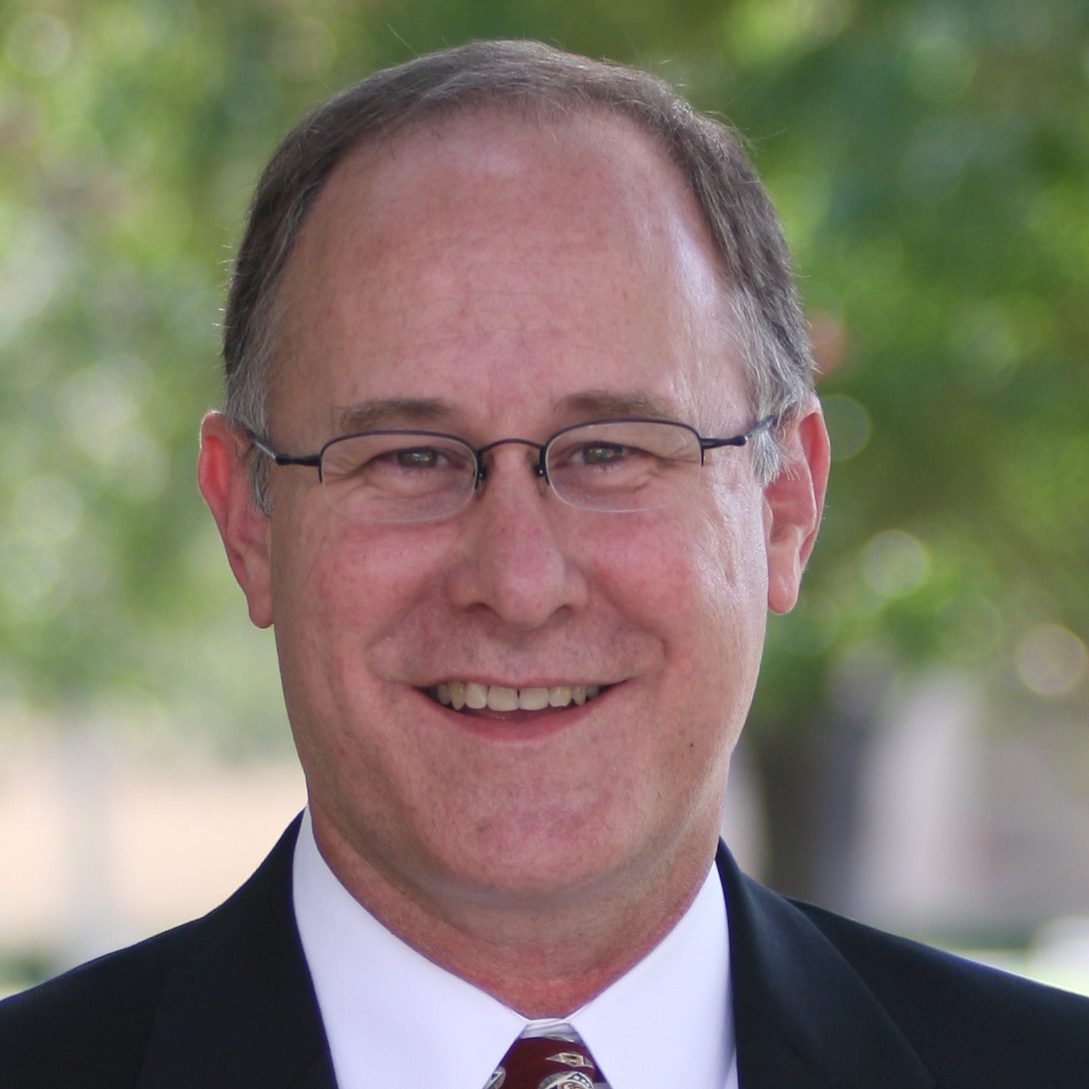
Dr. Morgan Swink teaches and leads research in areas of supply chain management, innovation management, project management, and operations strategy. Dr. Swink’s current research projects address digital transformation, innovation management, servitization, visibility, collaborative integration, and financial impacts of supply management policies. He was recently ranked among the top ten innovation management scholars in the world, and among the top 75 most productive operations management scholars. Dr. Swink also heads the Center for Supply Chain Innovation, a collaborative venture that engages business partners, faculty, and students. He has co-authored two supply chain operations text-books, one managerial book on supply chain excellence, and more than 90 articles in a variety of academic and managerial journals.
